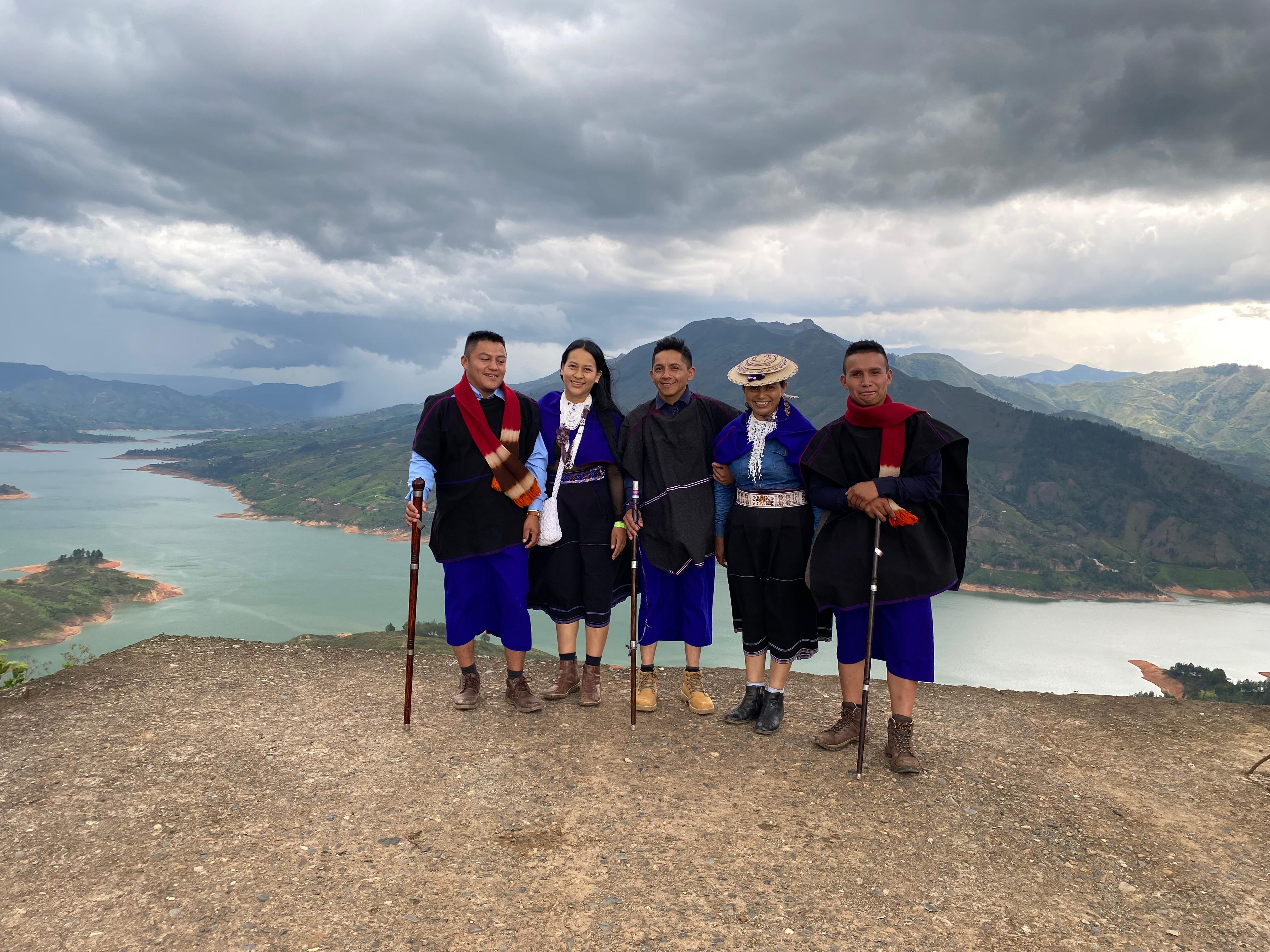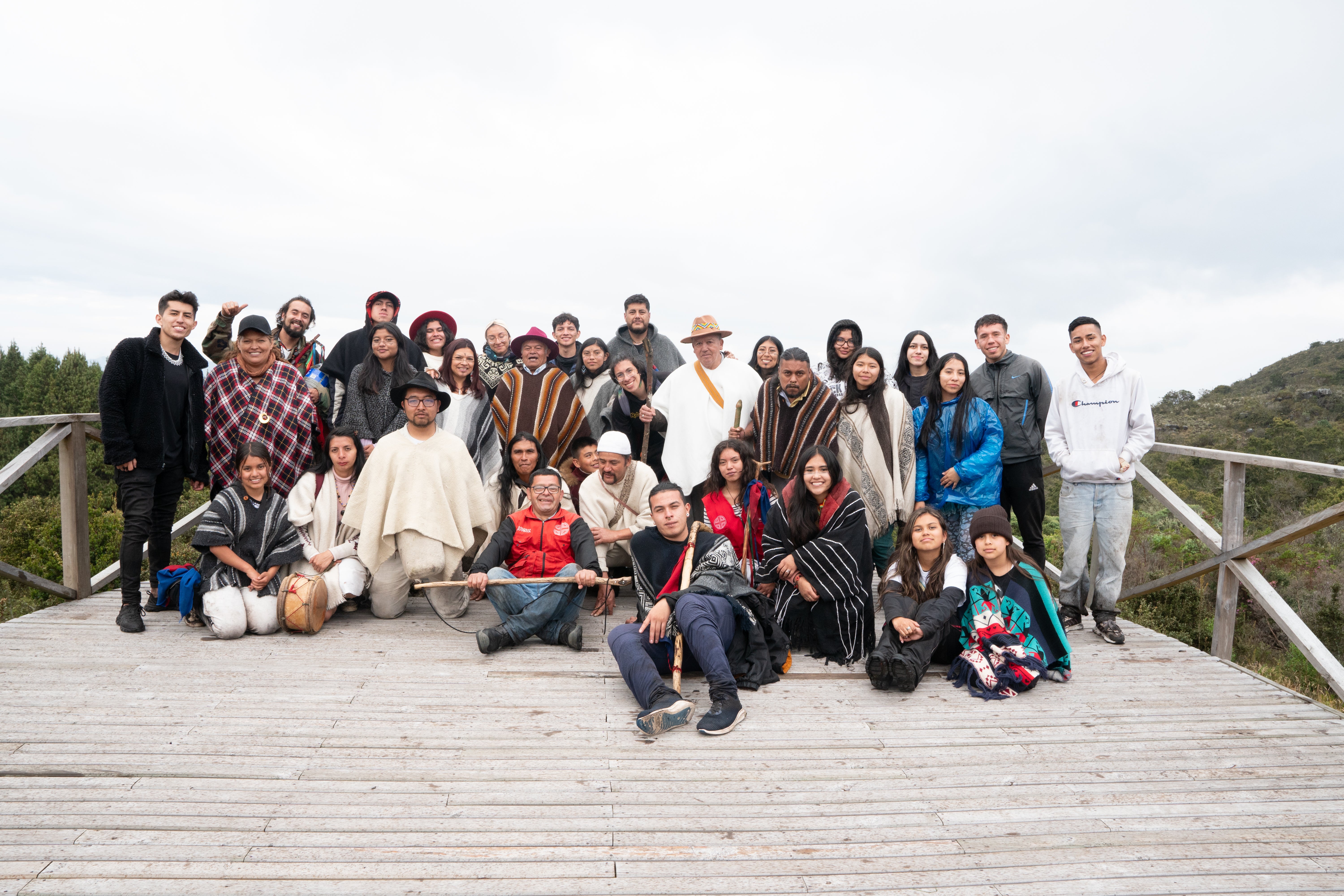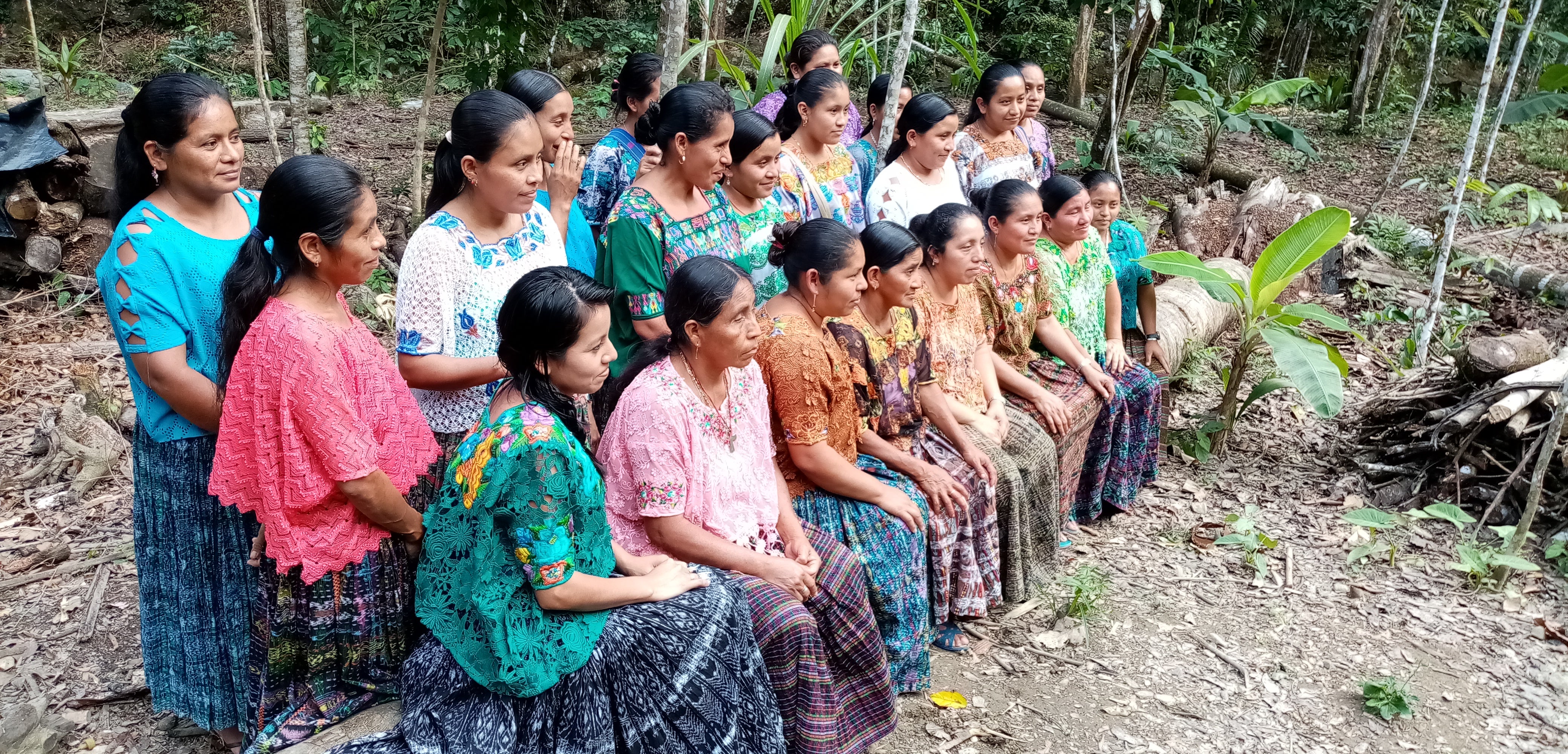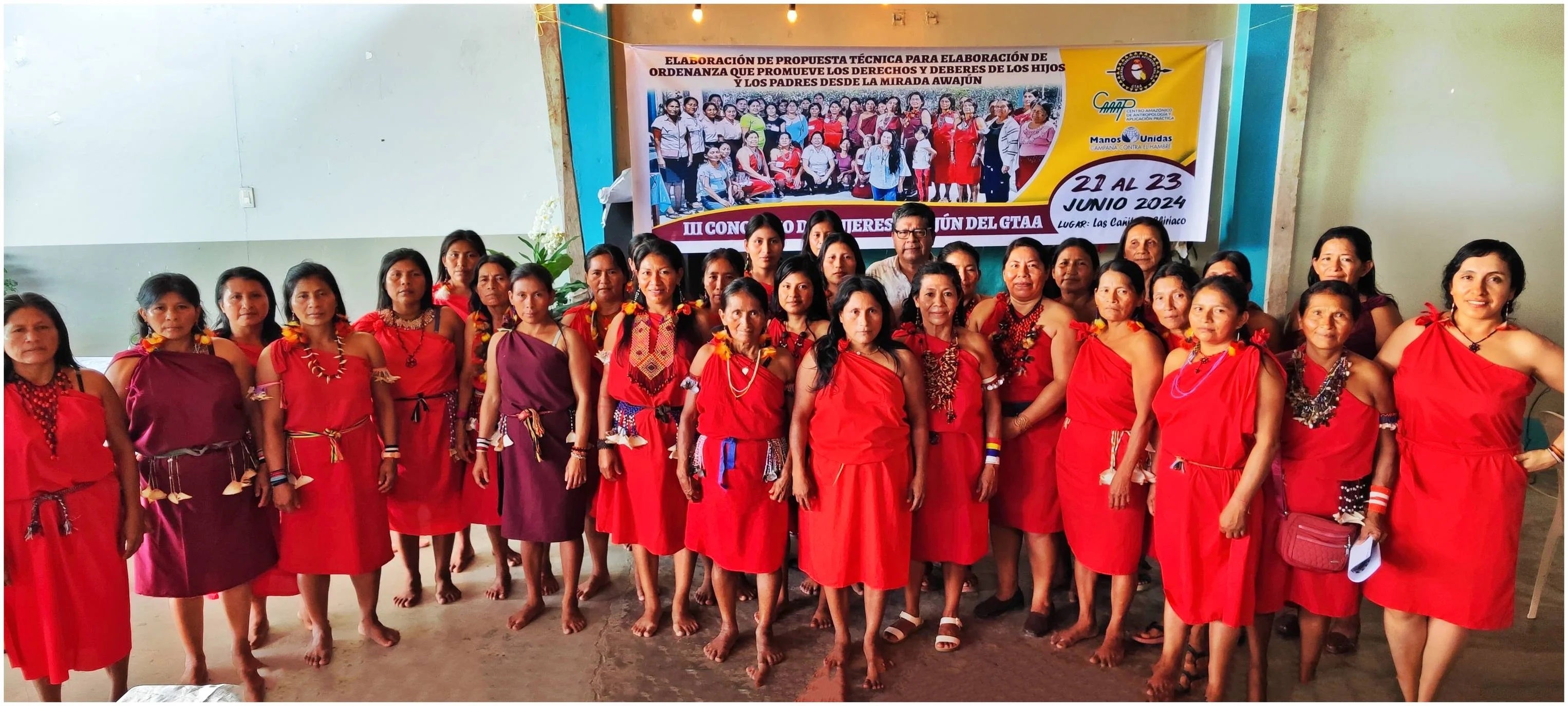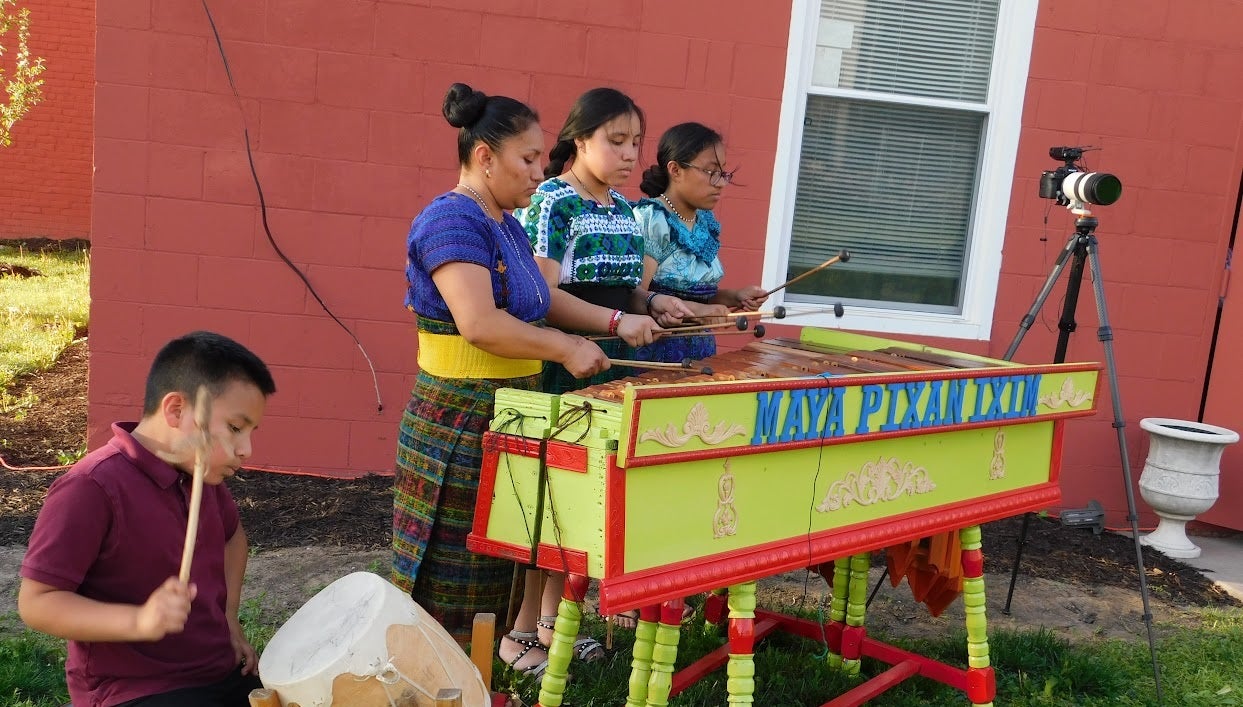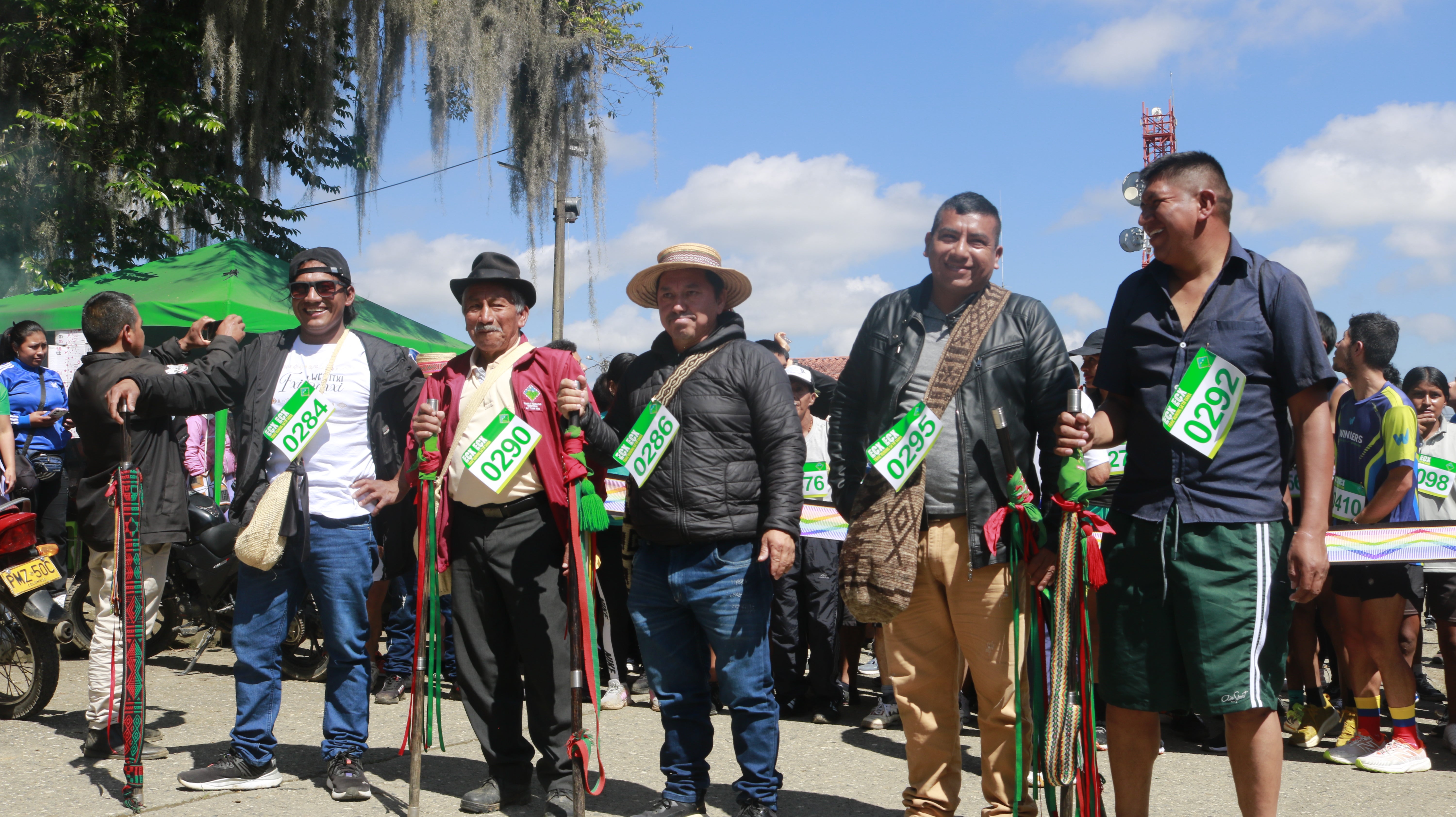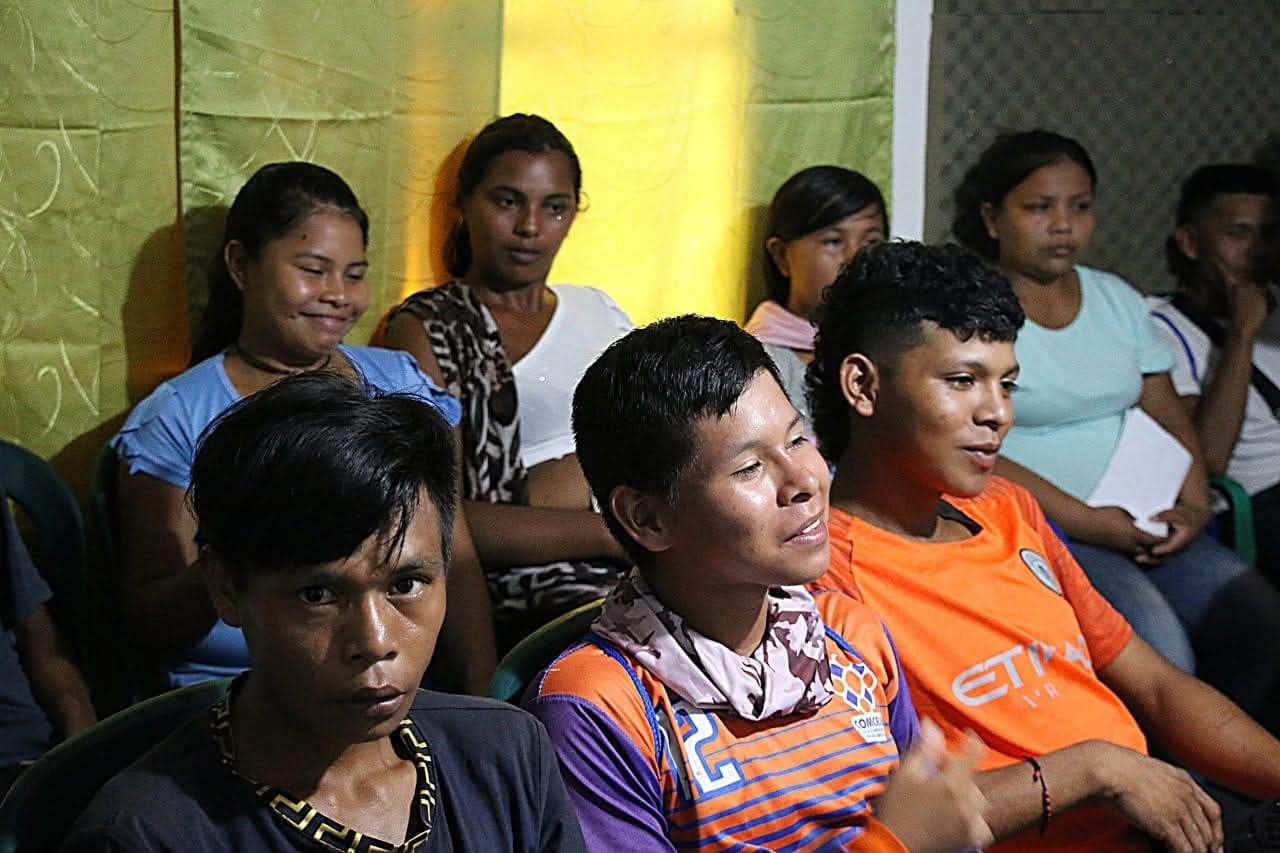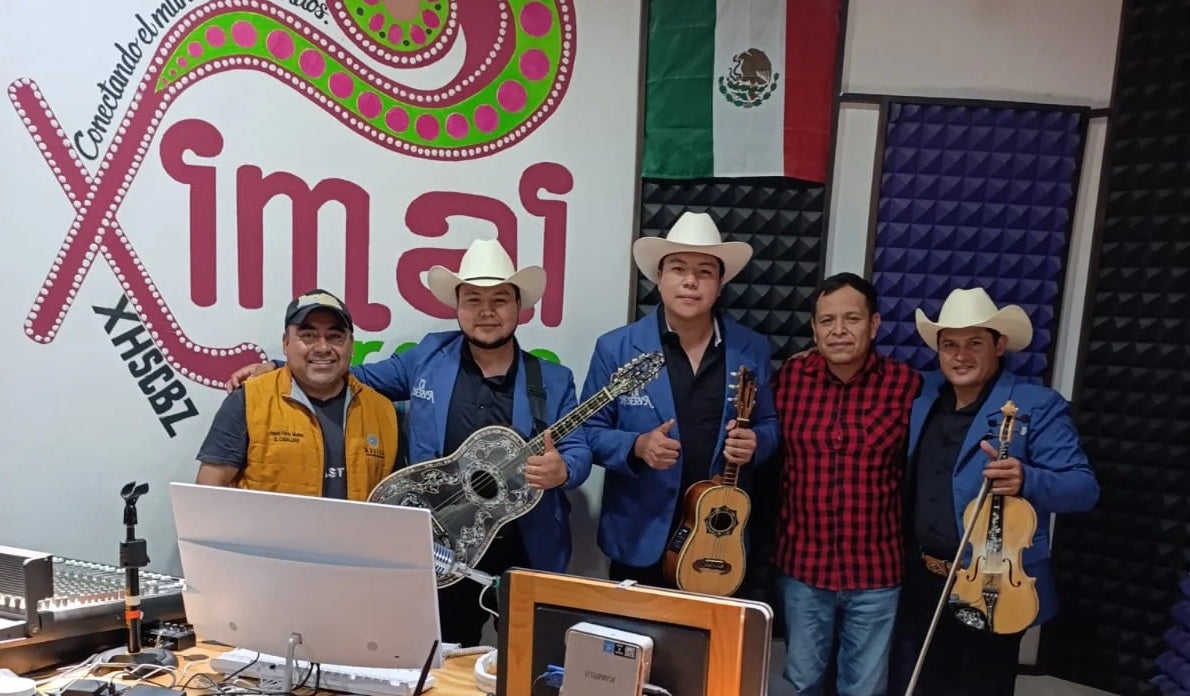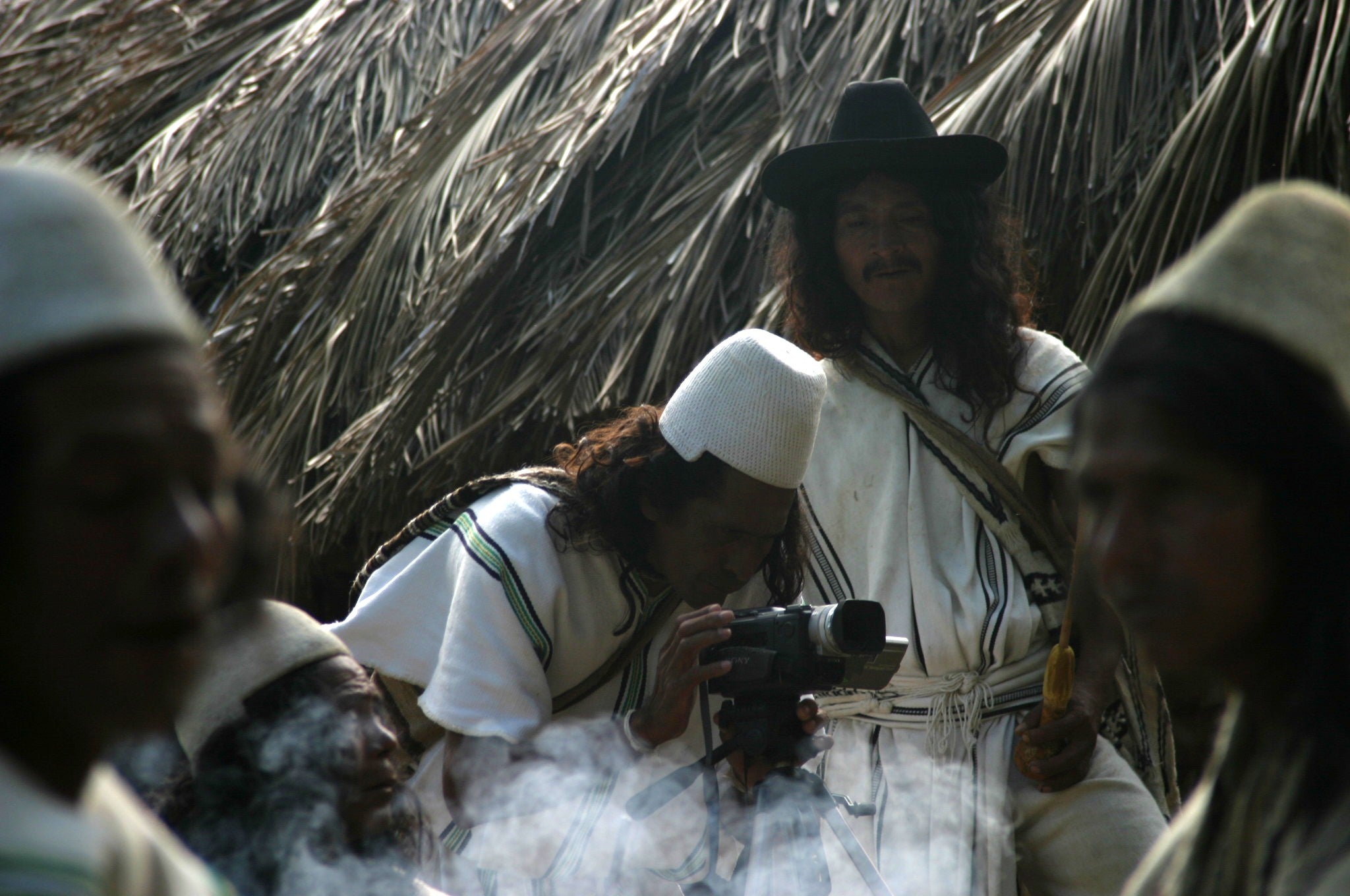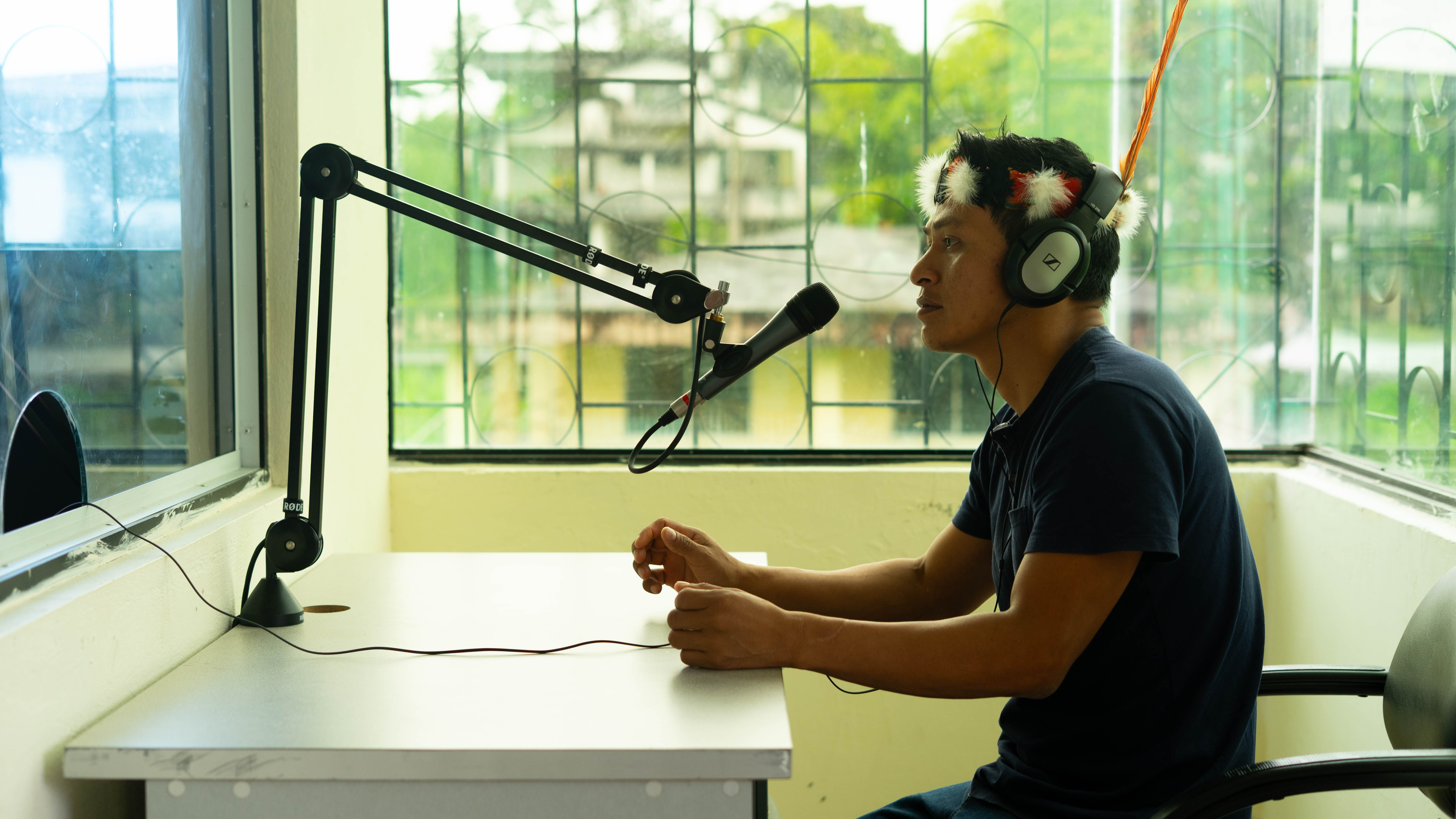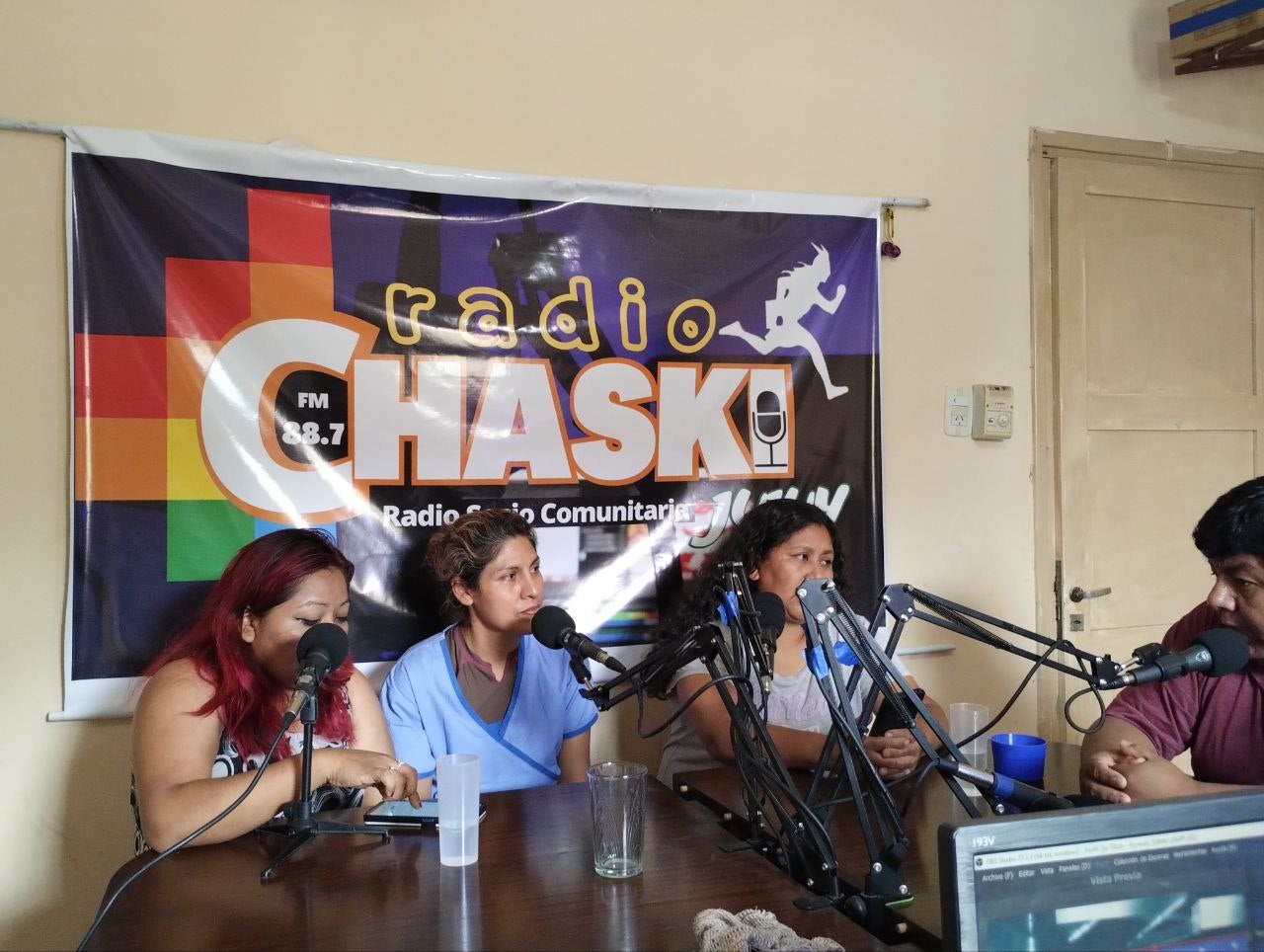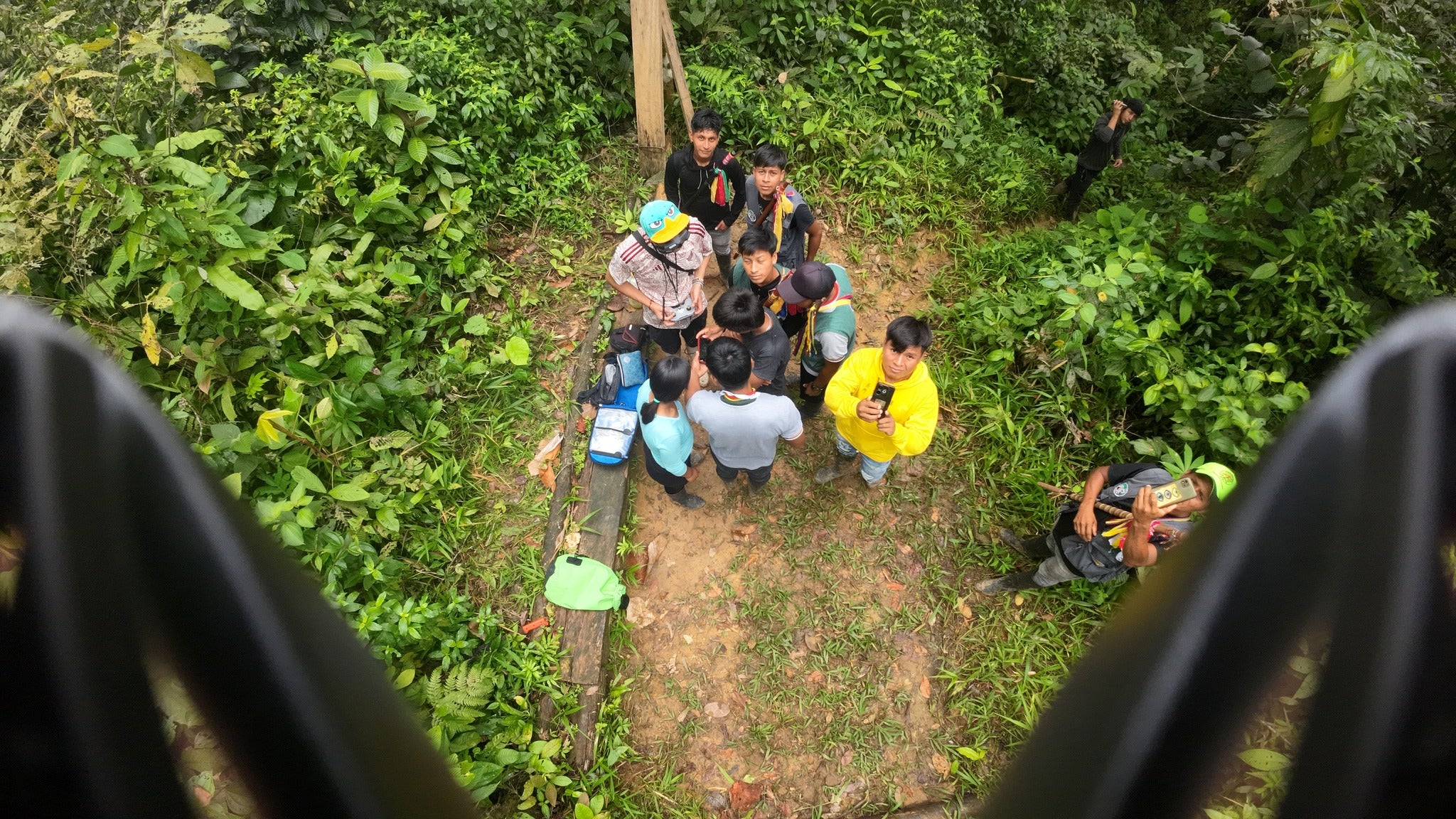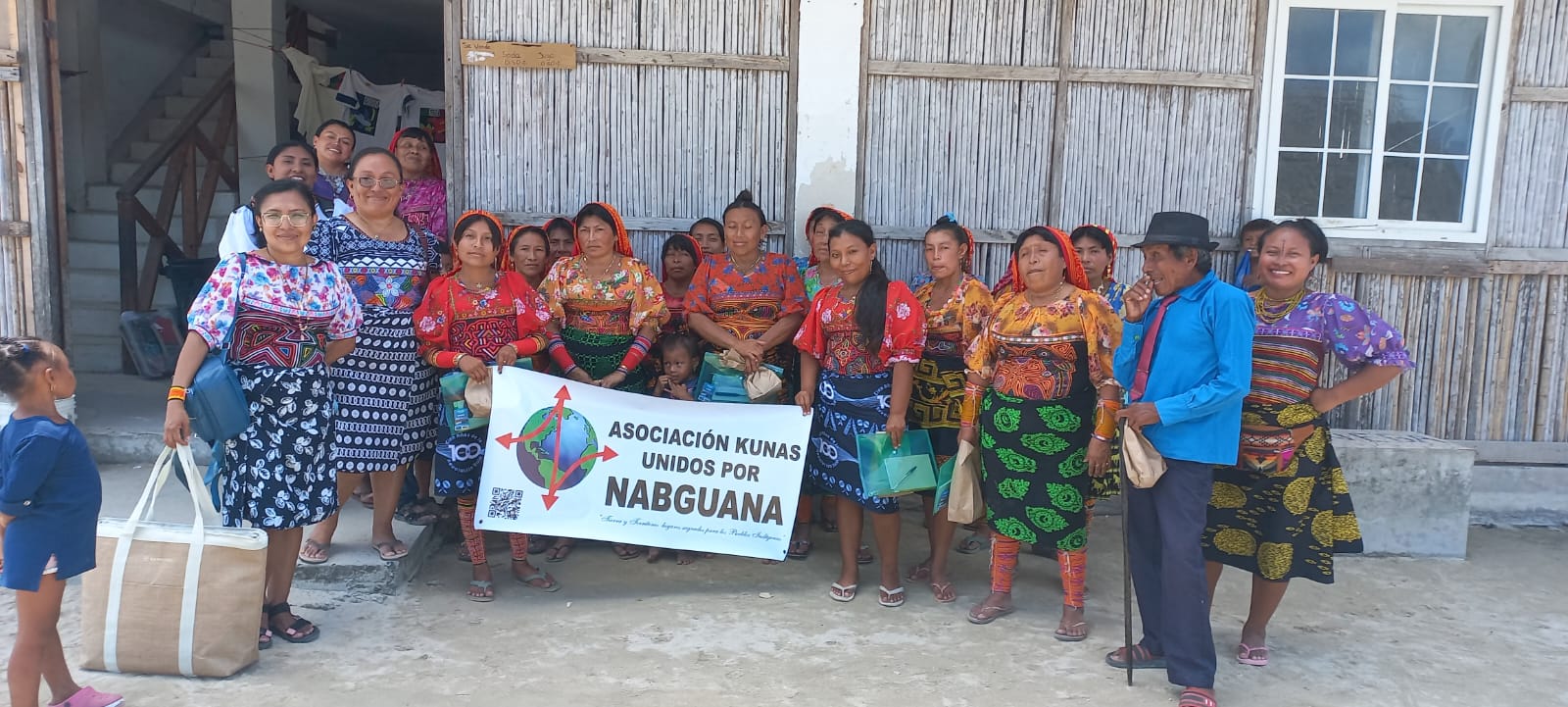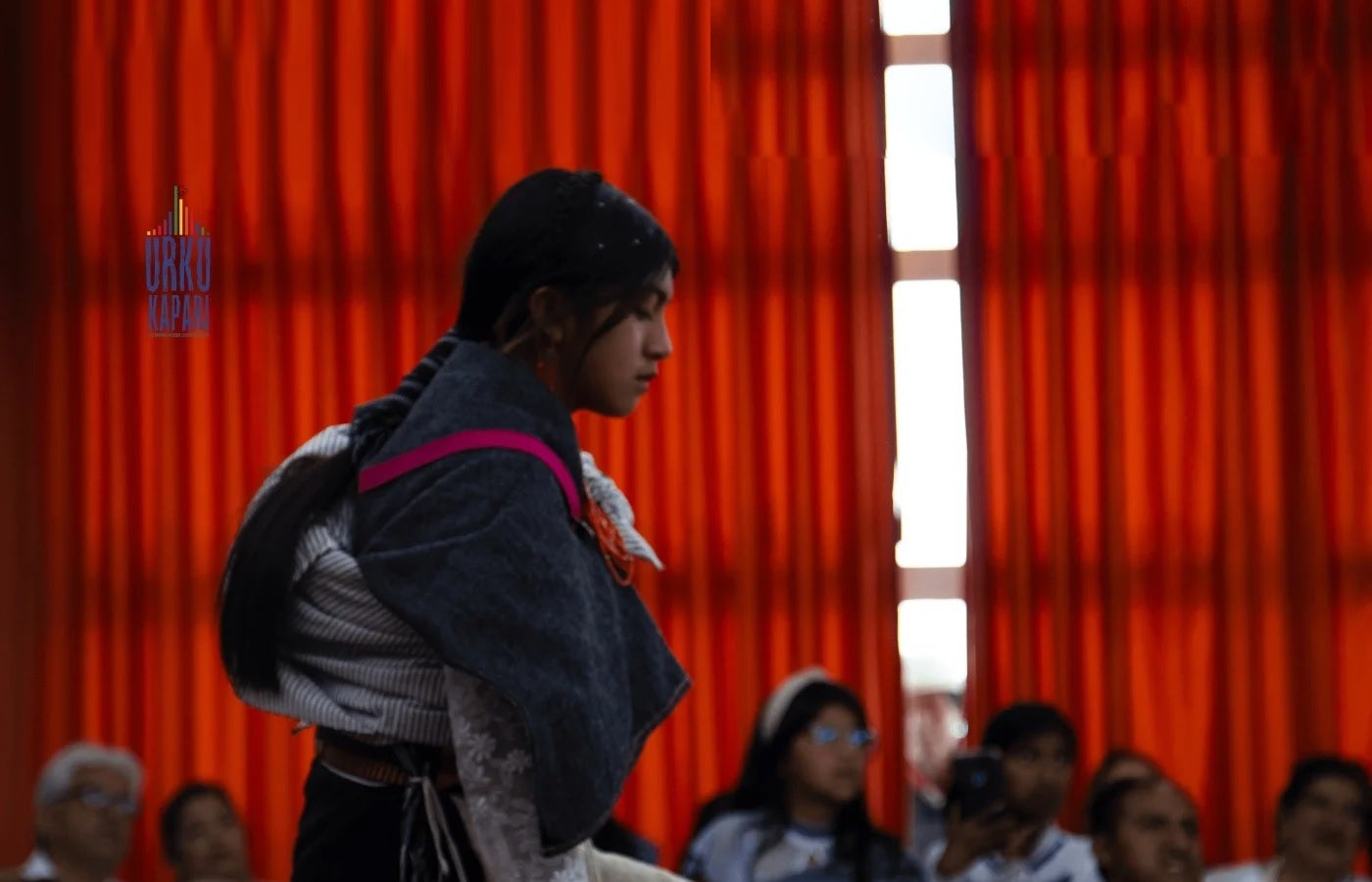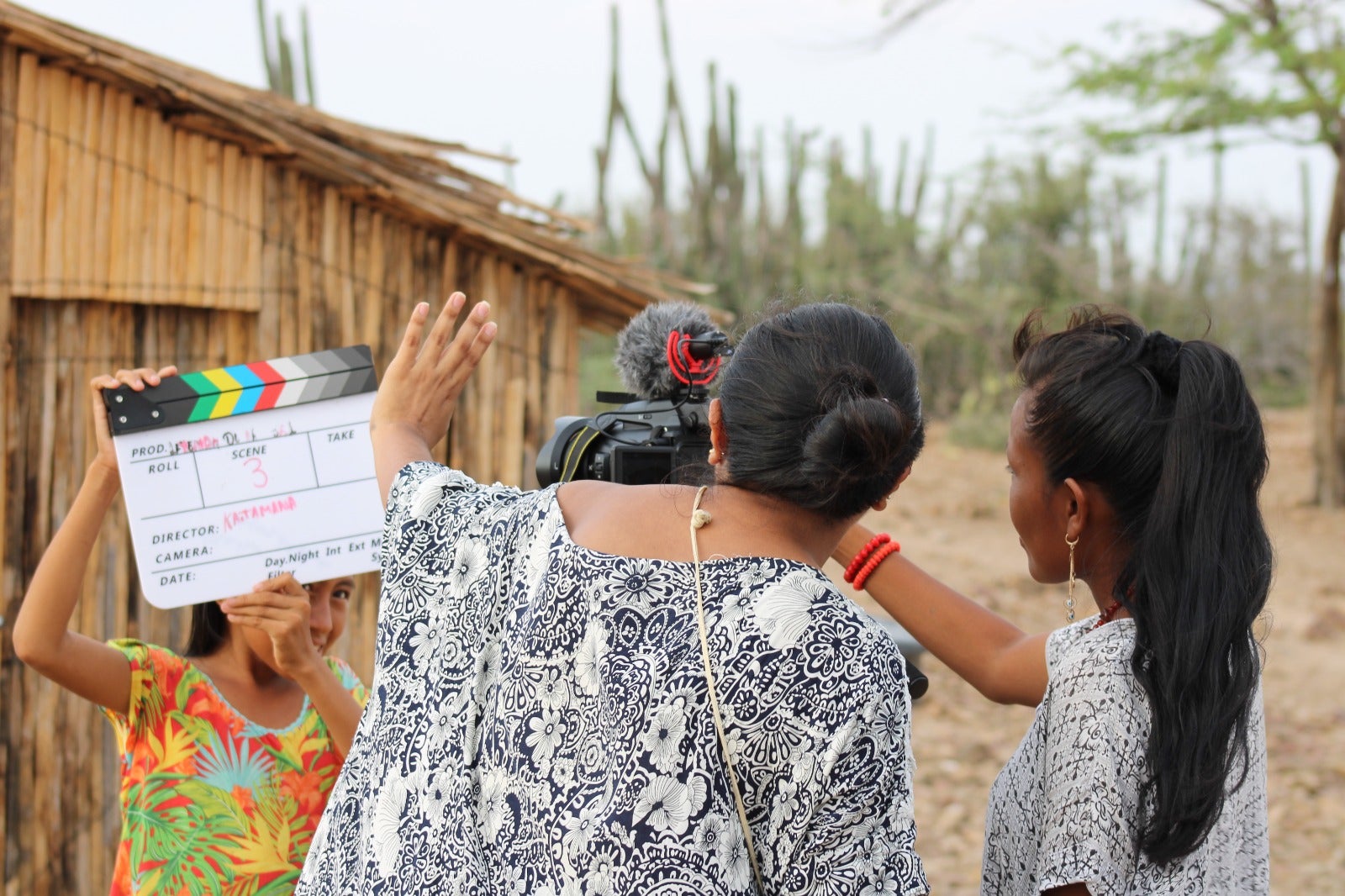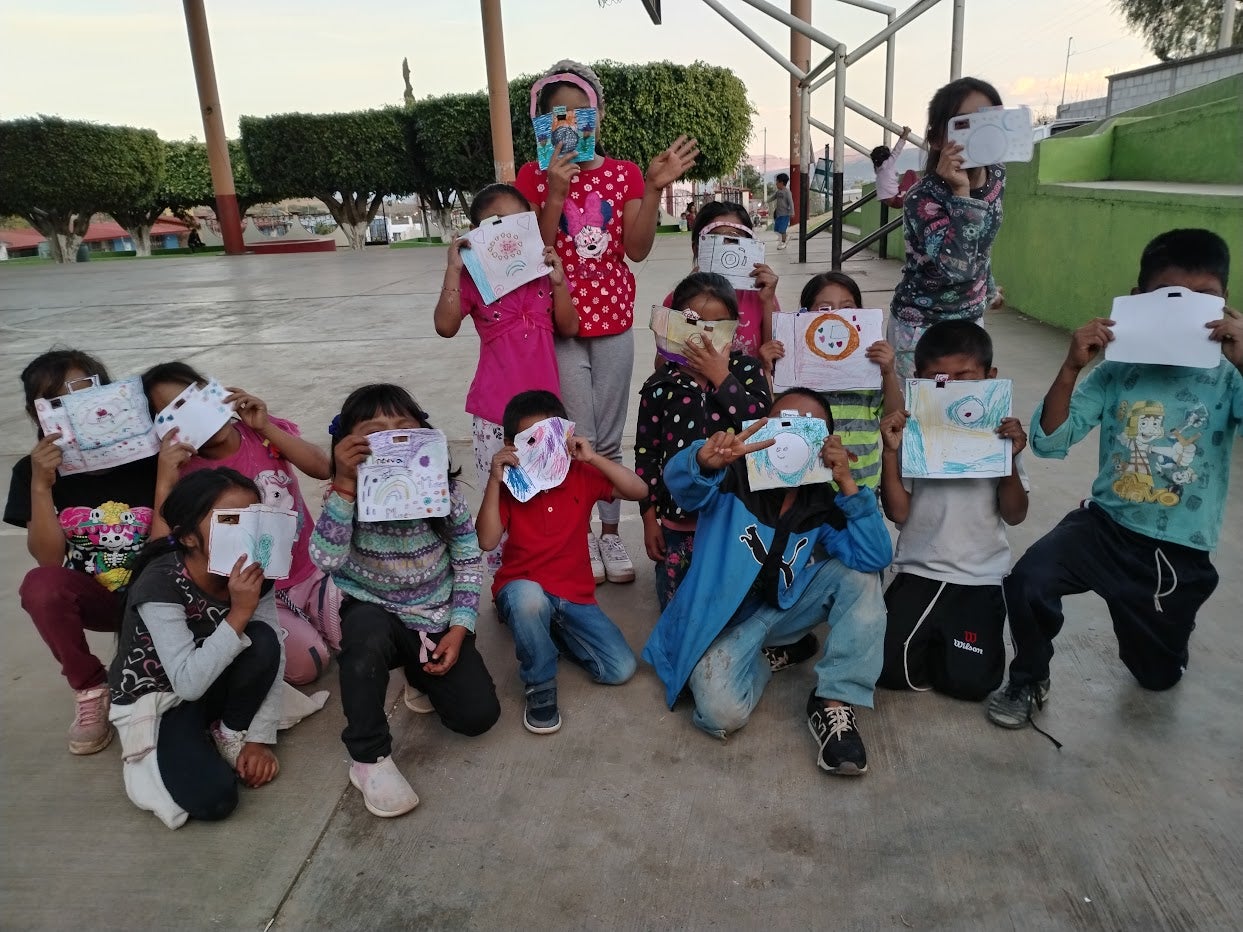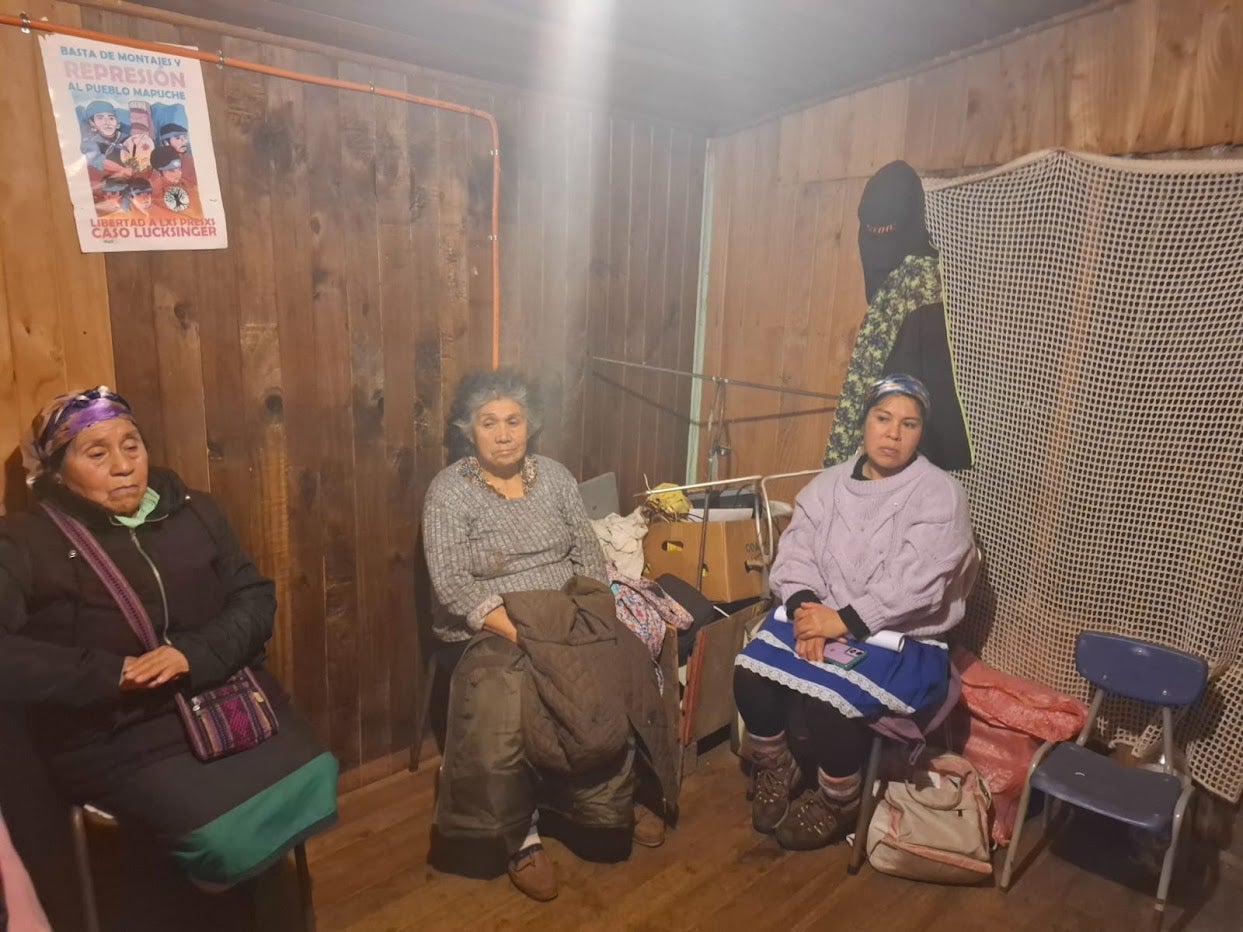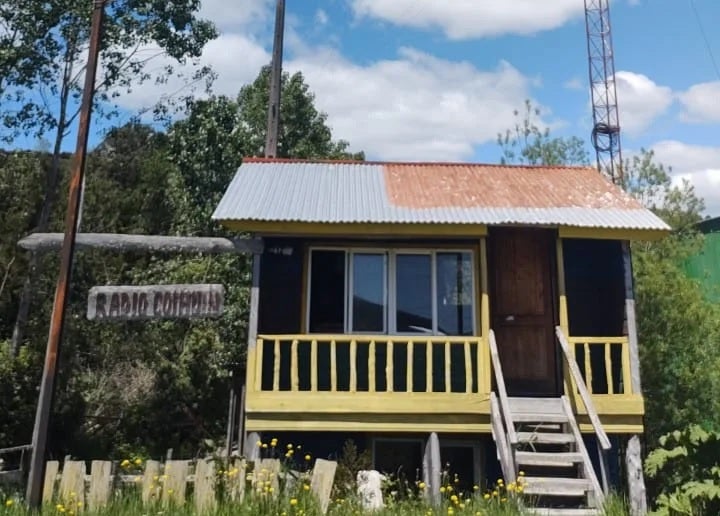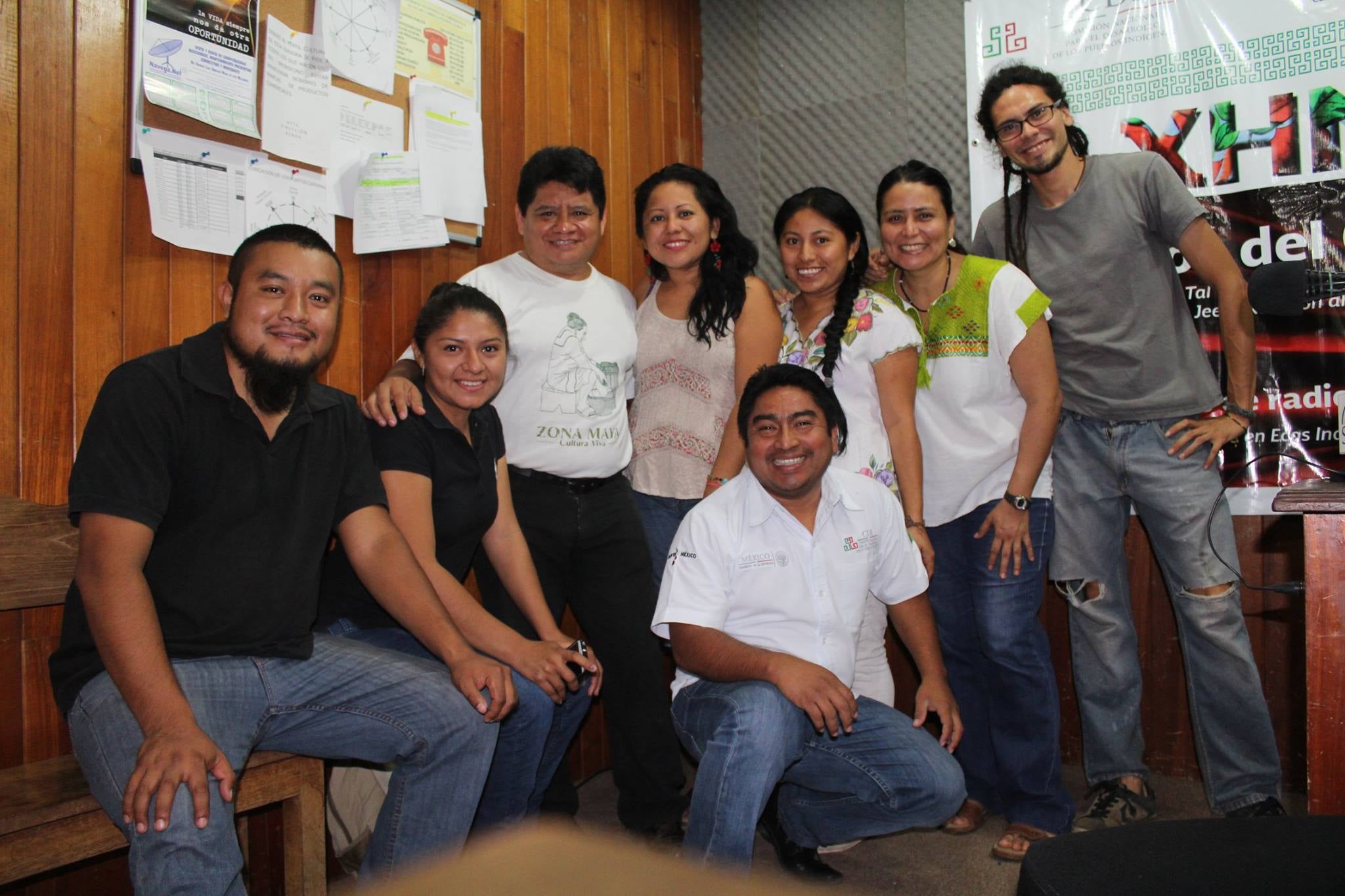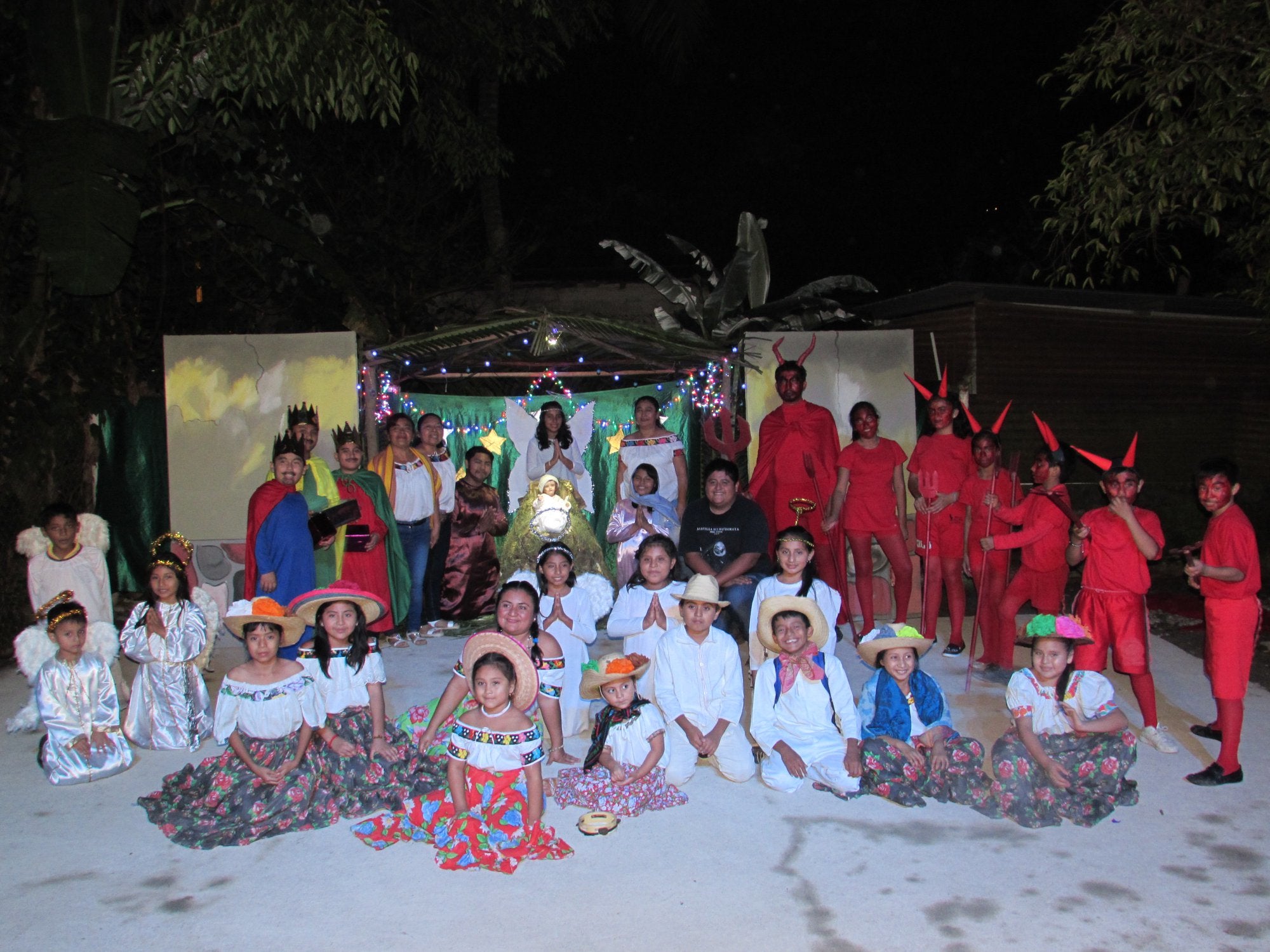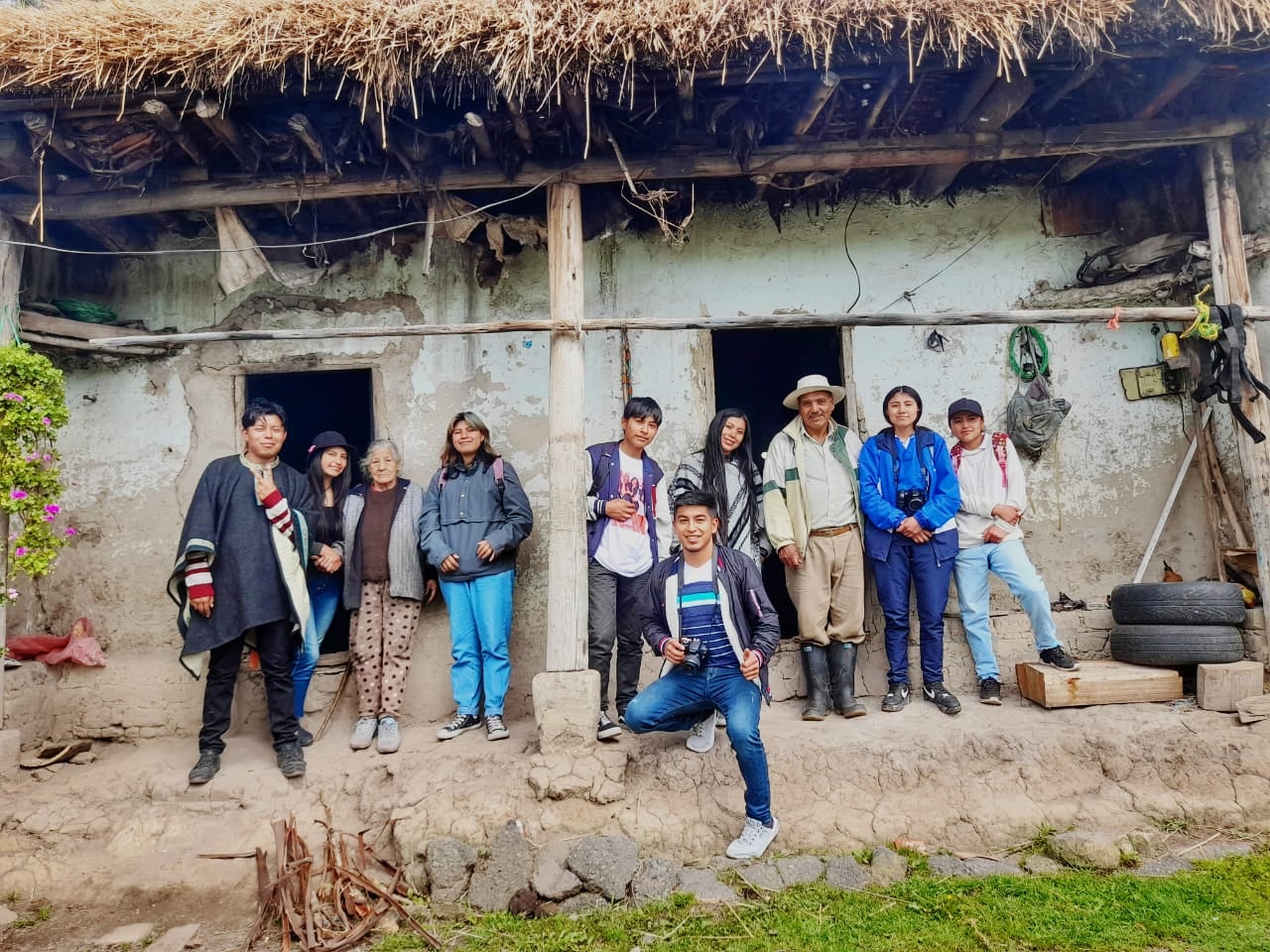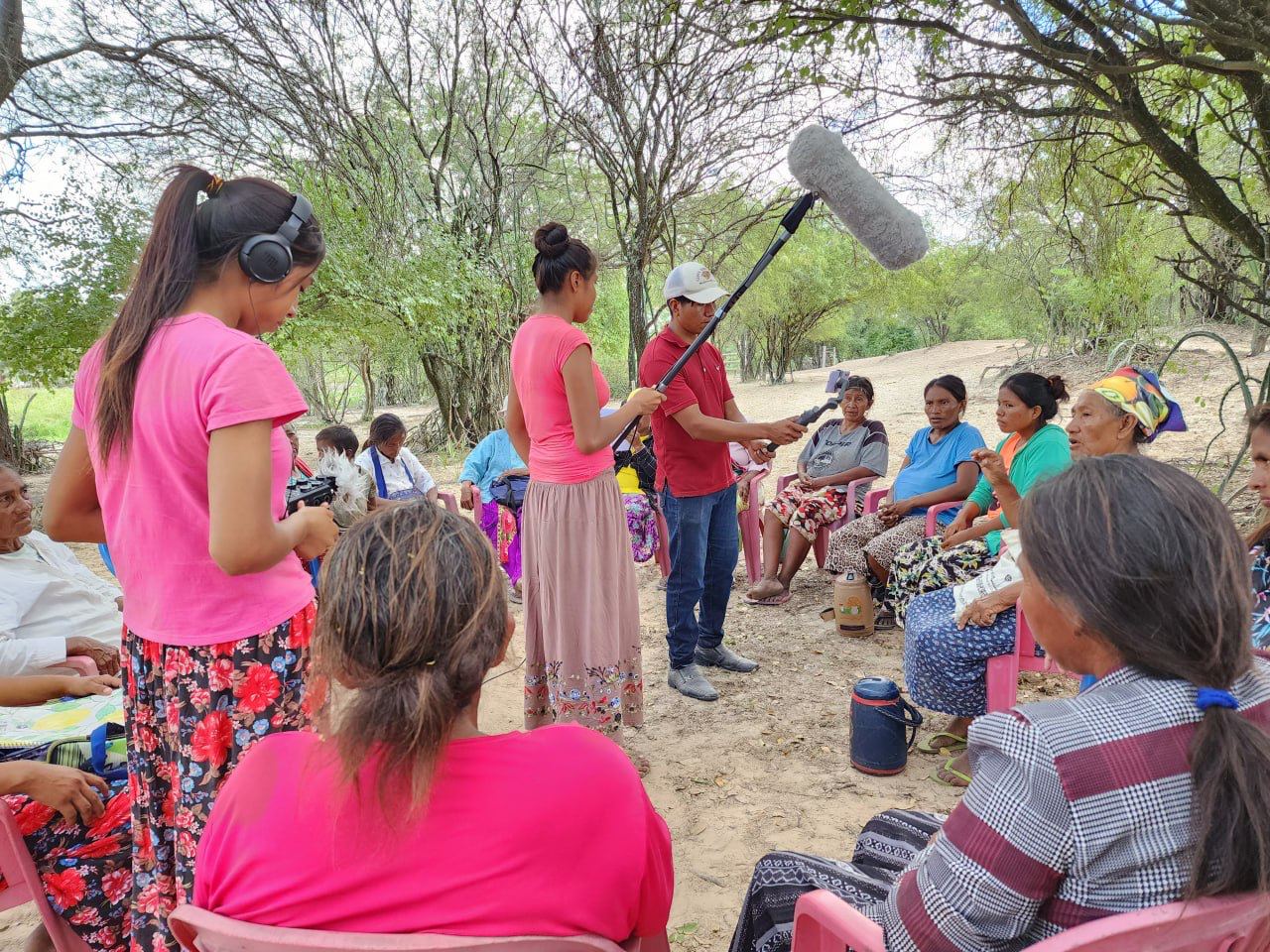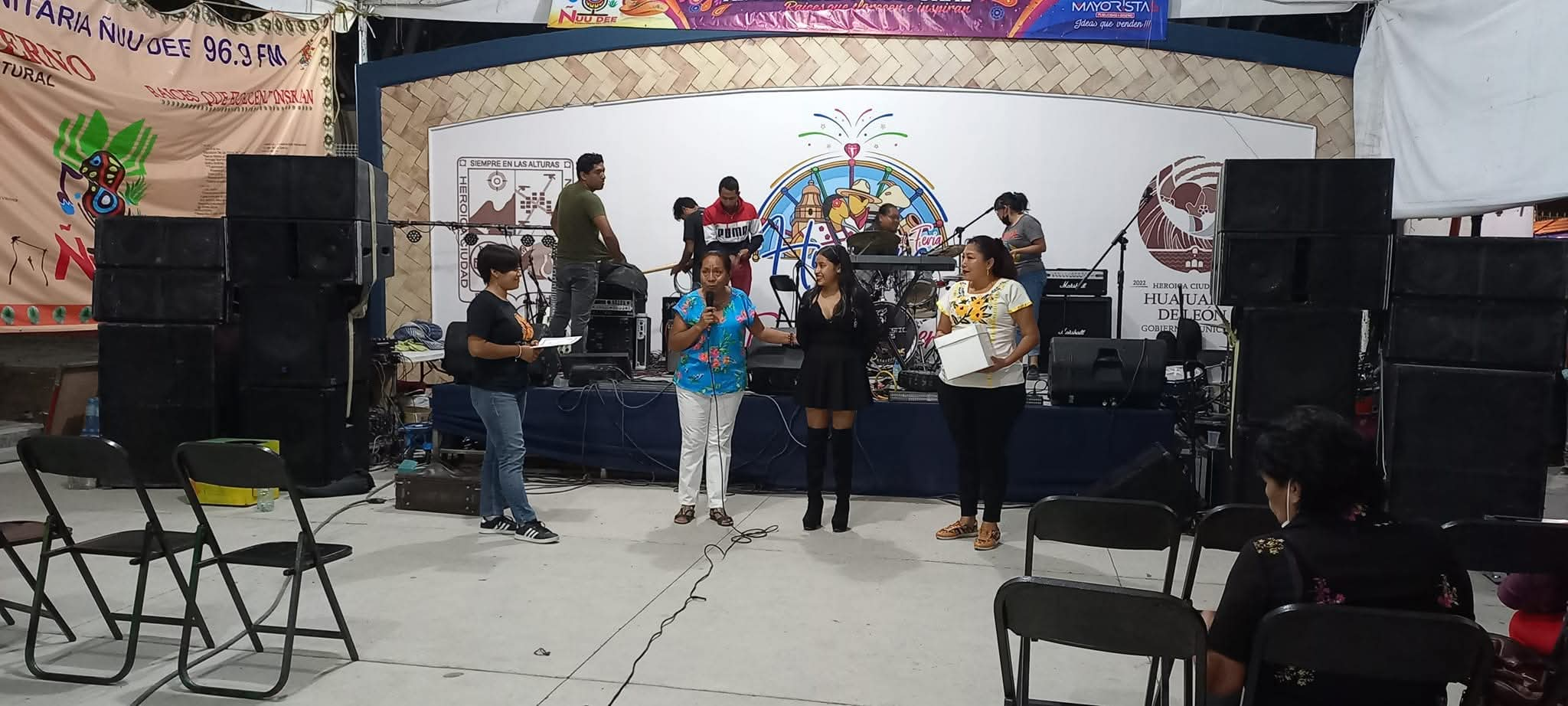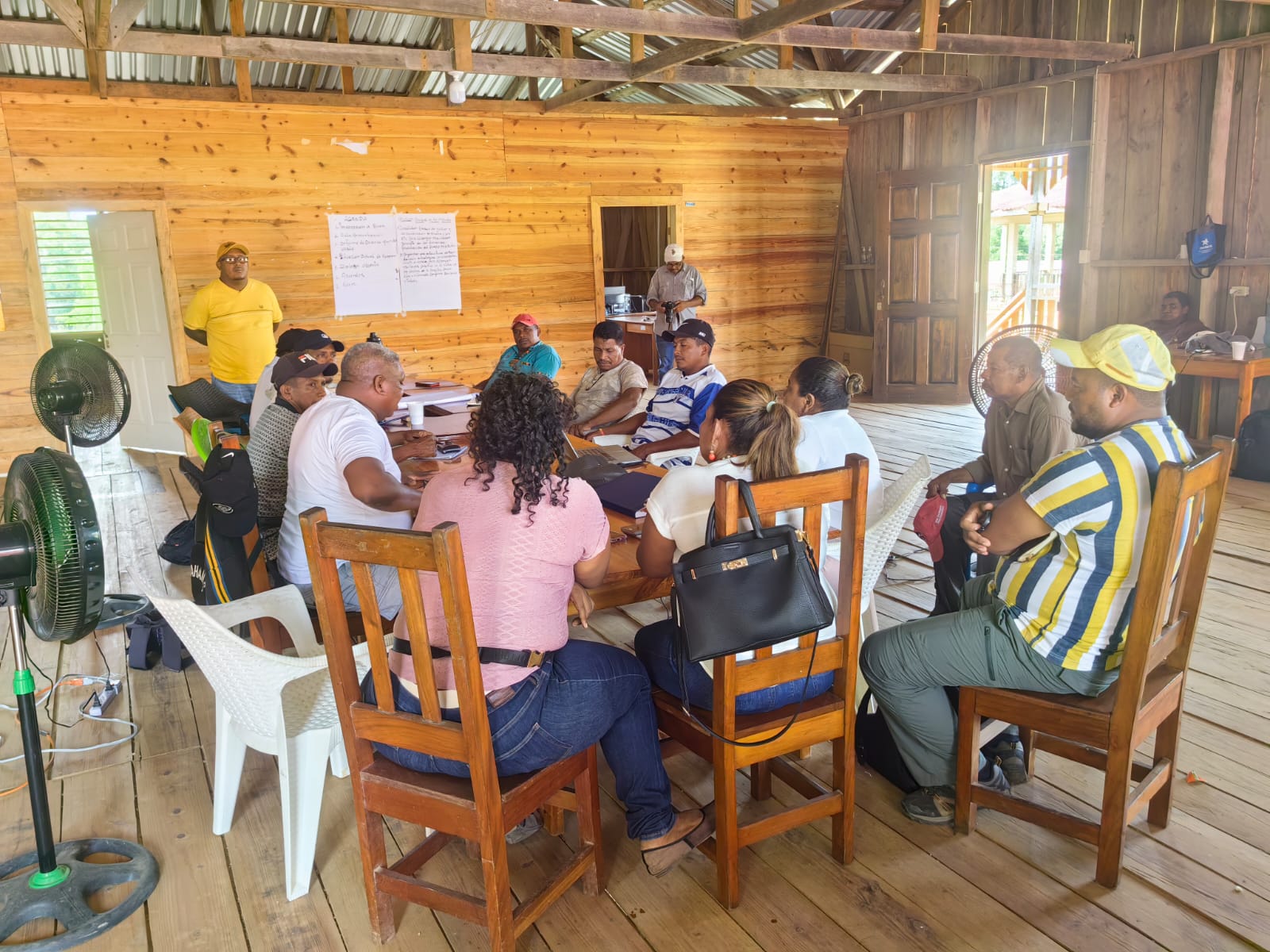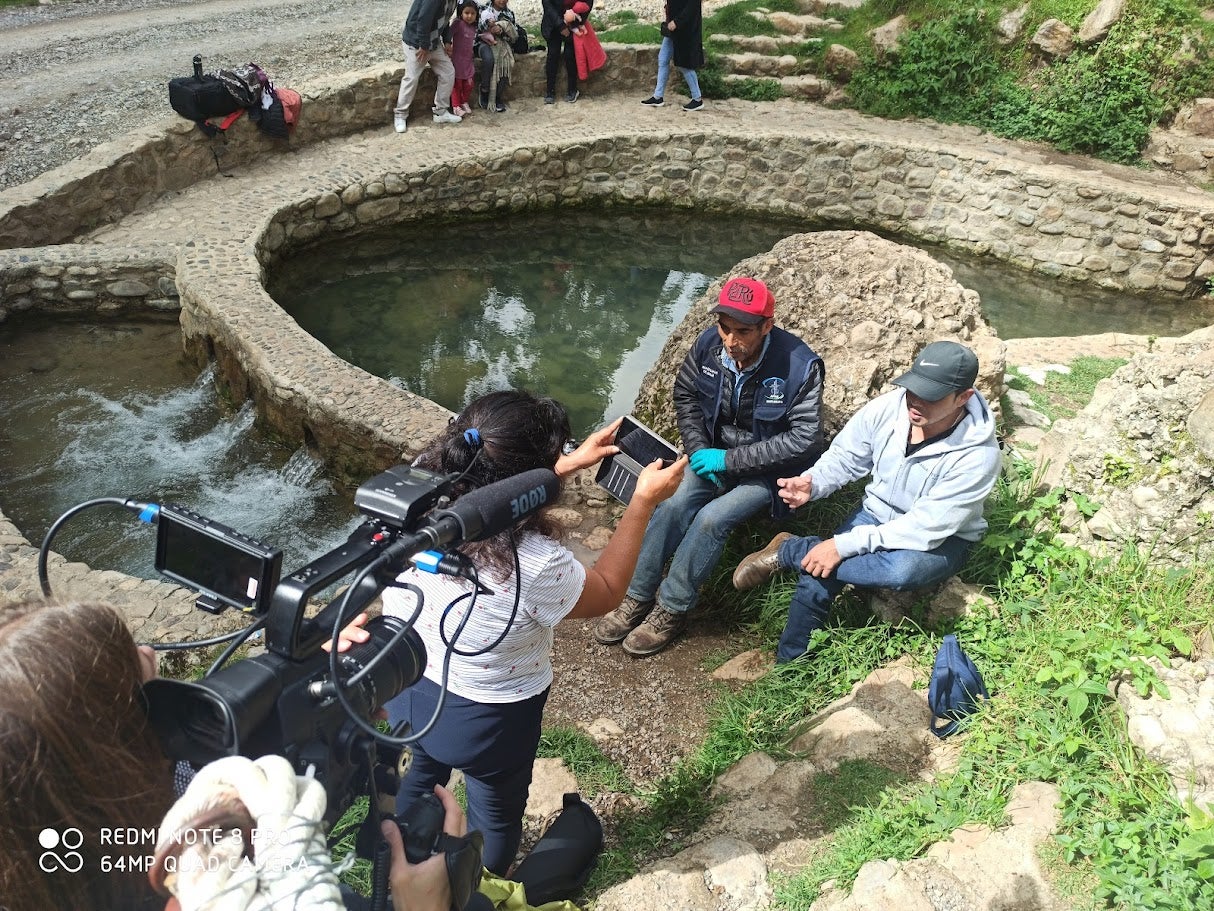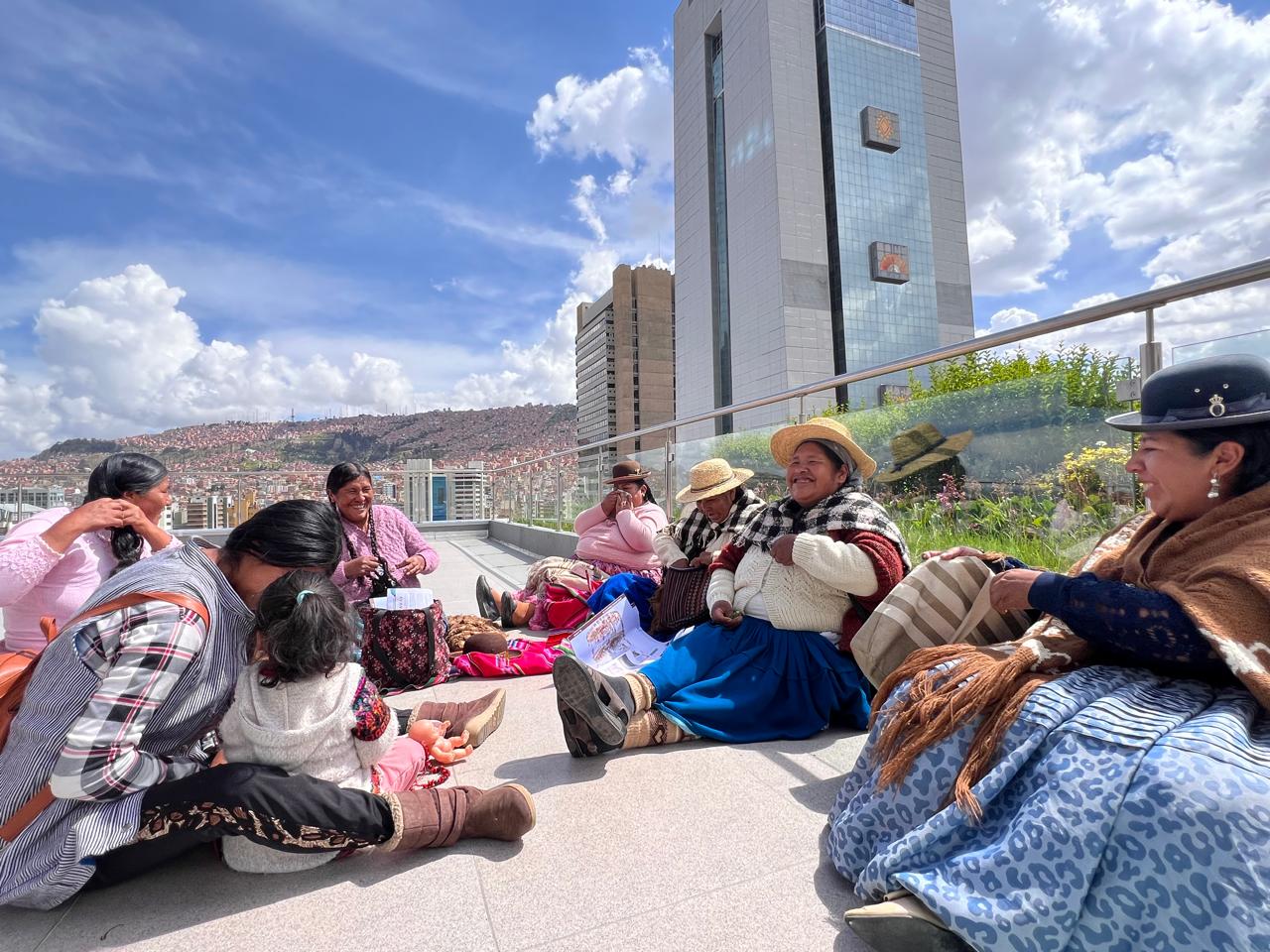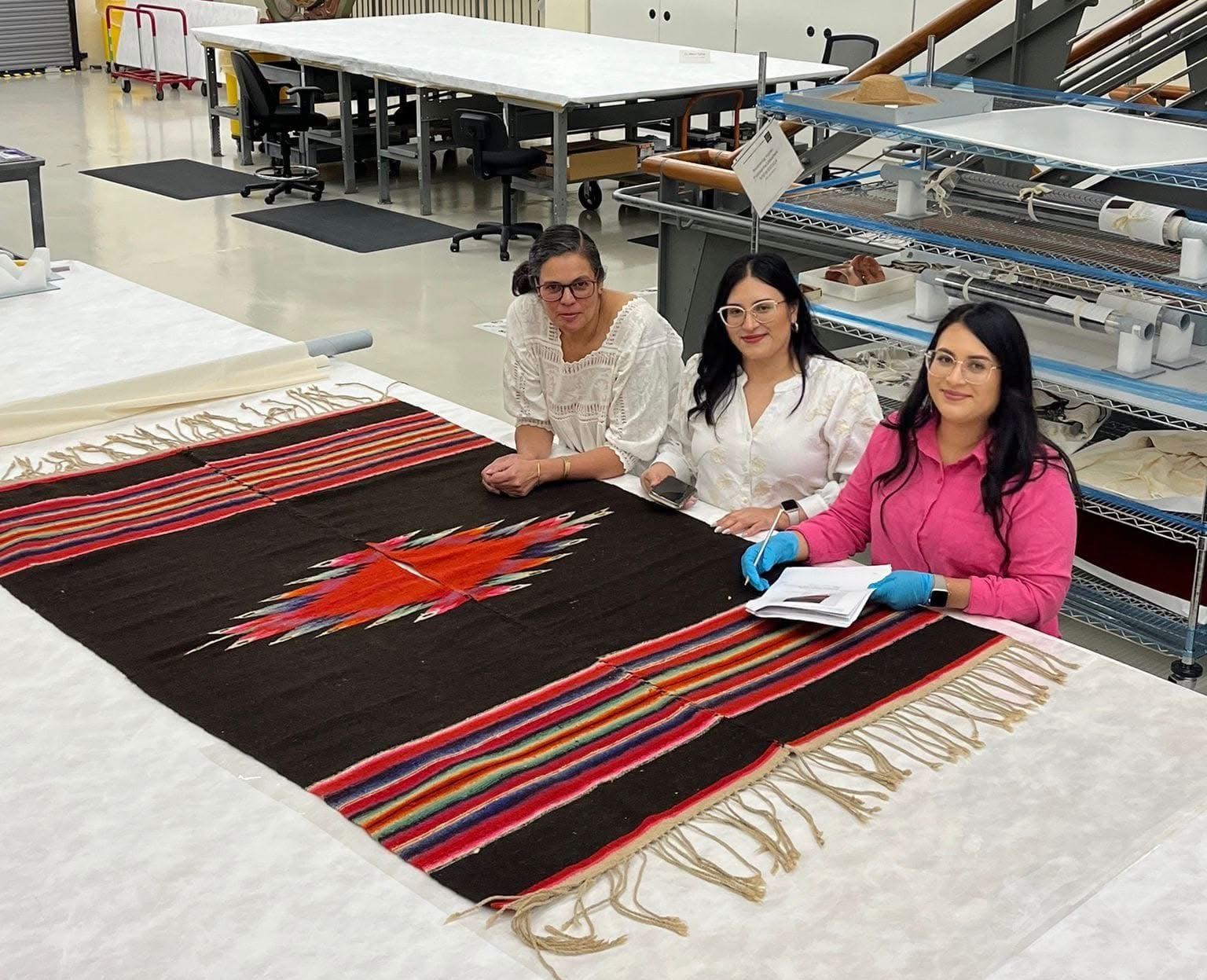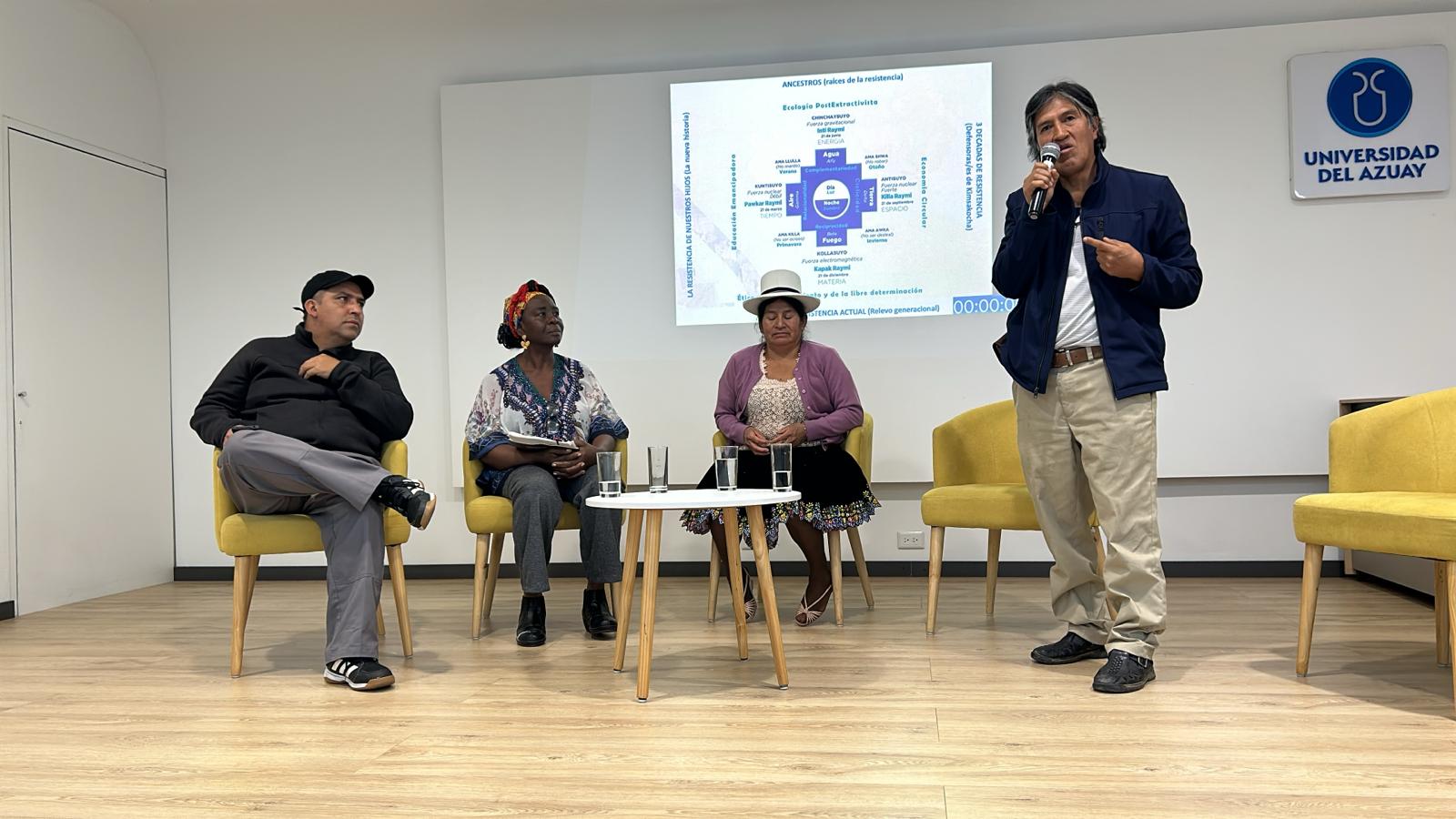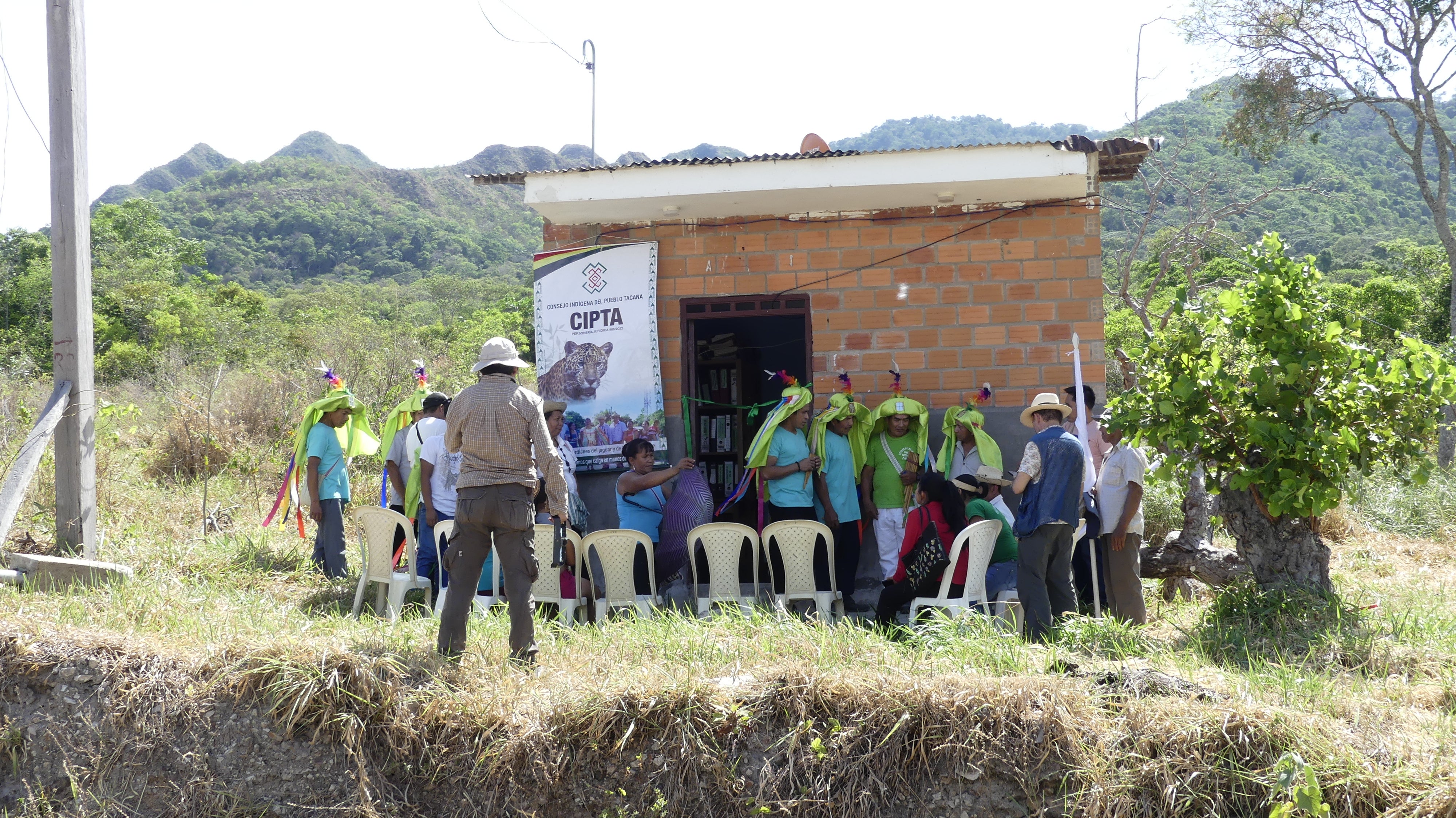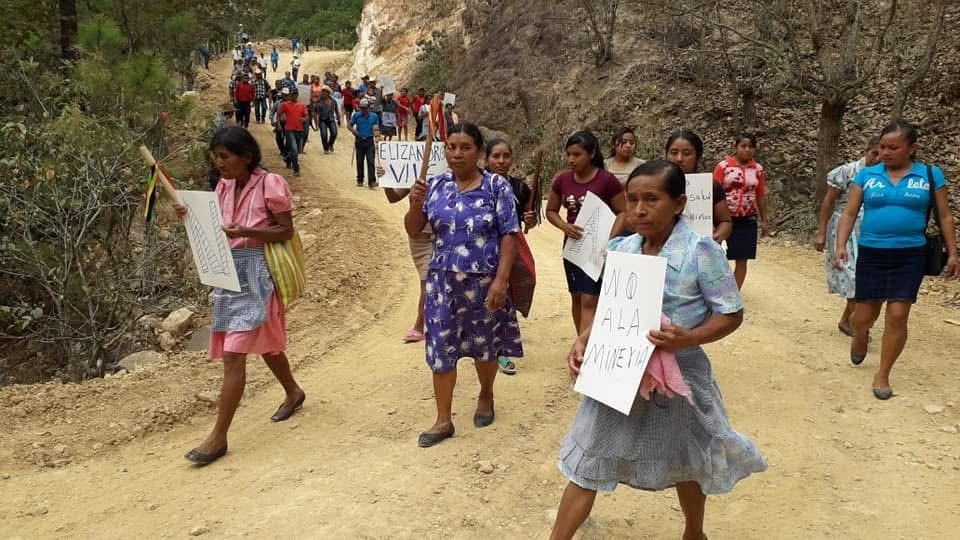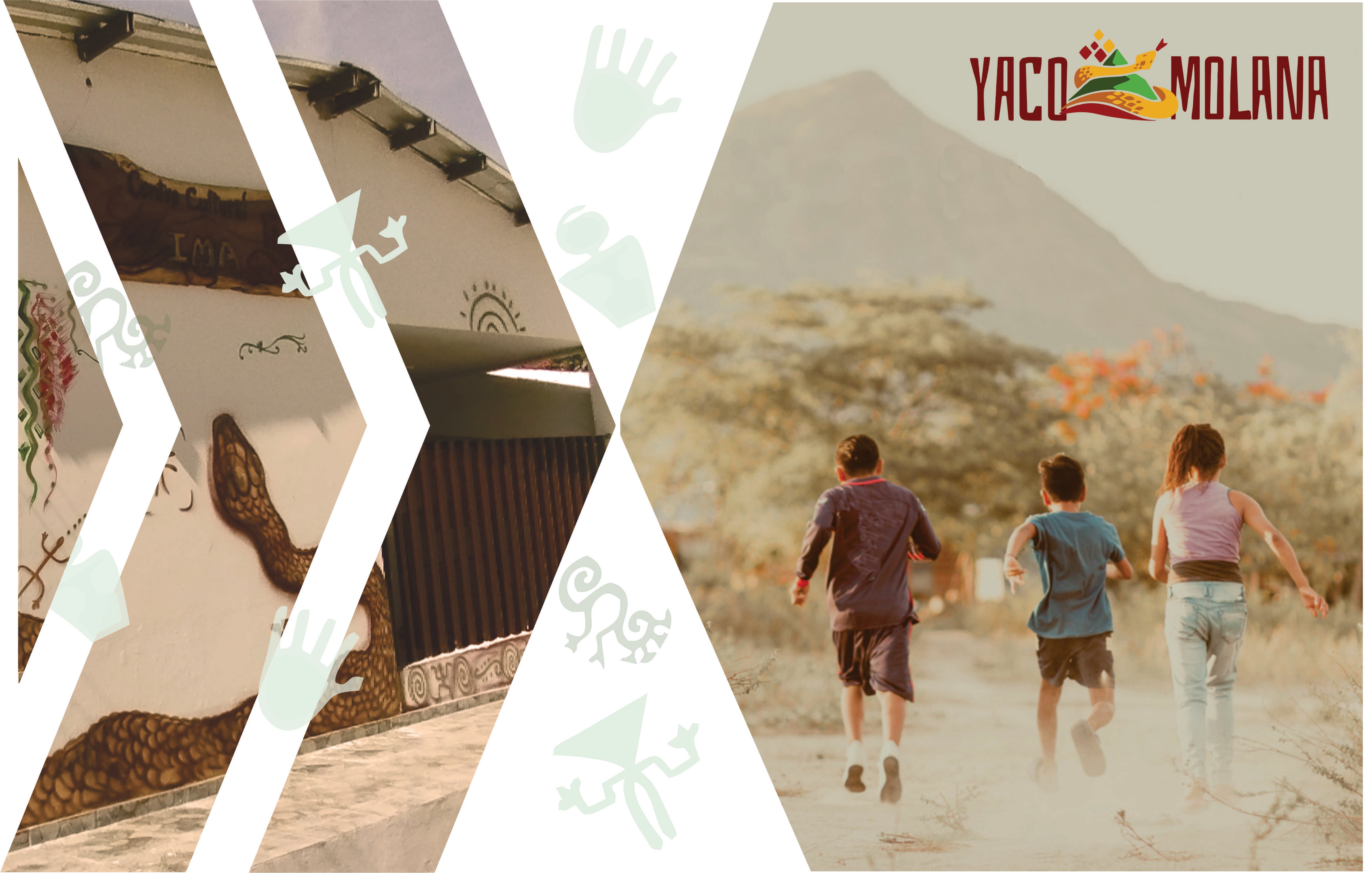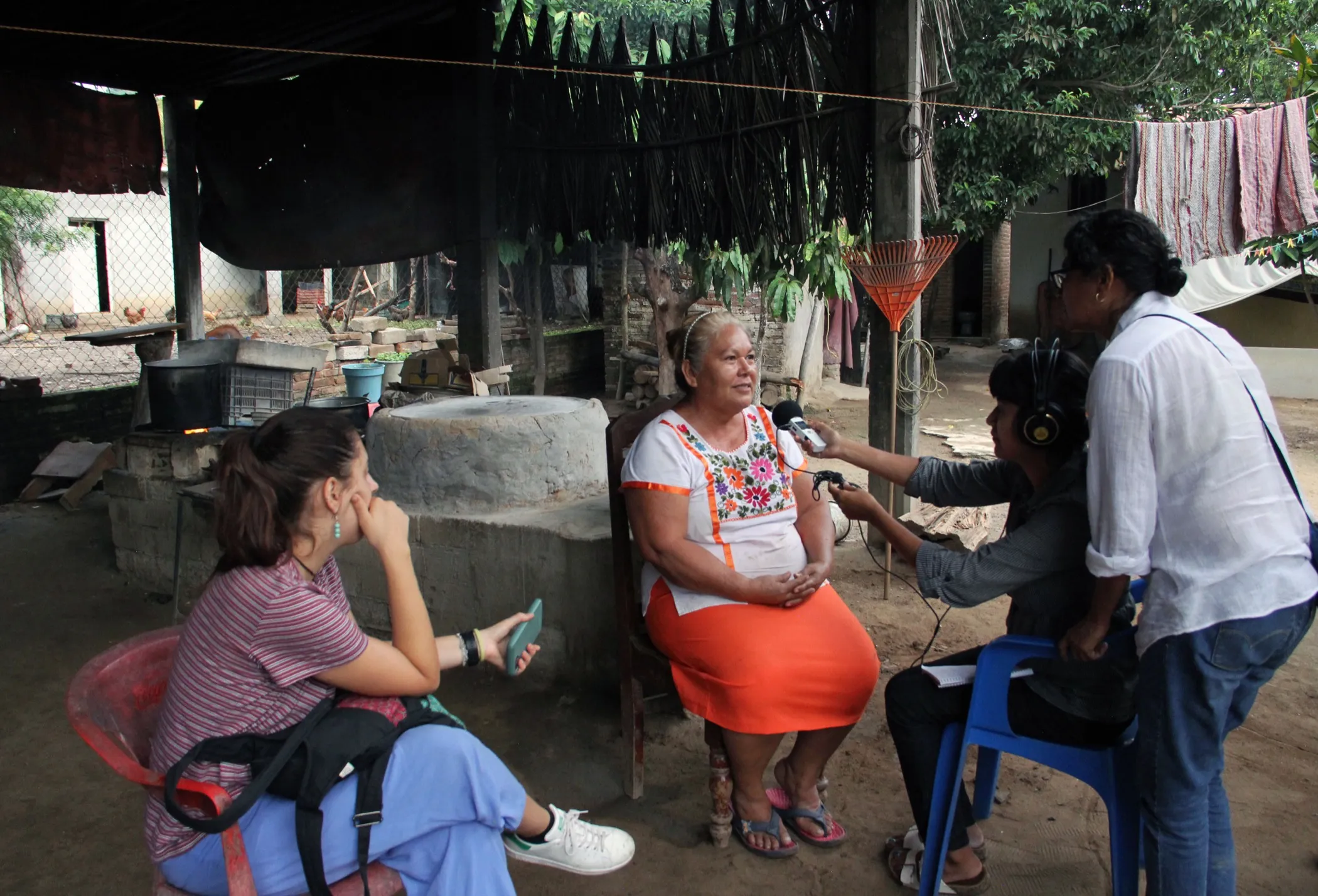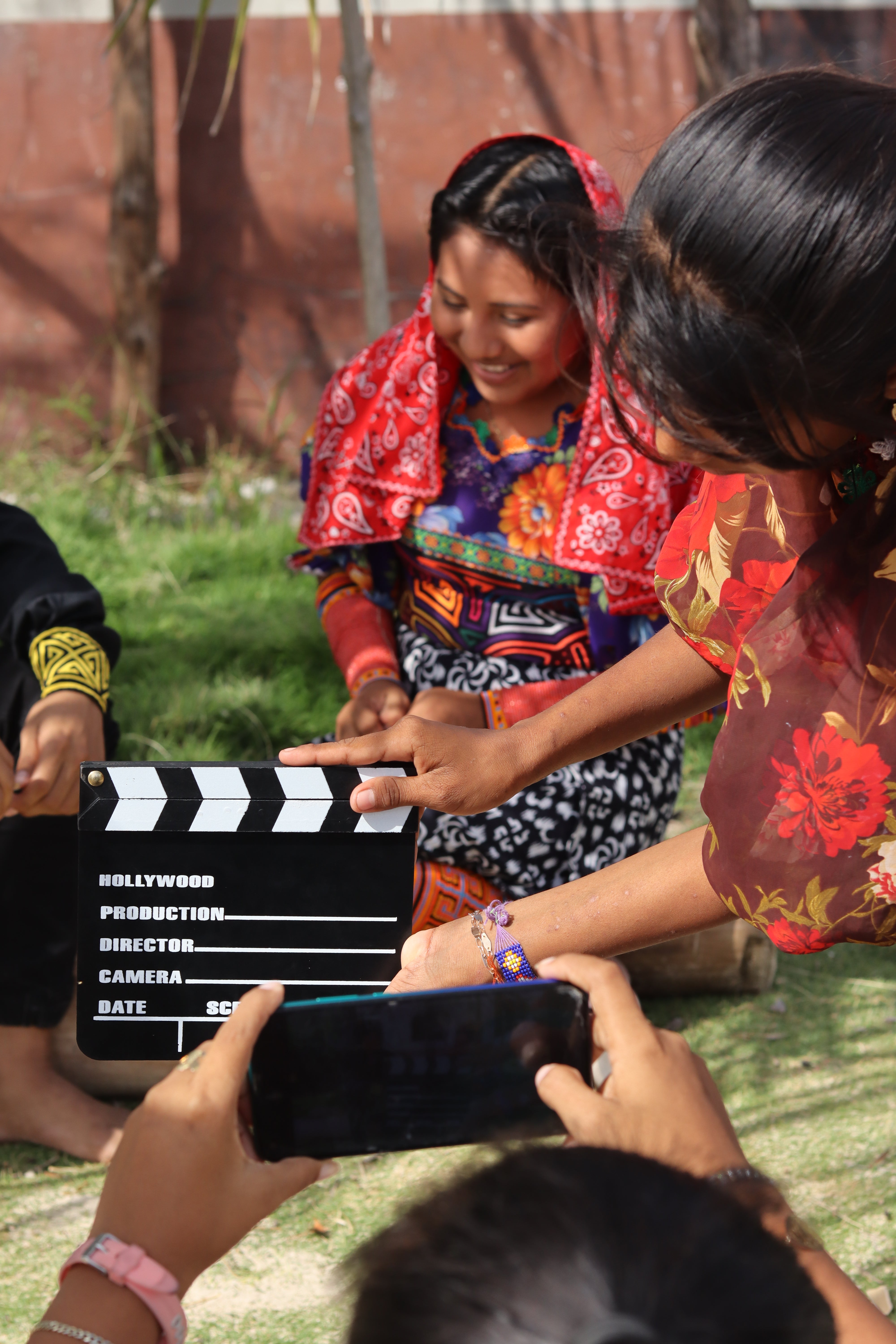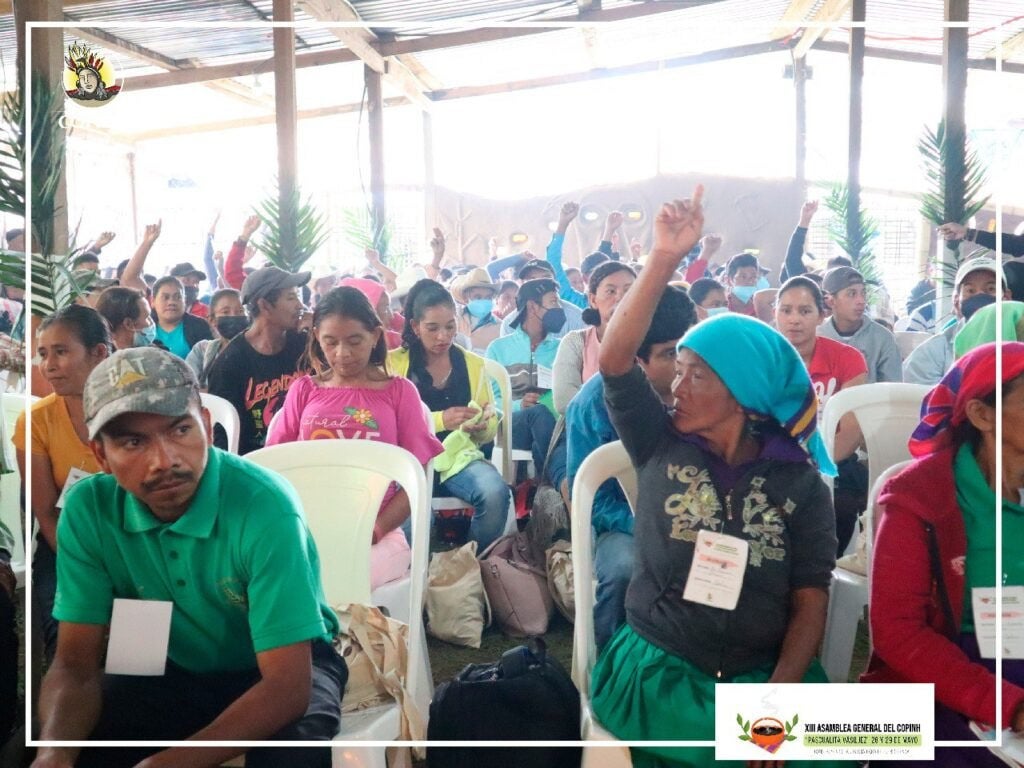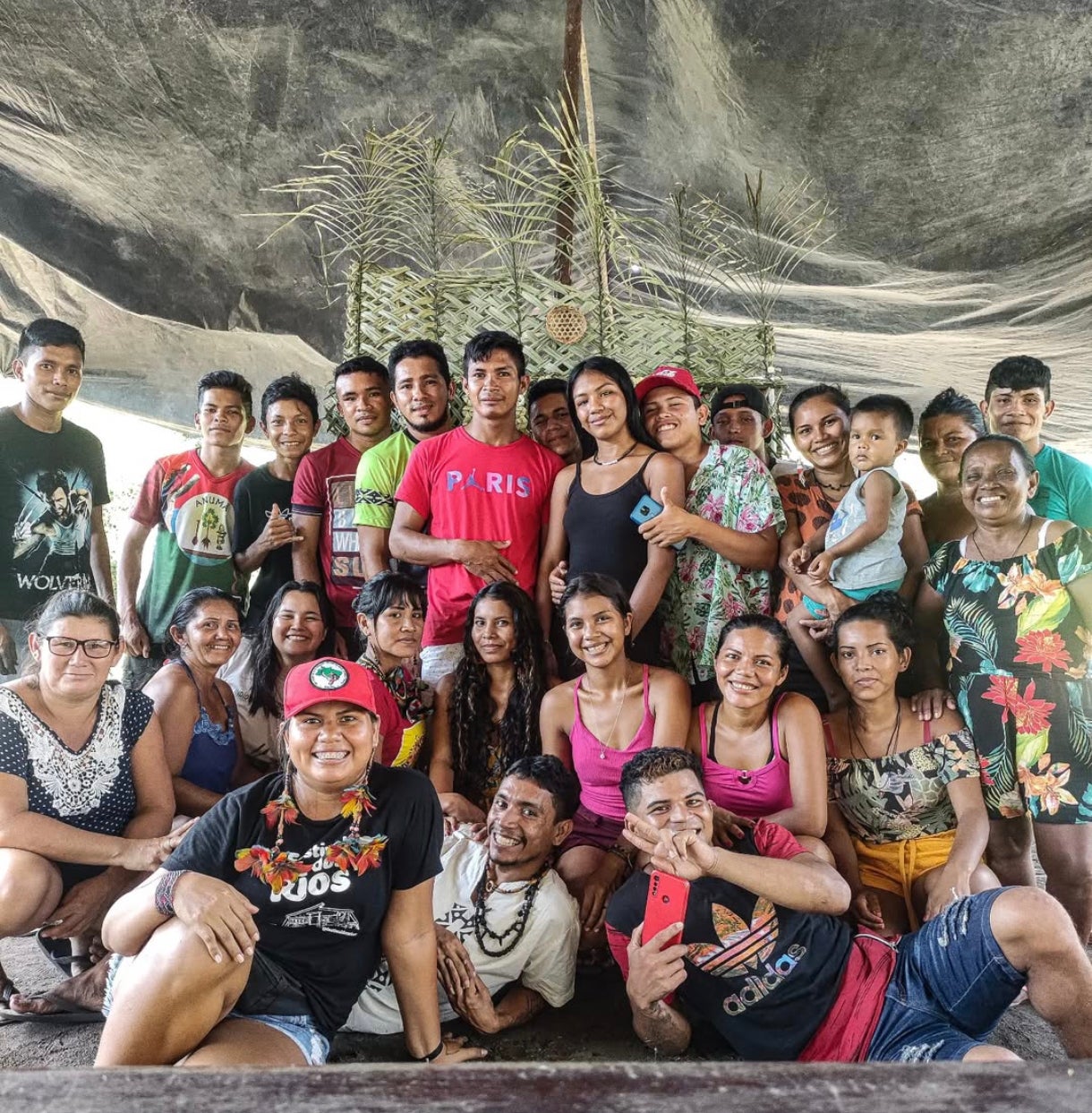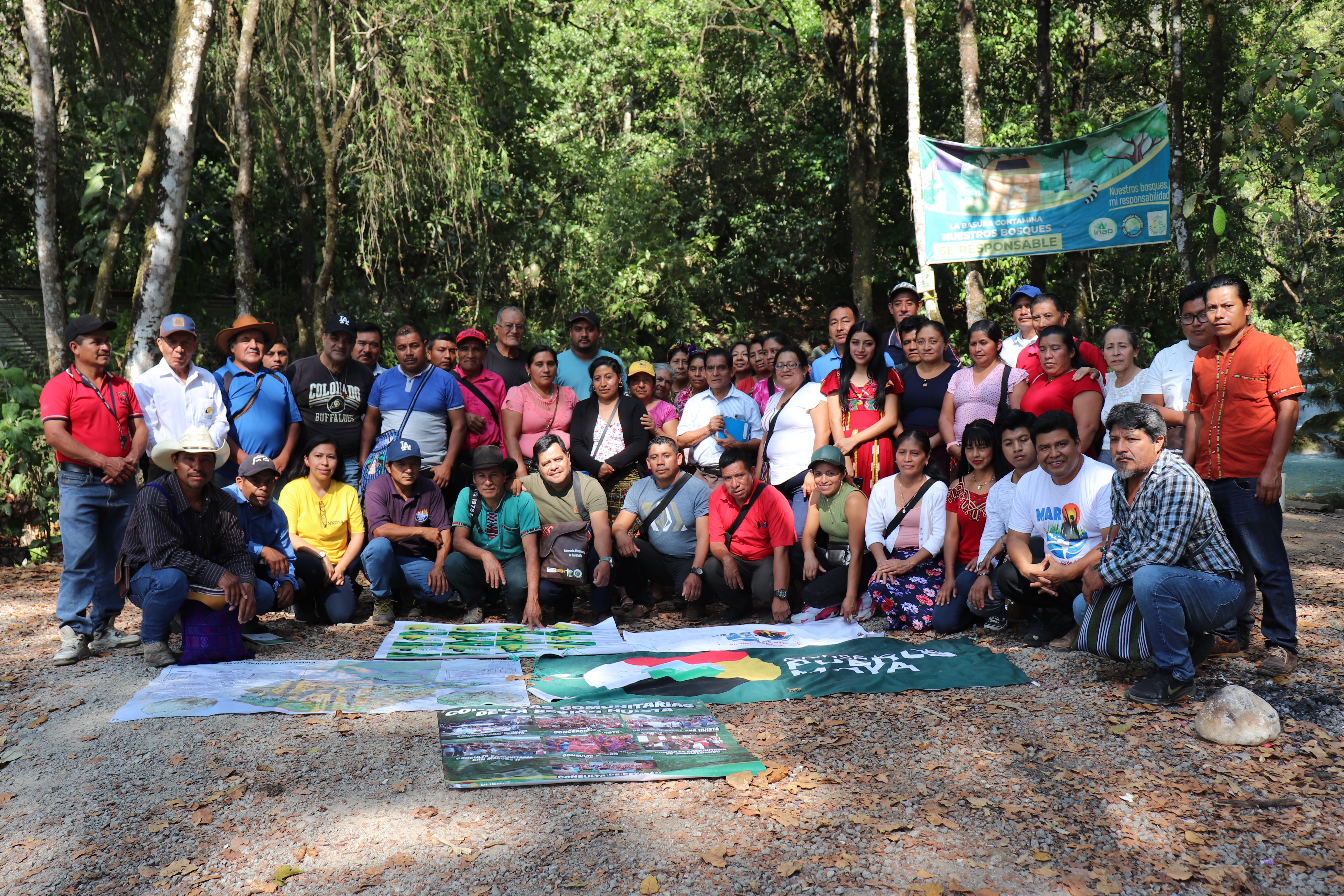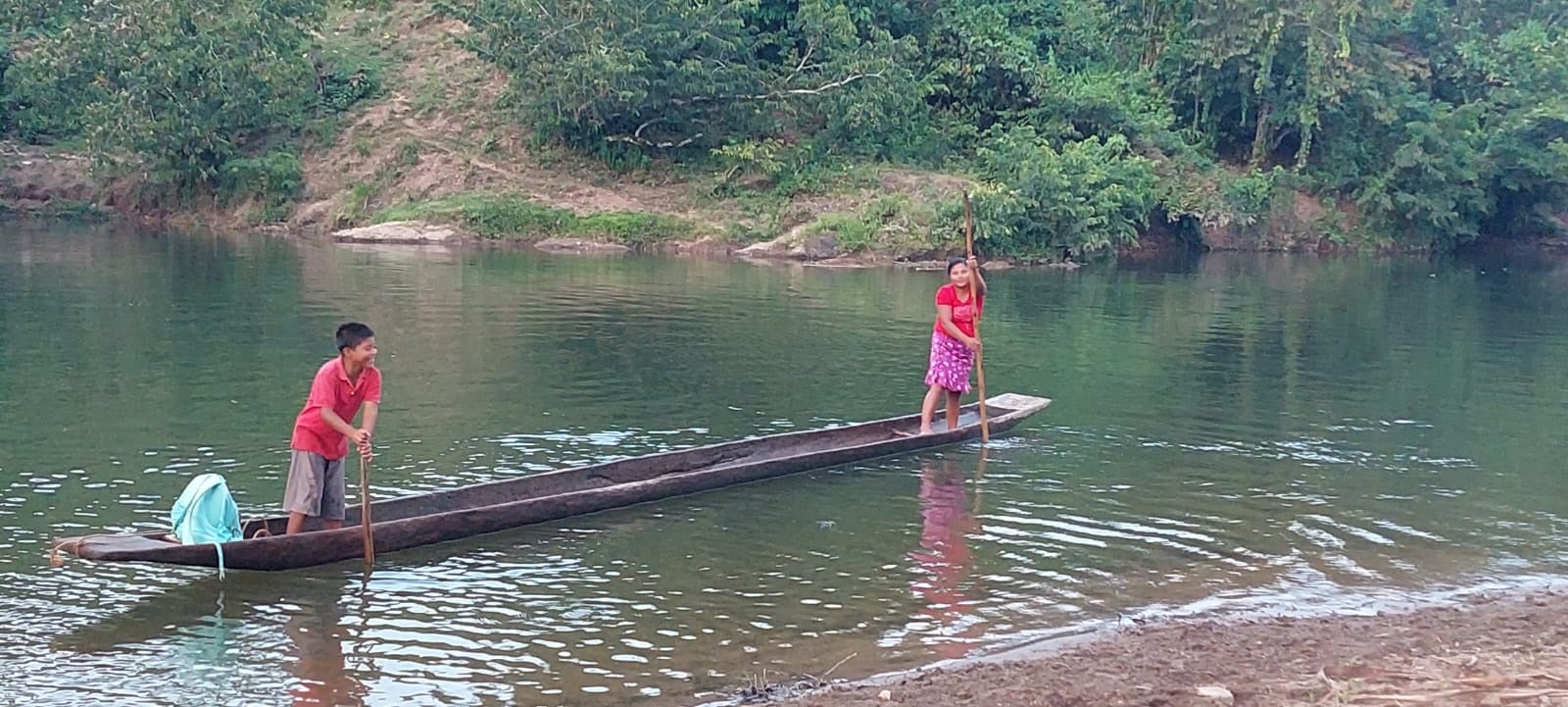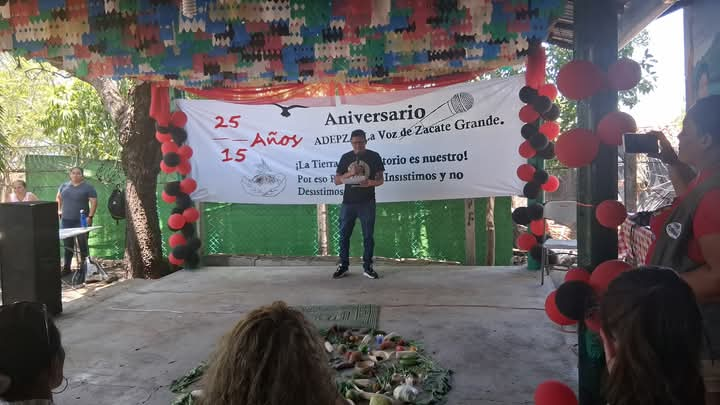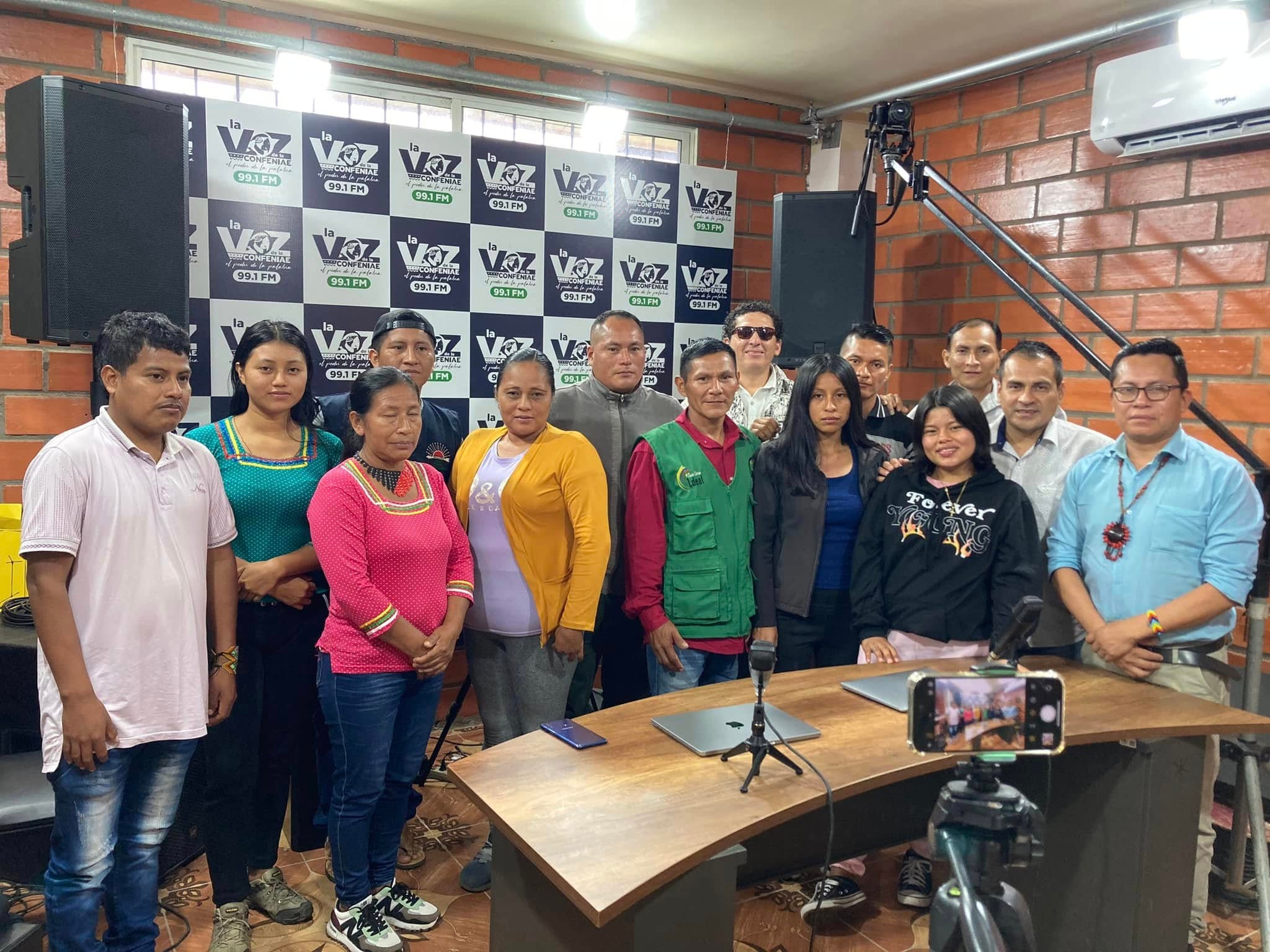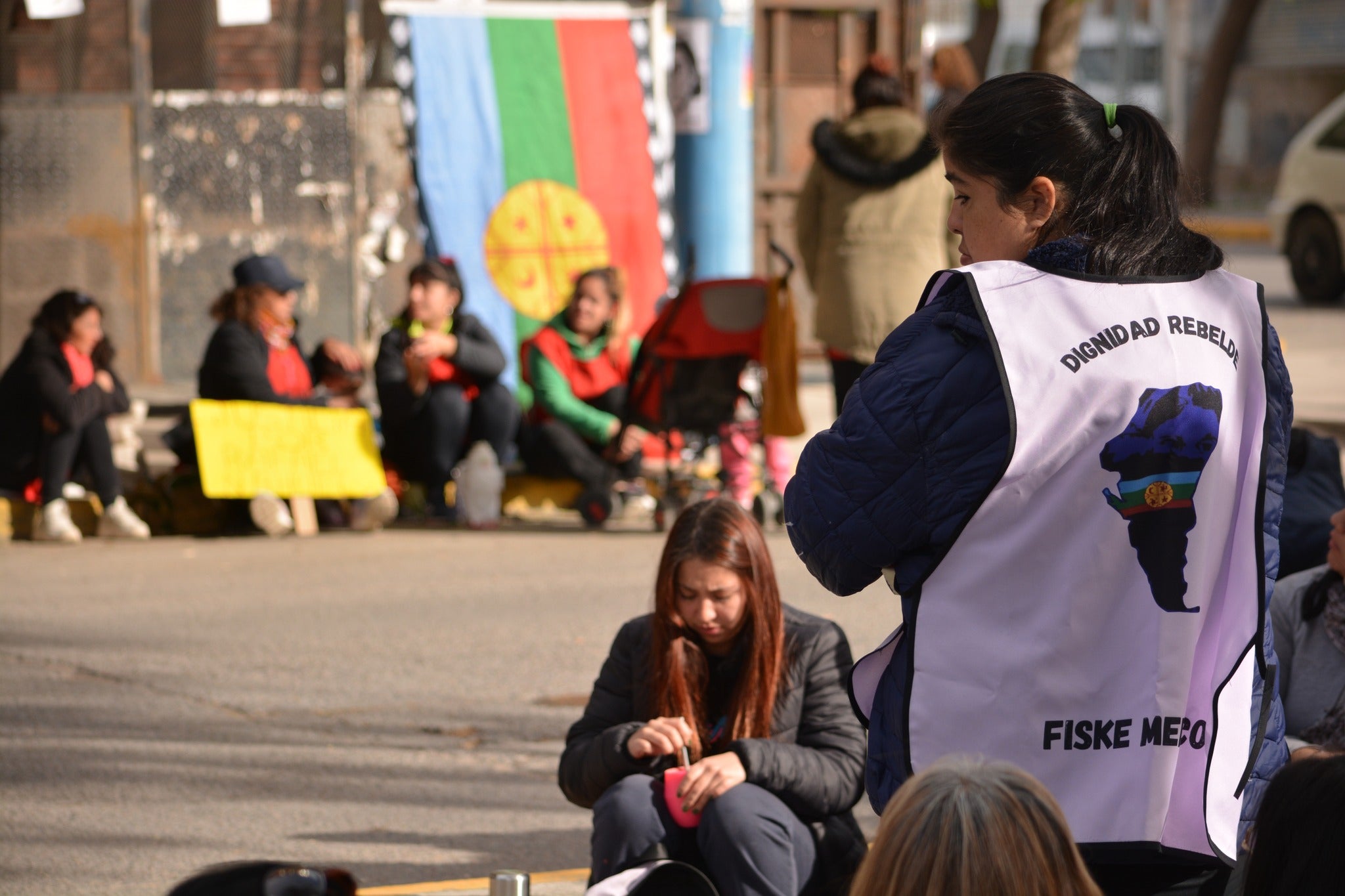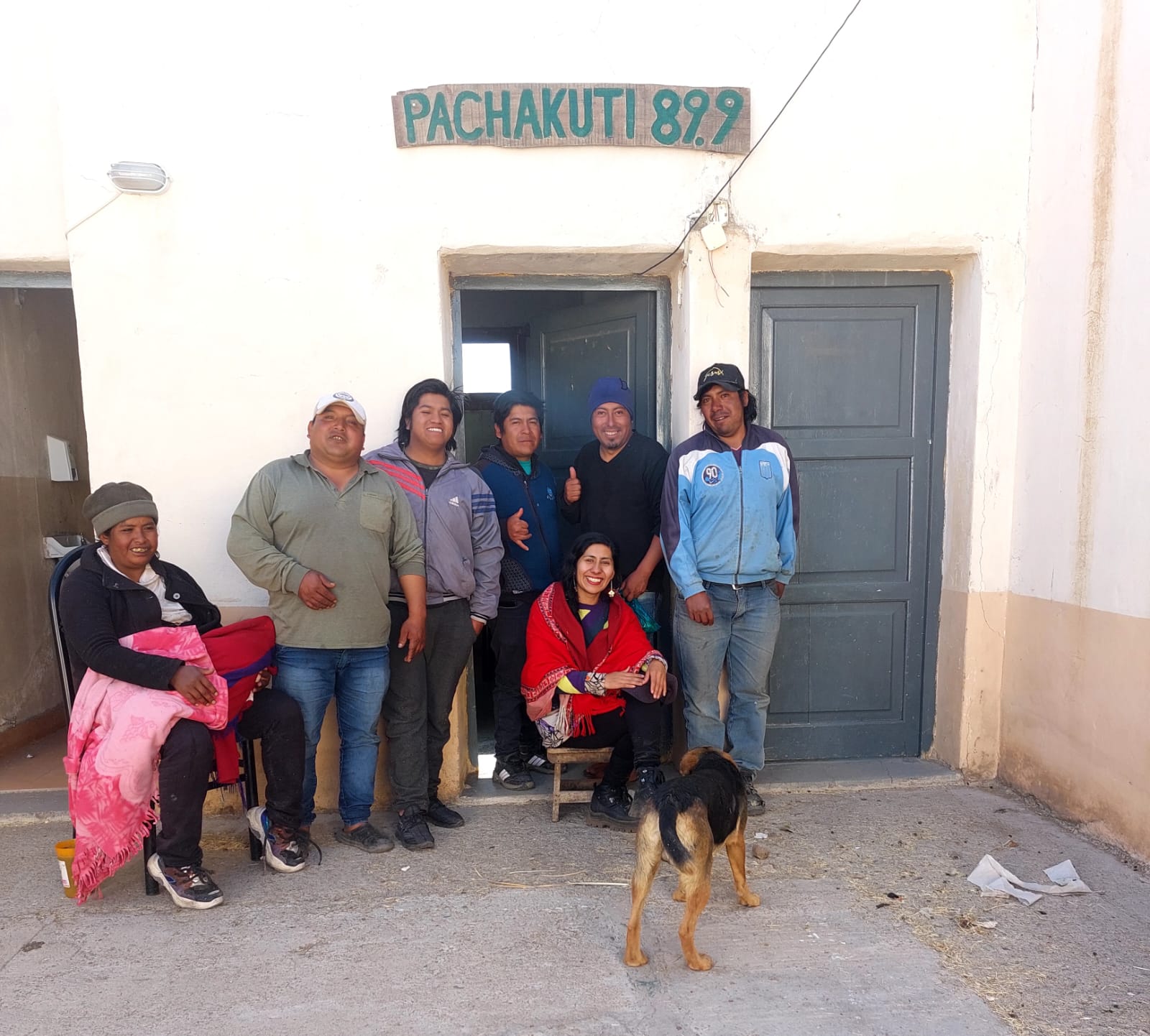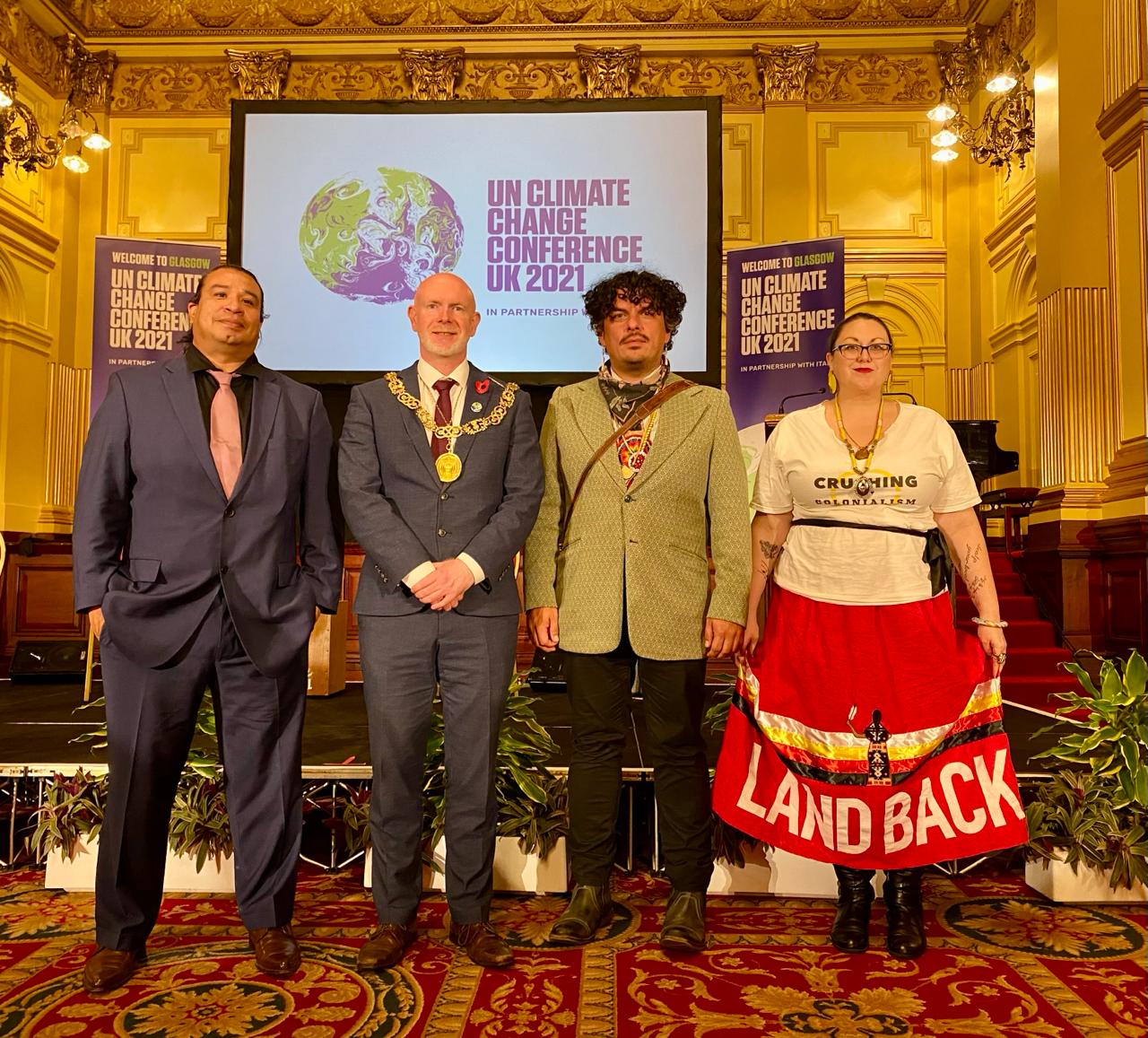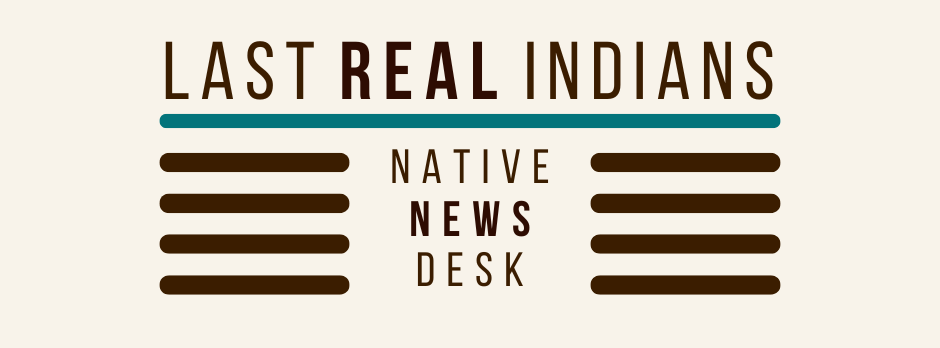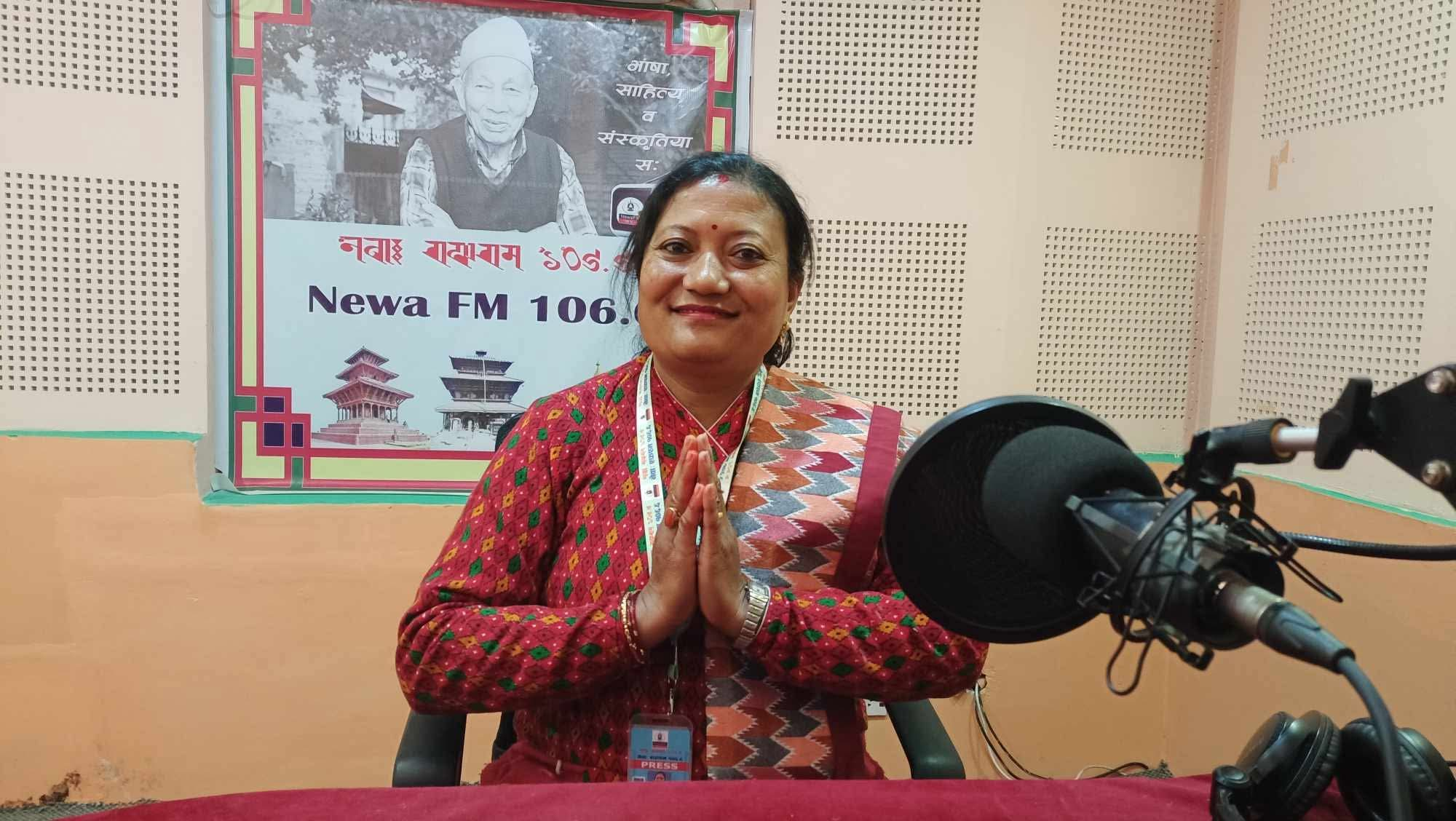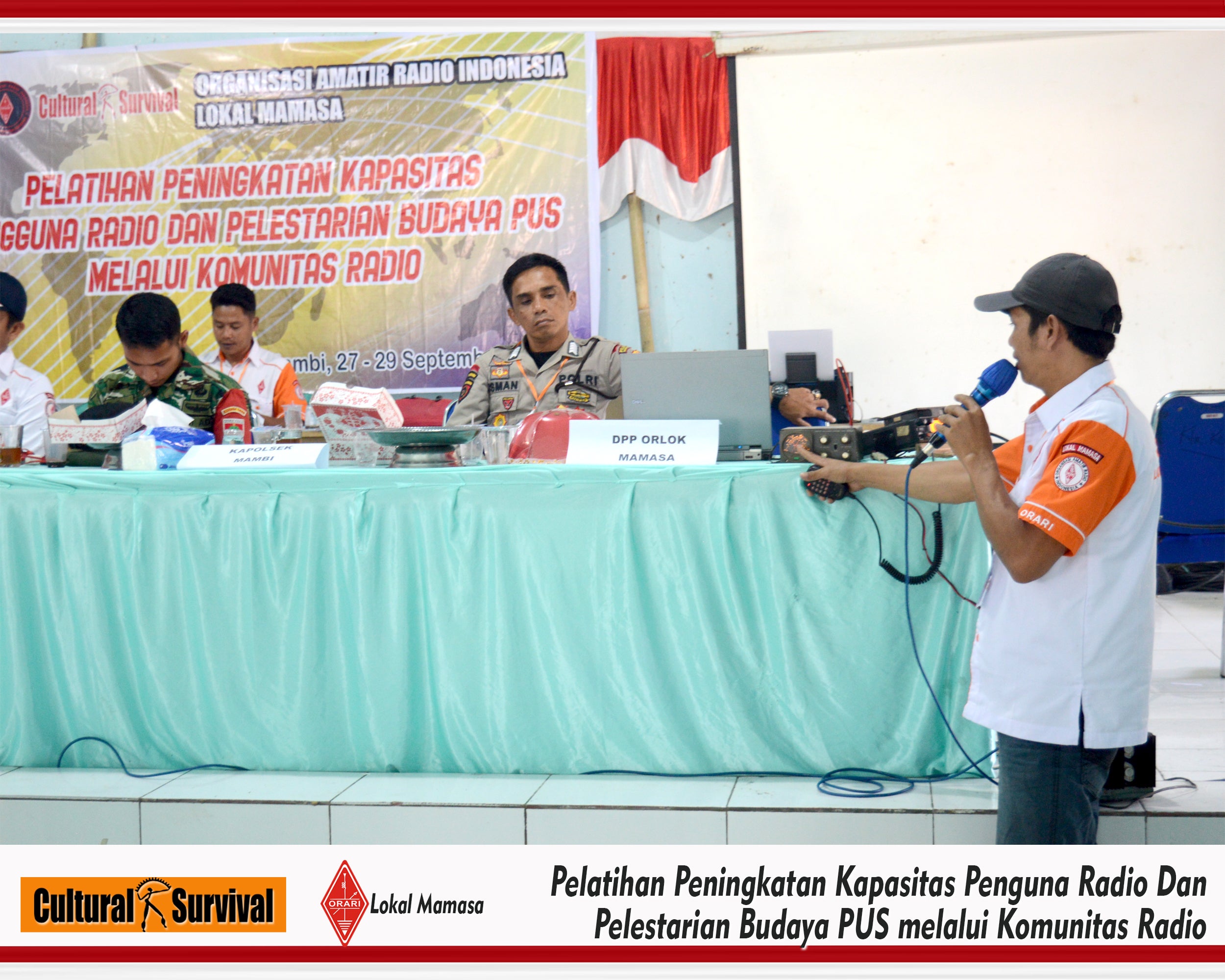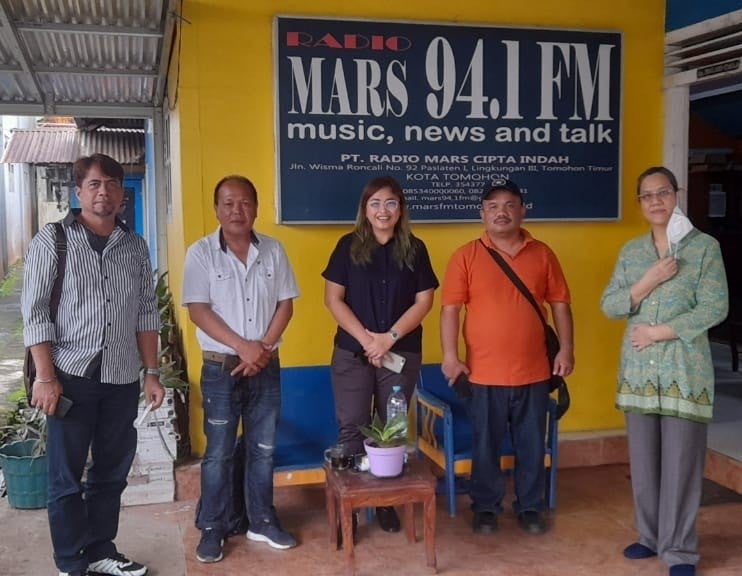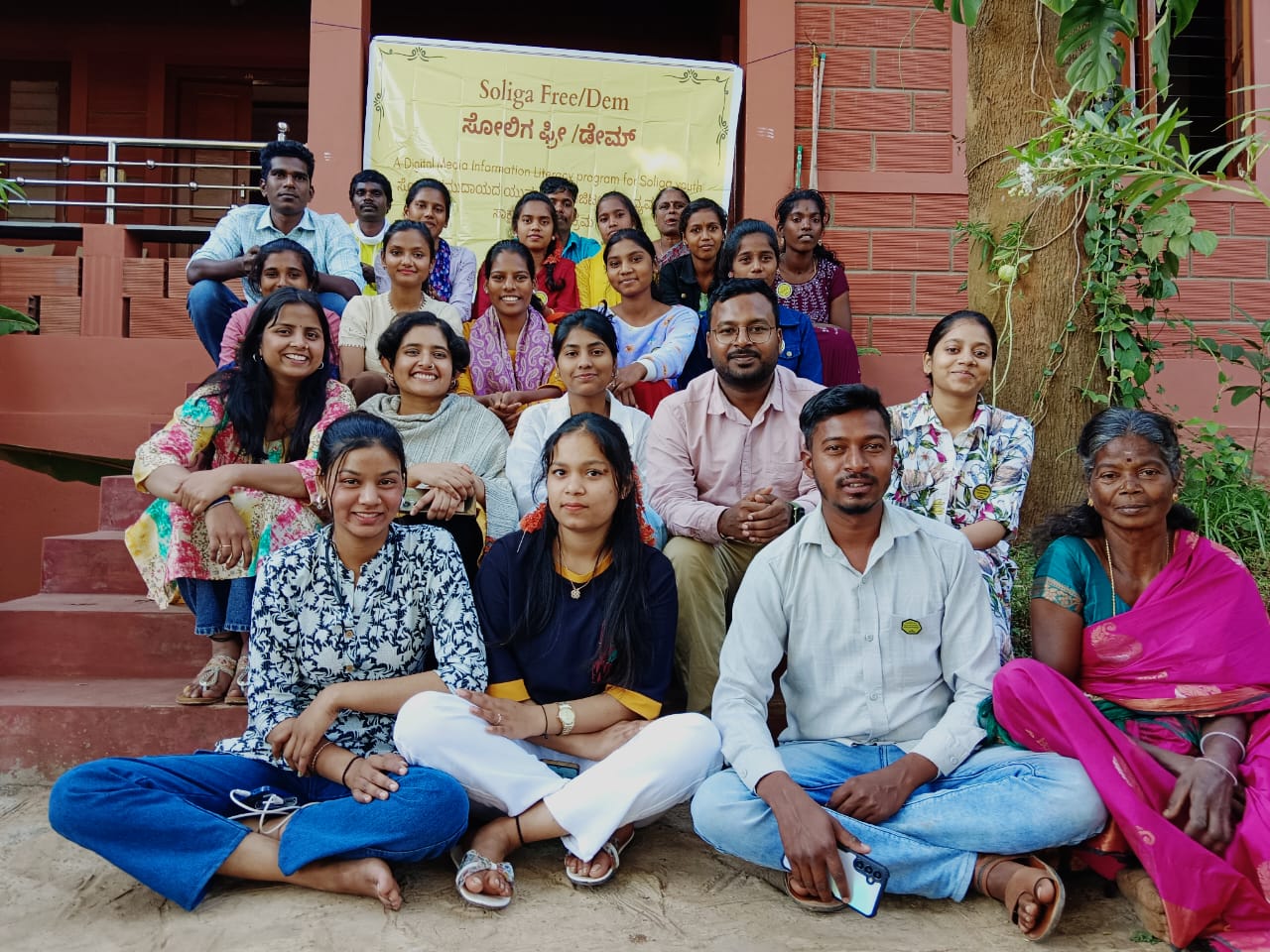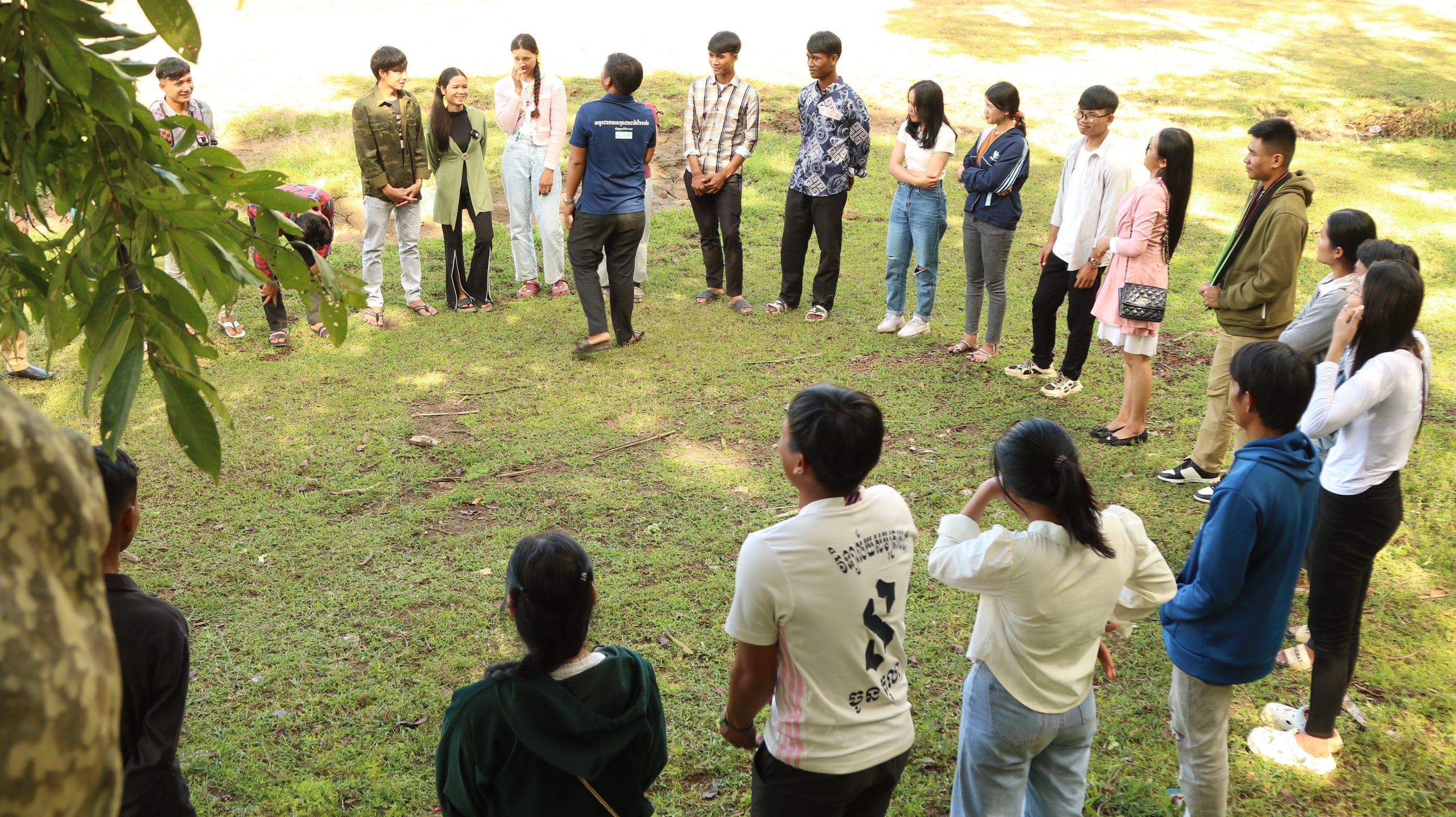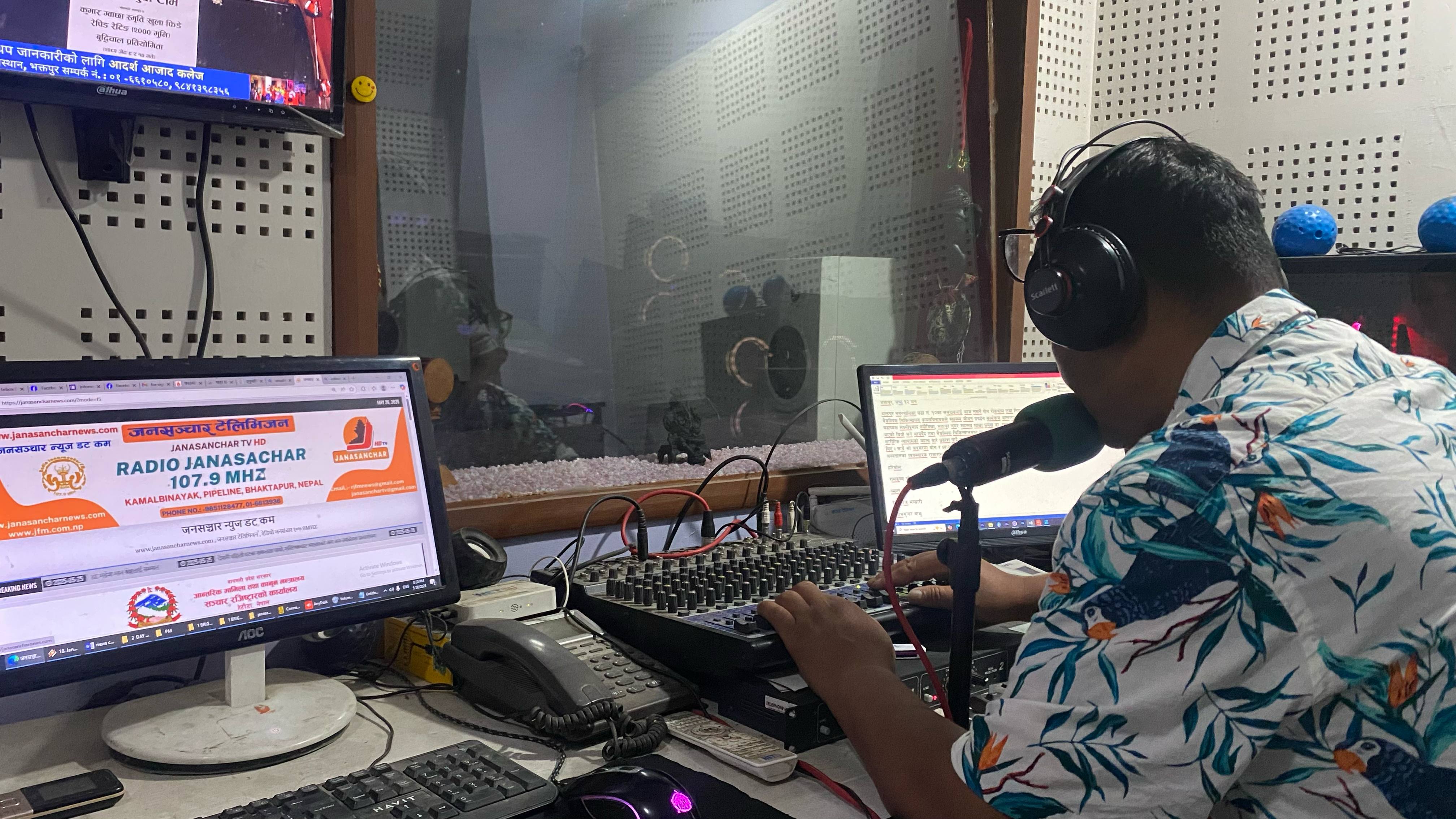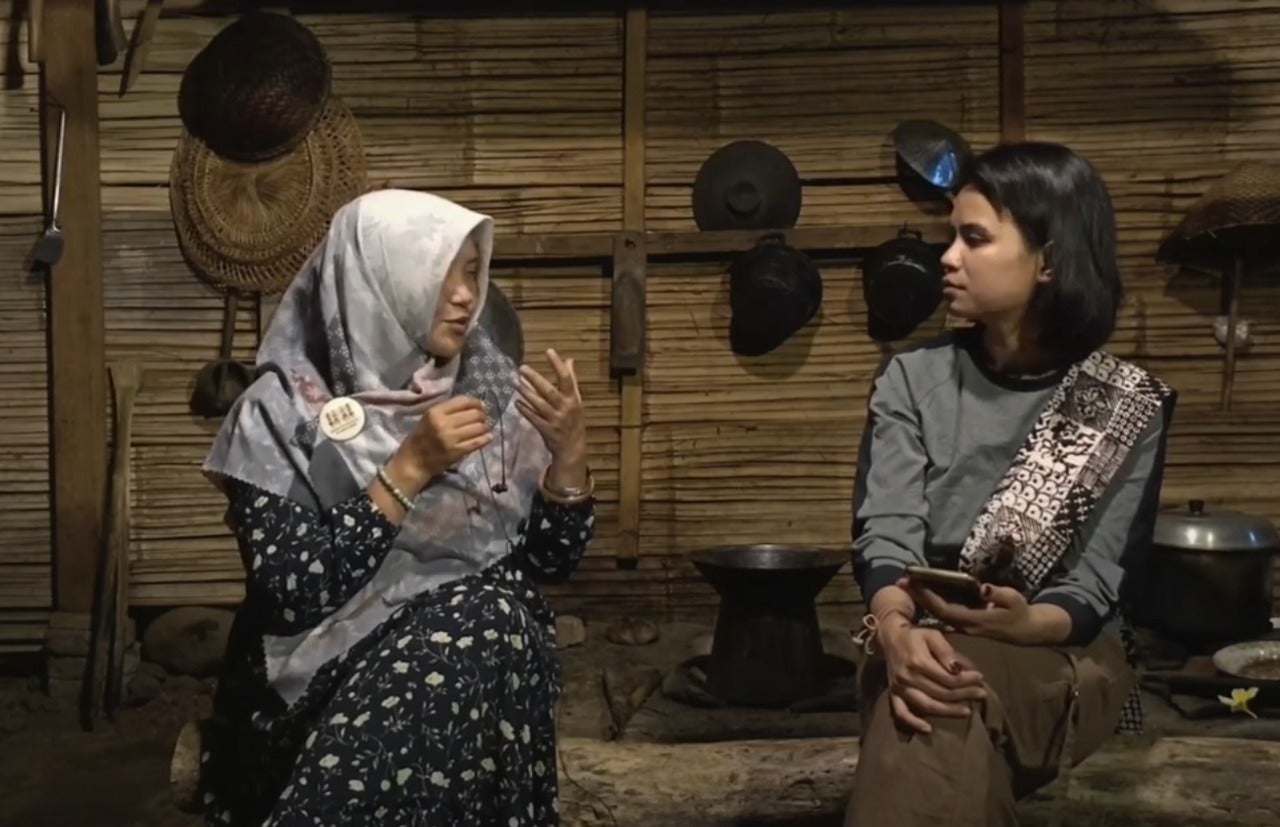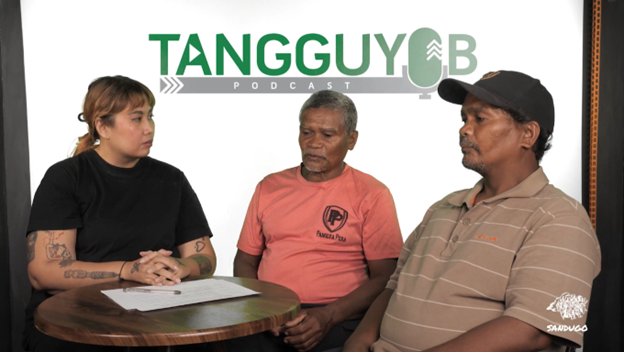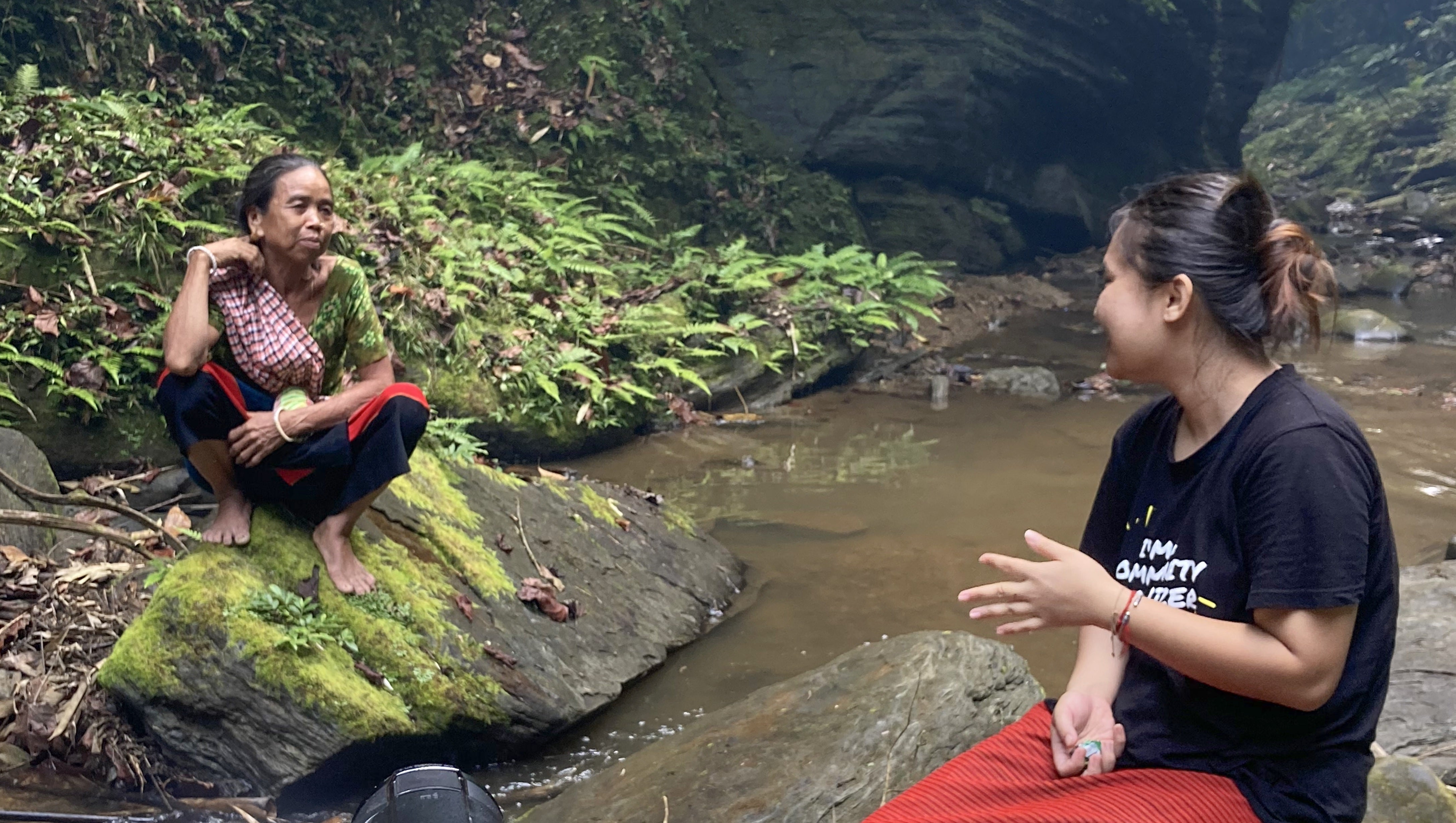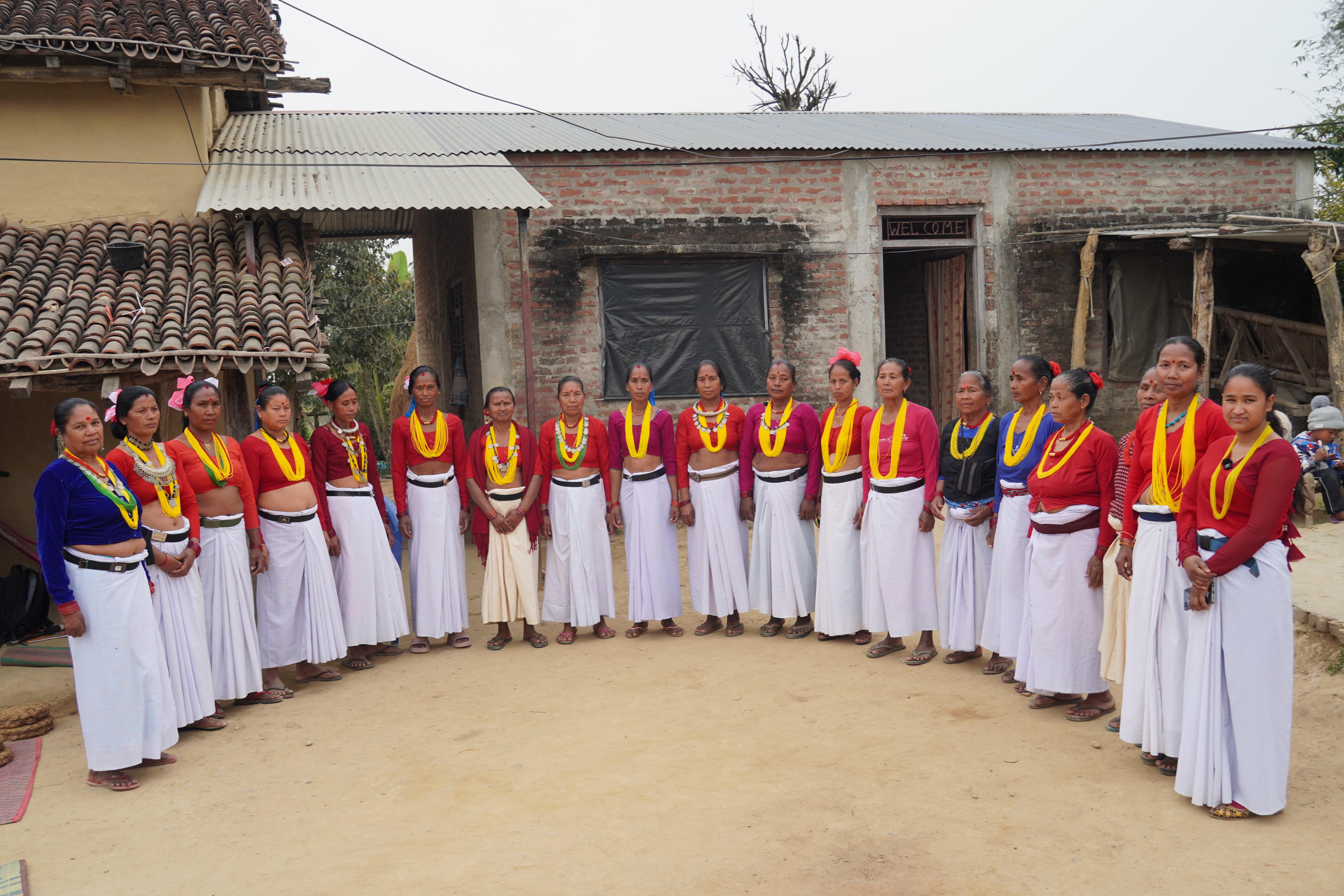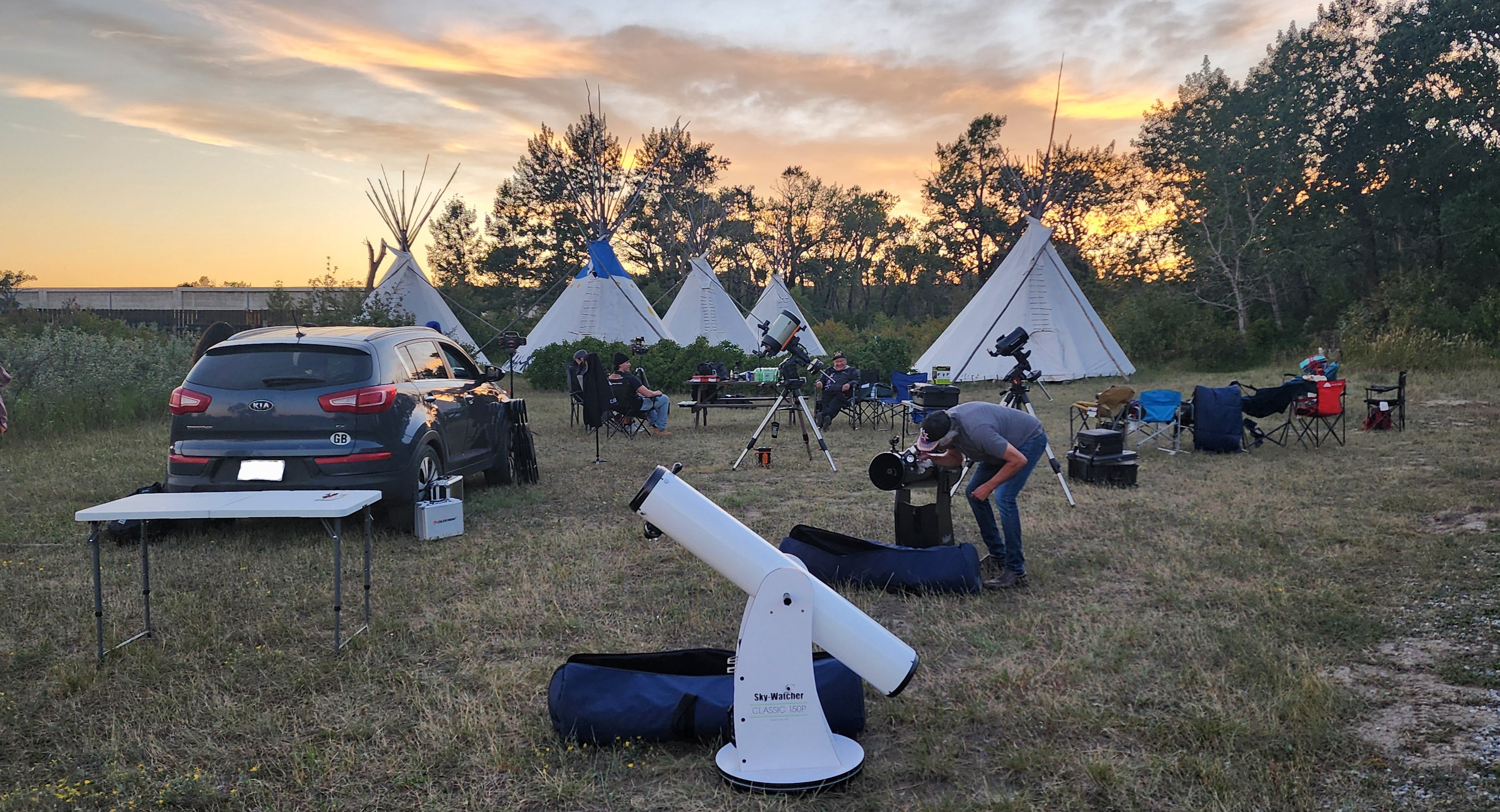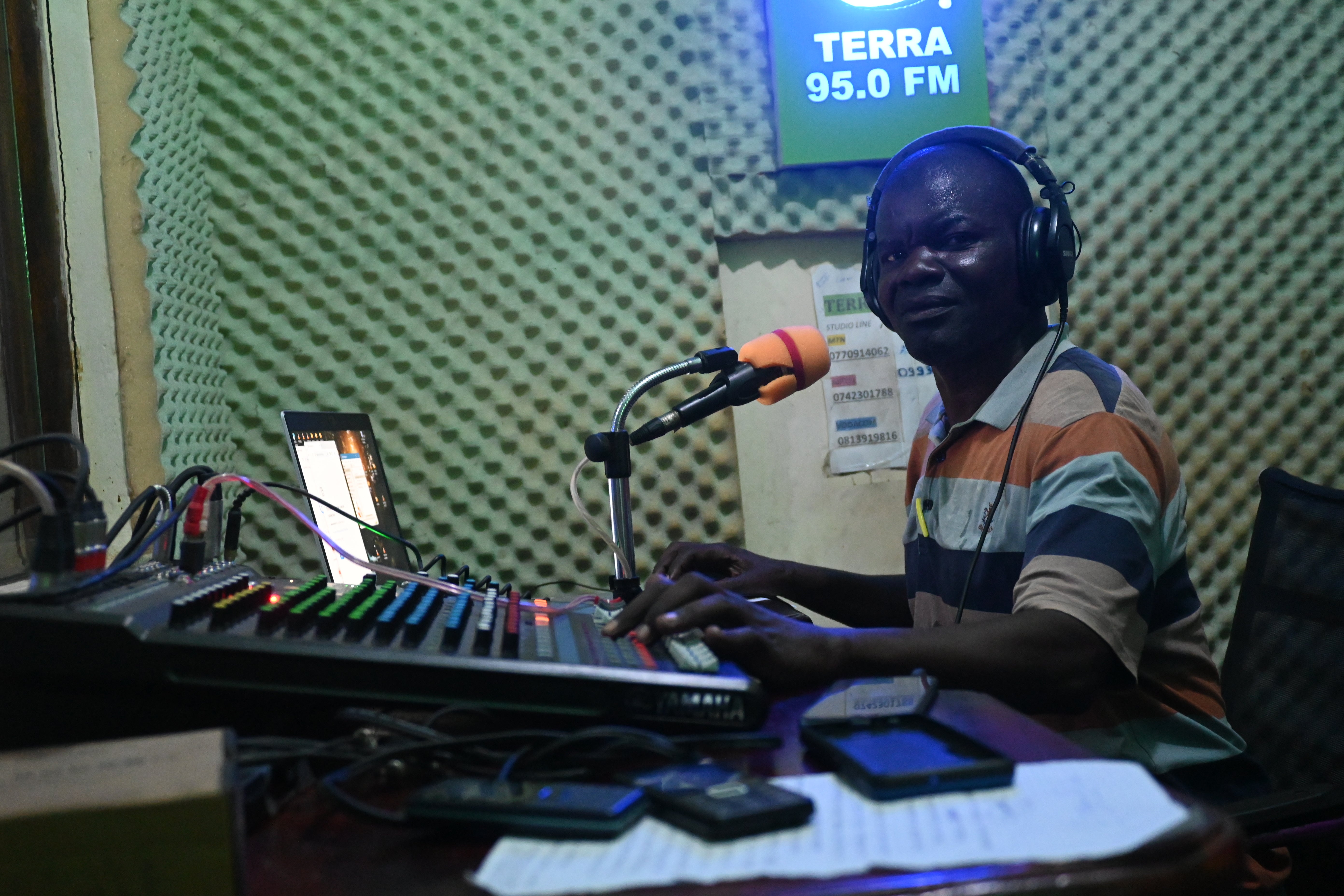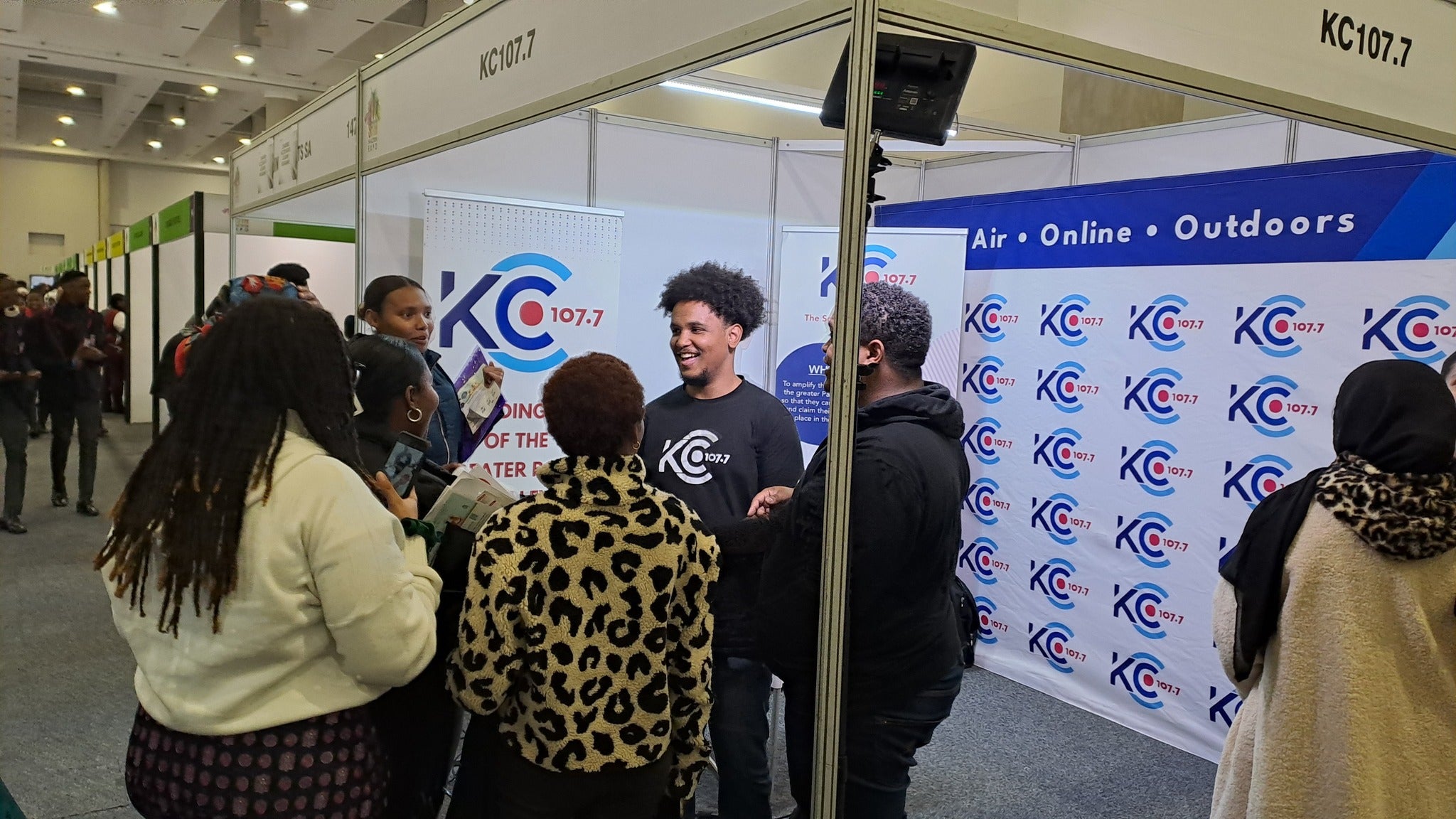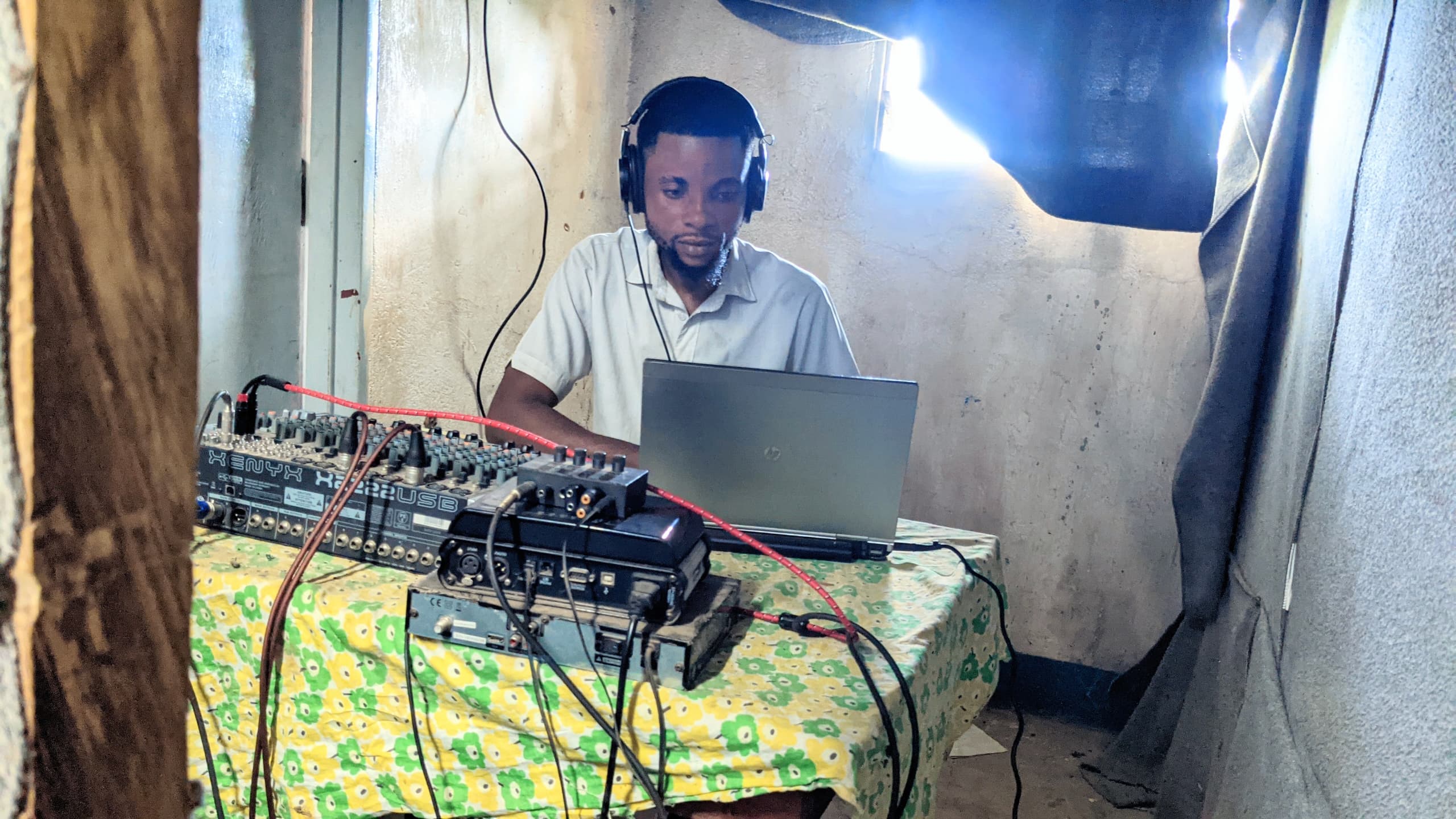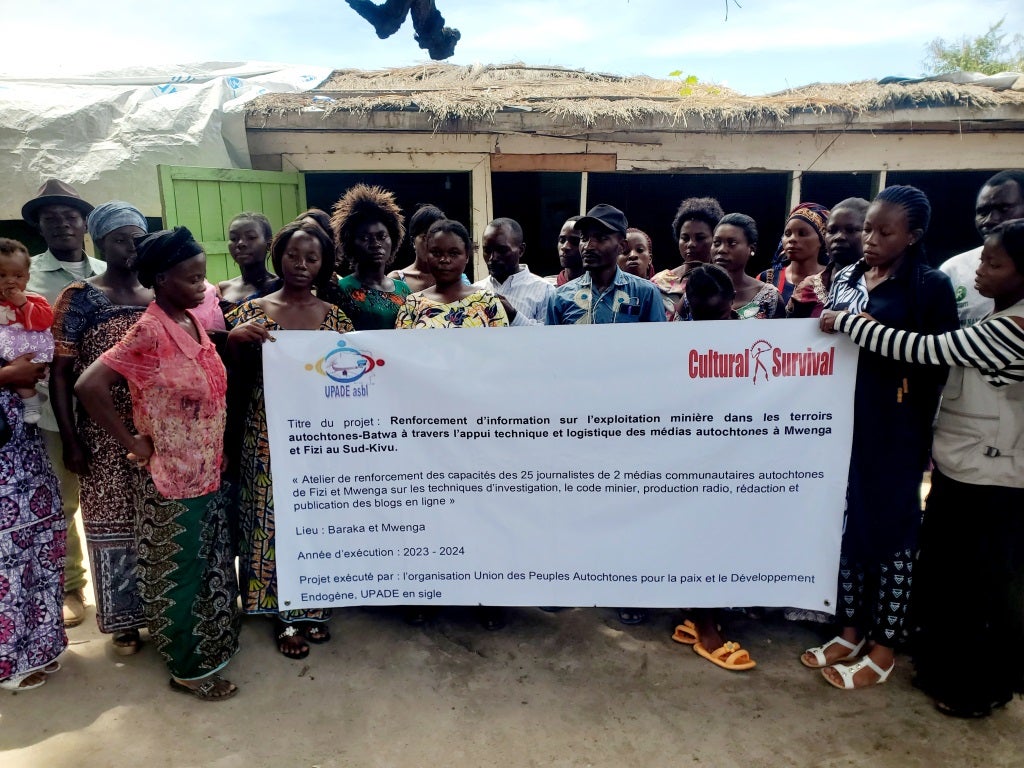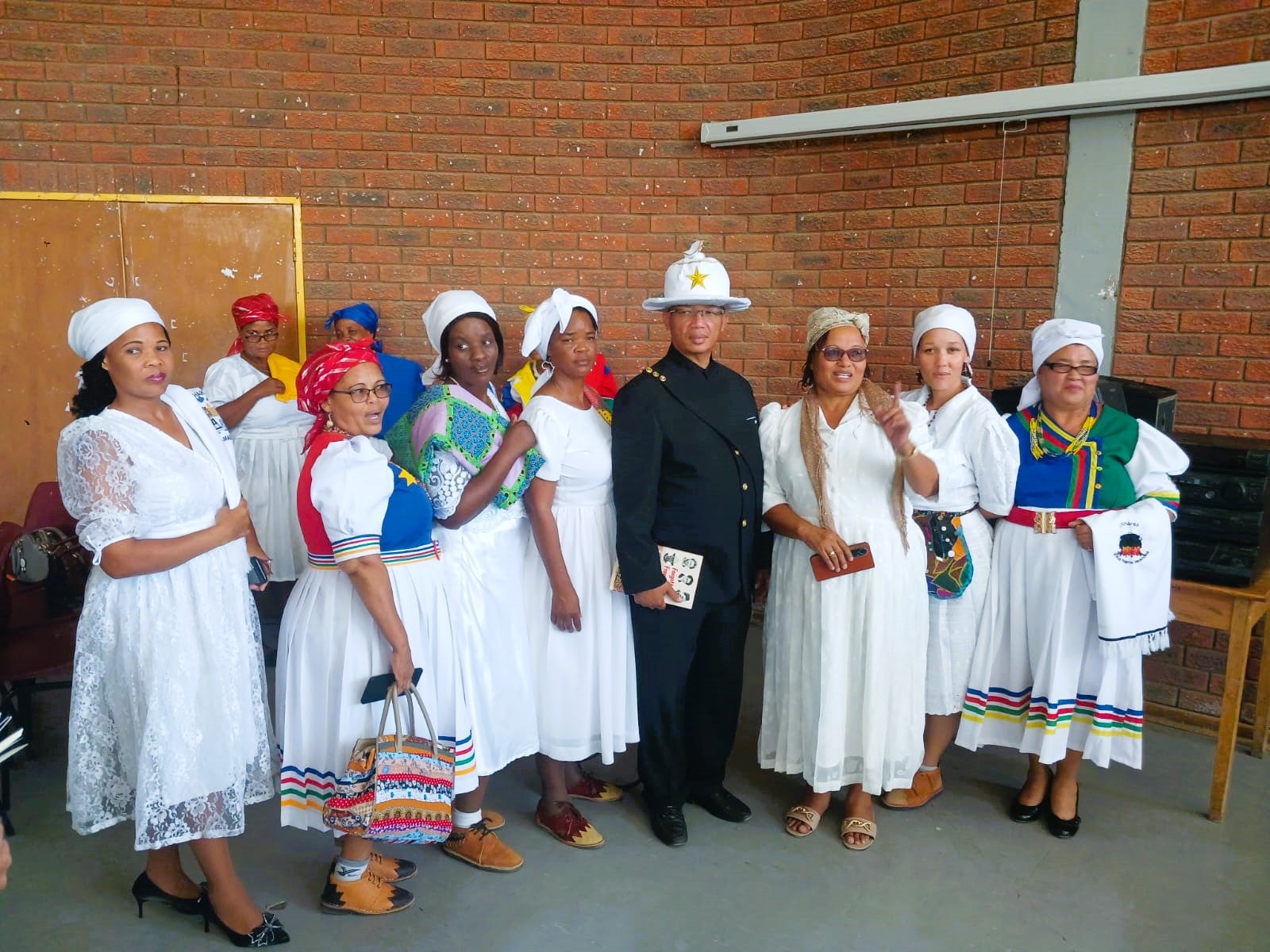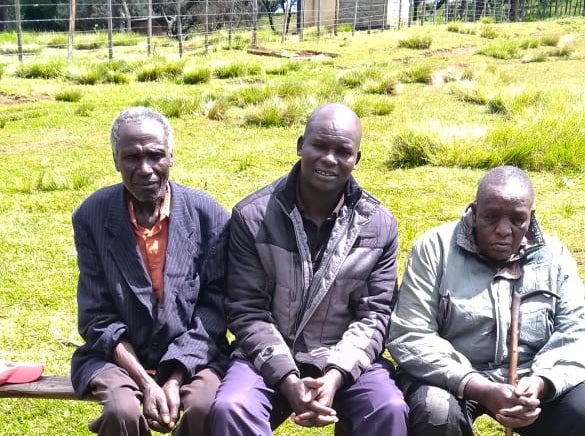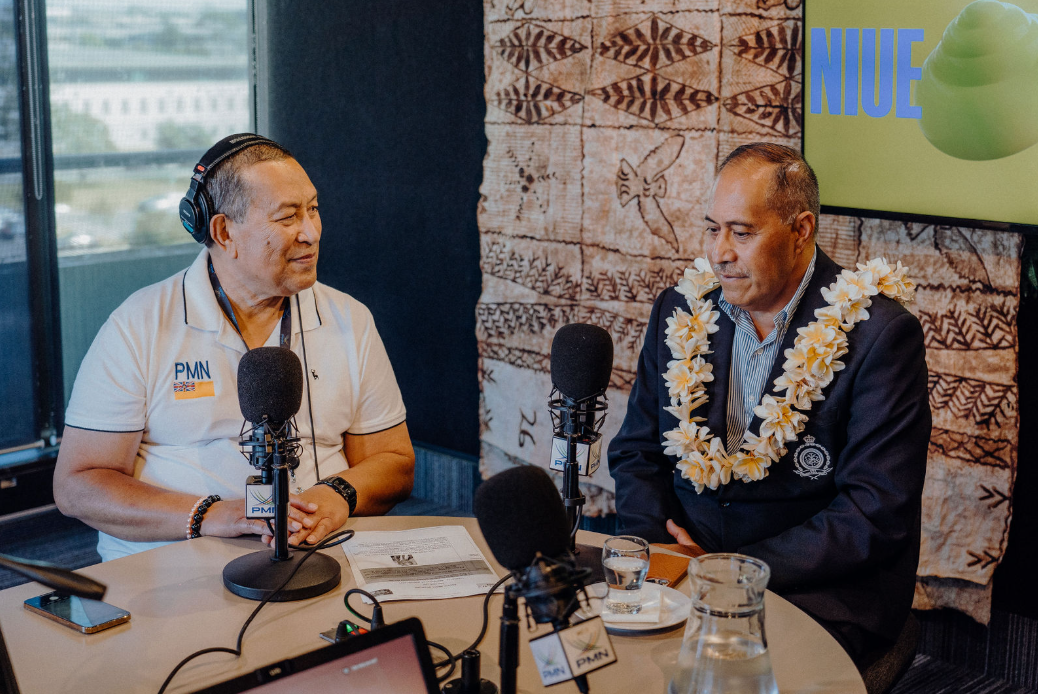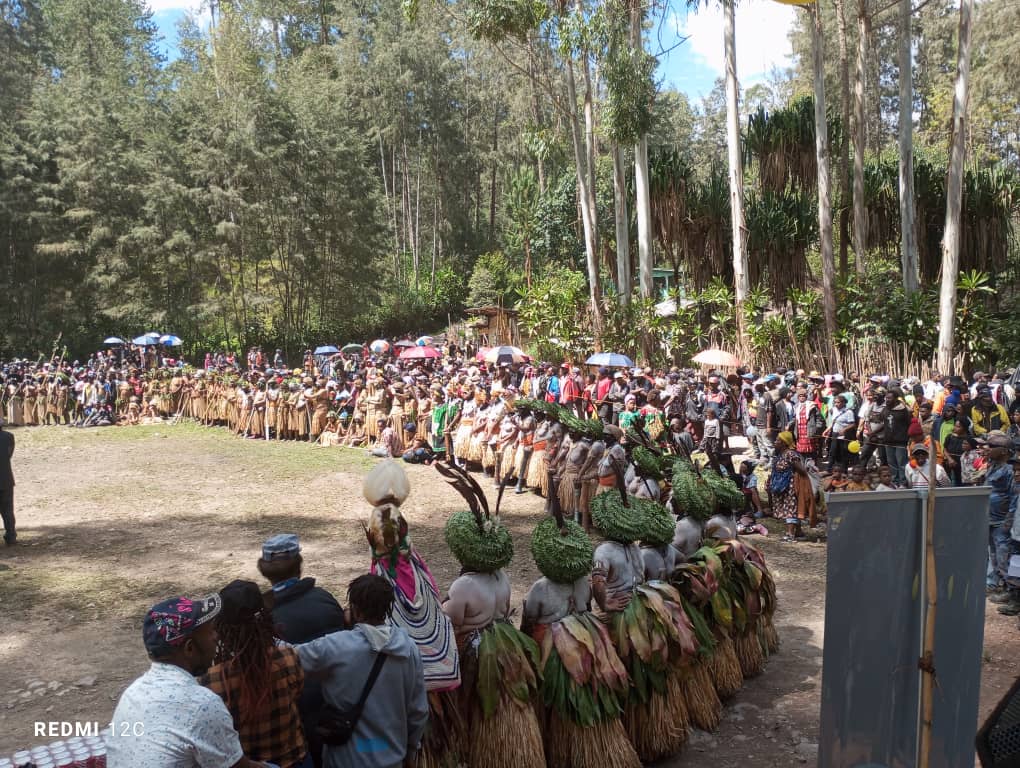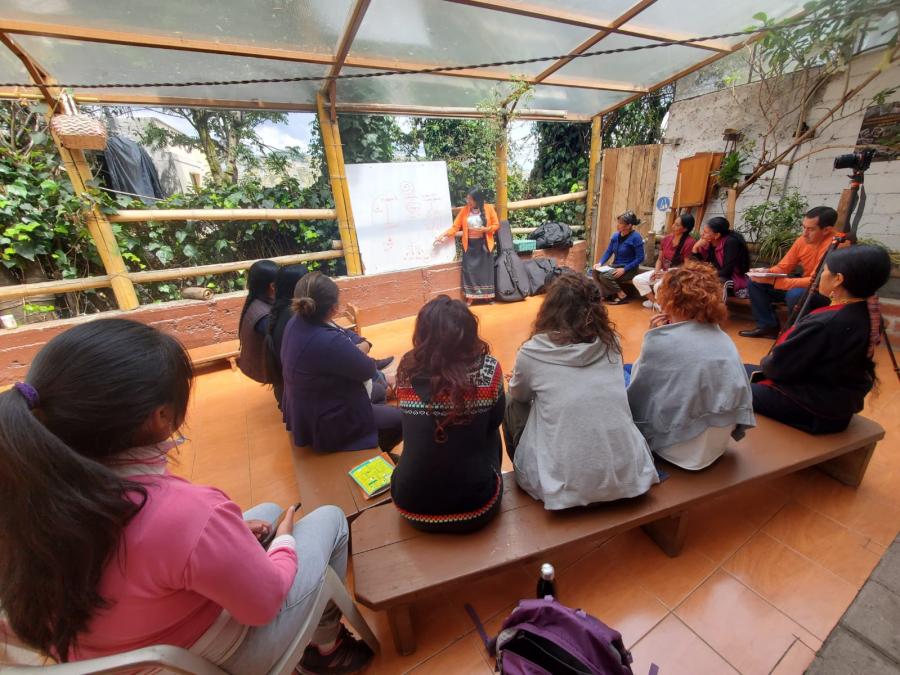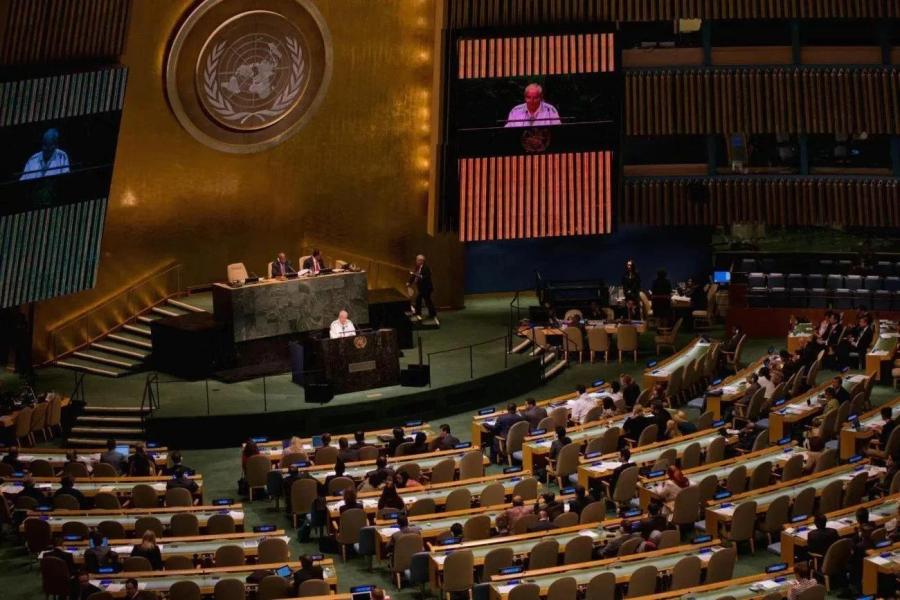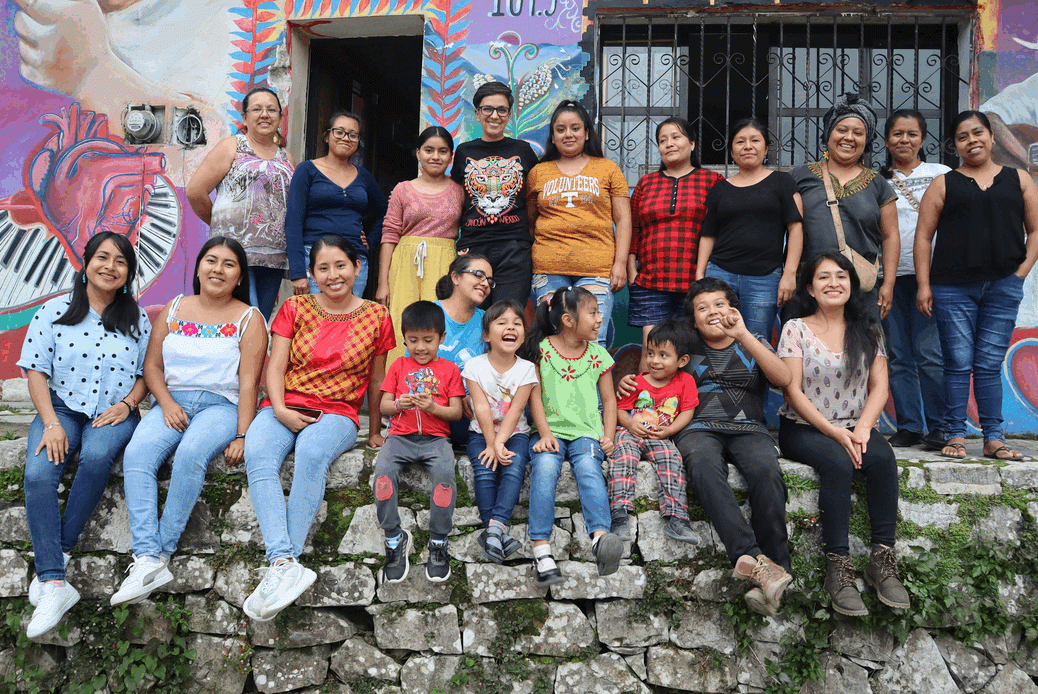
Indigenous community media are essential pillars for disseminating the voices, stories, and struggles of Indigenous Peoples. Through audio and video productions, they promote processes of resistance, affirmation, and cultural revitalization. The following community media outlets show the world a unique perspective on what territory, languages, diversity, and life mean. These media outlets are spaces where people learn and deconstruct through collective dialogue, addressing issues of great importance such as individual and collective rights while promoting the active participation of women, youth, Elders, and children.
These community media projects strengthen the commitment to the safeguarding of cultural identity, care of the territory, and the transmission of ancestral knowledge. They promote intergenerational exchange of knowledge and the integration of new tools, ensuring that future generations continue to learn, express themselves, and maintain ties to their Indigenous heritage, thus strengthening a dignified and respectful present and future.
Now in its ninth year, Cultural Survival's Indigenous Community Media Fund has maintained its goal of providing funding, support, and training to various types of Indigenous community media outlets so that they can carry out informational and documentary work, as well as processes of resistance within and outside their communities. Since 2017, the Indigenous Community Media Fund has awarded a total of 422 grants, supporting community media projects in 41 countries on 4 continents, for a total of $2,829,561.
In 2025, Cultural Survival's Indigenous Community Media Fund has awarded a total of $502,000 to 63 Indigenous communication projects that will benefit Indigenous Peoples in 29 countries: Argentina, Bangladesh, Bolivia, Botswana, Brazil, Chile, Ecuador, Colombia, United States of America, Philippines, Guatemala, India, Kenya, Mexico, Nepal, Peru, South Africa, Democratic Republic of Congo, Indonesia, Honduras, Mali, Nicaragua, Cambodia, Chile, Canada, Panama, Paraguay, Papua New Guinea, New Zealand, Nicaragua, and Tanzania.
The projects address needs in infrastructure, equipment, capacity building, and content production that will contribute to the sustainability of the work and community communication processes led by the community groups and media outlets.
We are pleased to introduce our 63 partners funded in 2025, featured with their consent:
Americas
Indigenous Council of the Guambiano La Bonanza Reserve
Colombia (Misak)
The Indigenous Council of the Guambiano La Bonanza Reserve defends their territory, social equity, and buen vivir (good living) in harmony with Mother Earth, guided by the Misak worldview. It promotes self-education, community justice, food sovereignty, and cultural strengthening, integrating ancestral knowledge with organizational processes to guarantee the survival of the Misak People. “Usri to Usri - From Misak Mother to Mother Earth” strengthens the participation of Misak women in environmental and climate change issues through mingas, meetings, educational walks, and knowledge transmission spaces.
Radio Tsinaka
Mexico (Nahua)
Radio Tsinaka is a community radio station located in the northeastern highlands of Puebla, Mexico. Its community communication work seeks to reclaim and strengthen the identity of the Nahua, Tutunakú, and mestizo communities of Puebla and Veracruz, Mexico. Radio Tsinaka’s work is fed by various members of the community, including farmers and Indigenous movements working for the defense of territory, and regional organizations that promote a dignified life through education, health, and the economy. This media outlet aims to consolidate a team of professional Nahua and Tutunakú communicators in the region who create informative, educational, cultural, and entertaining radio content relevant to their community. Their project, “The Word Flourishes,” dignifies the work of Radio Tsinaka’s communicators and strengthens their daily efforts. The team conducts surveys, designs methodologies, and carries out the legal aspects of the collective. Ultimately, they aim to inform and empower the Nahua, Tutunakú, and mestizo communities through community media, thereby promoting their self-determination.
Nohosca-Muisca Communications of Suba
Colombia (Muisca)
The Nohosca-Muisca Communications of Suba team are strengthening their Muisca identity and raising awareness of community processes through memory, territory, and language. Their goal is to revitalize the Suba Cubun language and protect their territory through grassroots communication. They document cultural expressions as a form of resistance and collective healing. The project, “Strengthening the Team of Nohosca Communicators,” launches the Muisca People’s community radio station in Suba with the goal of preserving ancestral memory and strengthening the Suba Cubun language. The team will train a group of Indigenous communicators to produce content on cultural and territorial knowledge, thereby raising awareness of the struggles of the Muisca people and promoting the defense of their territory. Content will be produced in their native language, and will include interviews with experts addressing issues related to youth, women, and spirituality.
Estoreña Association for Integral Development (AEPDI)
Guatemala (Maya Q'eqchi')
The Estoreña Association for Integral Development works in the regions of Izabal and Alta Verapaz, Guatemala, with a focus on the defense of the Maya Q'eqchi' communities. One of their main areas of action is the protection of ancestral territory, which is currently threatened by industrial palm oil cultivation, hydroelectric projects, and concessions for transition mineral mining. The Maya Q'eqchi' communities have a deep historical relationship with their lands based on agriculture, fishing, and sustainable forest management. However, the Guatemalan state has only partially and insufficiently recognized their rights, which has led to multiple conflicts, including inadequate titling of communal lands, expansion of monoculture plantations, and the granting of mining and hydroelectric concessions without their Free, Prior and Informed Consent. “Q'eqchi' Maya People Against Transitional Mineral Extraction Companies” strengthens the organizational capacities of the Q'eqchi' People to confront the impacts of mining in El Estor, Izabal. The team conducts training workshops on agroecology, Indigenous rights, the environment, and the economy; runs a bilingual radio campaign in Q'eqchi' and Spanish; and facilitates exchanges with organic farmers. Through these actions, the project promotes sustainable alternatives to the extractive model and prioritizes the active participation of women, youth, and directly affected communities.
Awajún Autonomous Territorial Government (GTAA)
Peru (Awajún)
The Awajún Autonomous Territorial Government is the highest representative and self-governing body of the Awajún People. Founded on the collective right to self-determination, GTAA promotes, protects, and defends the collective rights to territory, identity, self-development, and self-government guided by the principle of Tajimat Pujut (Good Living) and the traditional structures of the Awajún people. GTAA protects the forest from extractive activities and promotes comprehensive health with an intercultural approach, bilingual education, community participation, and mapping of Native communities. It also promotes art and crafts as expressions of Awajún identity and a source of economic autonomy. Their project, “Voices of the Jungle,” raises awareness of the impacts of illegal mining in Awajún territory and strengthens cultural identity as a tool for defense. Young communicators and activists will be trained to produce bilingual podcasts in Awajún and Spanish addressing issues such as culture, worldview, and extractive threats. The project seeks to empower communities through accessible and culturally relevant content, to be disseminated through social media and local radio stations.
Pixan Ixim Maya Community (CMPI)
United States (Maya Qanjobal)
The Pixan Ixim Mayan Community is a Maya migrants organization based in Nebraska. Its mission is to implement community development projects based on the social organization system of the Qanjobal Nation and the United Nations Declaration on the Rights of Indigenous Peoples. CMPI currently has projects on health, art and culture, regenerative agriculture, and human rights. Their newest project, “Radio Tzikin,” serves as a fundamental tool for resistance by promoting the Mayan culture and worldview for the Mayan diaspora in the United States. This is essential for preserving the Mayan languages of Q'anjob'al, K'iche', and Mam. Radio Tzikin seeks to form a team of Maya people from Nebraska and the traditional Maya territory for radio production in service of the Maya Nation.
Uswal Nasa Yuwe Stereo 93.9 FM
Colombia (Nasa)
Community radio station Uswal Nasa Yuwe Stereo 93.9 FM strengthens cultural identity and promotes social integration among Indigenous Peoples, rural communities, and Afro-descendant populations in the six reserves that make up the ancestral territory of Sat Tama Kiwe, as well as in the six municipalities covered by its broadcast. “Promotion of the Economic, Social, and Cultural Rights of Indigenous Peoples in Colombia Within the Framework of Indigenous Systems” delivers key information to community members who do not participate in assembly spaces. The radio station and the communications collective produce and share content on Indigenous systems prioritizing dialogue with community leaders. Through live and scheduled broadcasts, they keep the Indigenous community informed and strengthen its political participation in territorial matters.
Puerto Carreño Indigenous Community Radio Station 104.3 FM
Colombia (Sikuani, Amorúa, Piaroa, Sáliba)
Puerto Carreño 104.3 FM is an Indigenous community radio station with a social, community, and Indigenous framework. Its editorial approach is based on freedom of expression and the articulation of the diverse voices that coexist in the territory through programs, interviews, and other audio content that promote participation, plurality, sexual and religious diversity, mutual respect, ethnocultural identity, Indigenous languages, care for Mother Earth, peacebuilding processes, and the defense of human rights. The project, “Nicho Lingüístico Indígena Sikuani,” seeks to generate radio content that will strengthen the cultural identity and the leading role of communities. The programs will be broadcast in both Sikuani and Spanish through the community radio station, podcasts, and video clips, recognizing the linguistic diversity of Puerto Carreño, Vichada.
Ximai Communications
Mexico (Otomí / Hñähñu)
Ximai Communications, through Ximai Radio, aims to unite the community through radio—a space where the Hñahñu People’s language is revitalized daily and community members are given a voice to express their feelings and thoughts. This work contributes to strengthening the identity of the Hñahñu People, caring for their territory, and raising awareness of its importance. It also promotes mutual aid among its members, allowing the Hñahñu People to continue transmitting their worldview, traditions, music, legends, and stories through the radio. Their project, “Nsuhai, Caring for Our World,” emerged in response to growing disturbances in natural weather cycles, such as off-season rains, extreme heat, untimely winds, and frosts at unusual times. The team is working to strengthen the ancestral knowledge of the Hñahñu People to address climate change by conducting workshops on climate change and the Hñahñu worldview, facilitating intergenerational dialogues with Elders, and producing radio programs.
Yosokwi Communications Collective
Colombia (Arhuaco)
The Yosokwi Communications Collective, one of the leading references in Indigenous cinema in Colombia, aims to contribute to the strengthening of Indigenous communication processes in the Nevada Highlands of Santa Marta. Through video production, they aim to defend the territory and the linguistic and cultural revitalization of the Arhuaco People. The Yosokwi Collective has communicated to the world the depth of Indigenous ideas as key to the conservation of the Nevada Highlands ecosystem, while also highlighting the conflicts, external interests, extractive practices, and foreign visions that threaten the cultural survival and integrity of the ancestral territory. The project, “Sowing Knowledge,” strengthens cultural identity and preserves the Traditional Knowledge of the Arhuaco People through audiovisual tools and intercultural educational processes, including an educational module, an Indigenous audiovisual exhibition, and a stop-motion animation laboratory.
Radio Wao Apeninka
Ecuador (Waorani)
Radio Wao Apeninka is the community media outlet of the Waorani People of Ecuador. The station broadcasts from Puyo to expand its reach throughout the Waorani territory, strengthening the cultural identity and organization of the 87 communities spread across Napo, Orellana, and Pastaza provinces. The station broadcasts content mainly through their native language, Waotededo, rooted in their worldview, to inform, educate, and defend their rights as Indigenous Peoples in initial contact. Wao Apeninka serves as a collective tool for advancing self-determination and protecting their territory, which includes the Yasuní, one of the most biodiverse regions on the planet. Their project, “Voices of the Territory: Strengthening the Communication Skills of Waorani Youth,” reconnects Waorani youth with their cultural identity through workshops and radio productions, strengthening technical, creative, and critical skills and producing culturally relevant content.
Radio Chaski Jujuy 88.7 FM
Argentina (Kolla)
Radio Chaski Jujuy is the communications arm of the Llankaj Maki Council of Indigenous Peoples in Argentina. The station produces content on Indigenous issues, culture, and ceremonies, and conducts training workshops in communities working with youth and Elders. It also develops radio programs, graphic design, videos, and short documentary films. Its work is aligned with the defense of territory and the liberation of Indigenous peoples. The project, “Seeds,” will be a series of workshops in Kolla and Guaraní communities focused on programming, communication, and radio tools in the defense of their territory, alongside the production of radio programs, videos, and podcasts.
Community Communicators Collective of the Awá Nationality
Ecuador and Colombia (Awá)
The Community Communicators Collective of the Awá Nationality, formed in 2021 by Awá youth and women, promotes the cultural identity and rights of the Awá People and the defense of their territory against threats of extractivism, forced displacement, recruitment, and violence on the Colombian-Ecuadorian border. Their actions strengthen community communication systems based on their socio-territorial reality and incorporate emerging technologies through access to the internet and cell phones. Their project, “Weaving Unity in Territory to Strengthen Community Communication of the Binational Awá People from Our Own Perspective and Voice,” revitalizes cultural identity through alternative, inclusive, and participatory community communication, training young communicators and producing radio and video content in Spanish and Awapit across both countries.
Kunas United Association for Nabguana
Panama (Guna and Emberá)
The Kunas United Association for Nabguana has nearly 34 years of experience in the design, development, management, administration, and implementation of plans, programs, and projects in social and economic development, health, culture, the environment, and infrastructure. Its work includes the construction of health centers, rural aqueducts, and schools, as well as workshops on radio and training for community doctors in communities and territories of the Guna, Emberá Wounaan, and Ngäbe-Buglé Peoples on collectively owned lands. Their project, “Community Radio as a Means of Strengthening Indigenous Communities - Voices of Mother Earth,” aims to increase community knowledge about climate change through workshops, strategic planning, and radio content production.
Urku Kapari Community Communication
Ecuador (Chibuleo)
Urku Kapari Community Communication, based in the Chibuleo community in Tungurahua, raises awareness of the realities in the provinces and communities of the Chibuleo People. Through short films, interviews, photographs, and social media, they re-value living cultures, oral memory, and community practices. The project, “Hands that Weave Knowledge: Revaluing Ancestral Embroidery in the Context of Environmental Justice,” researches and documents the traditional embroidery of the Kisapincha, Chibuleo, and Tomabela Peoples, emphasizing its connection to sustainability, biodiversity, and ancestral knowledge, culminating in a documentary and public forums.
Women of the Desert Collective
Colombia (Wayuu)
The Women of the Desert Collective was formed in 2022 as a response to colonialist and stigmatizing narratives about abortion and sexual violence in rural Indigenous territories in Uribia. The collective is made up of 15 Wayuu women from different generations, who organized to confront structural violence through audiovisual communication and community action. “Jieyuu Lab 2025” is a multimedia laboratory promoting climate justice from a gender, intersectional, decolonial, and ethnic perspective—centering voices in Wayuunaiki and strengthening narrative capacities of rural youth for territorial defense and the protection of Indigenous women's rights.
Zimatlán Community Audiovisual Production and Training Center
Mexico (Zapotec)
The Zimatlán Community Audiovisual Production and Training Center is a community organization and land defense initiative, where the camera acts as a tool of resistance and images serve as seeds of memory. From a communal perspective, it promotes audiovisual training that strengthens Zapotec identity, revitalizes the Zapotec language, and articulates a collective voice for territorial defense. “Sustaining the Language: Community Audiovisual Cartography, Memory, and Tradition” seeks to strengthen territorial roots and recover Zapotec through language circles, creative processes, and audiovisual training for story production.
Radio Werken Kürüf 98.3 FM
Chile (Mapuche)
Radio Werken Kürüf is a community radio station in Wallmapu dedicated to strengthening the identity and culture of the Mapuche People through content that reflects their reality and needs while promoting oral tradition, cultural heritage, and Indigenous rights. “The Community Radio Network for the Defense of Biodiversity in the Aylla Rewe Budi Territory” trains local communicators and produces radio content that reflects the identity, language, and struggles of the Lafkenche Mapuche People.
Koiwin Community Radio
Chile (Mapuche Williche)
The community created and manages Koiwin Community Radio as an autonomous media outlet to disseminate, highlight, and address issues related to cultural preservation, territorial protection, and the strengthening of community networks in rural areas. “Self-Training School at Radio Koiwin in Compu: Reflection, Feeling Thoughts, and Production of Radio Content on the 200th Anniversary of the Treaty of Tantauco,” invites participants to reframe the present in light of historical processes and trains a team in radio production to deepen the station’s connection with the community.
Uyool Che A. C.
Mexico (Maya)
The main objective of Uyool Che A.C. is to inform the community about environmental news and community activities, with emphasis on healthy food production, agroecology, economic, social, and environmental rights, and the promotion of social organization processes. “Voices of My Land” produces and disseminates information in Mayan and Spanish through virtual media and three radio stations across the Yucatán Peninsula, focusing on production processes for food and resources to support informed decisions, environmental care, and the preservation of traditions and ancestral wisdom.
Children of the Tiger
Mexico (Ch'ol)
Children of the Tiger promotes theater as a tool for cultural management, education, recreation, and resistance—highlighting Zoque and Ch'ol roots. Among its achievements is the National Festival of Indigenous Puppet and Object Theater, now in its third year after touring 13 communities. “Tabasco Community and Indigenous Arts Communication Gathering” weaves collaborative networks among artists, audiences, and alternative media, fostering dialogue and sustainable collaborations with workshops in Zoque-Ch'ol and Yokot'an communities.
Yachay Wiñay Audiovisual Collective
Colombia (Pasto)
The Yachay Wiñay Audiovisual Collective is a community organization established in 2022. The team has developed murals, photography, and video productions and organizes the Indigenous Audiovisual Festival, recognized by the Ipiales Indigenous Reserve for strengthening culture through art and communication. “Strengthening the Cultural Knowledge of the Great Land of the Pastos Through Information and Communication Technologies and Environmental Protection” trains youth in technology, communication, and environmental care across three schools, producing videos, organizing tree-planting trips, creating school gardens, and hosting the 4th Indigenous Audiovisual Festival.
Digital Creators Network
Paraguay (Qom, Angaité, Nivaclè, Enlhet Norte, Guaraní Ñandeva)
The Digital Creators Network brings together community media from different Indigenous communities and Peoples of the Paraguayan Chaco to strengthen collective action, create training spaces, and develop communication initiatives. “Voices of the Territory: Weaving the Future” strengthens the network’s technical and organizational capacities through training in digital communication, audiovisual production, and content strategies, consolidating internal governance and improving planning, editing, and dissemination of community-relevant content.
Ñuu Dee Community Radio
Mexico (Mixtec)
Ñuu Dee Community Radio promotes Mixtec culture, language, citizen participation, and human rights through accessible and culturally relevant radio content. The station operates as a space for meeting and dialogue, promoting popular communication processes that highlight social issues, strengthen community identity, and foster the social fabric. “Equipment and Support for the Dissemination of Ñuu Dee Community Radio” strengthens communications work through training and the production of content in Mixtec and Spanish.
Miskitu Asla Takanka (MASTA)
Honduras (Miskitu)
The Miskitu People are organized into 12 Territorial Councils and 284 Community Councils over a territory of 16,996 km². Internal communication among Miskitu communities is limited, so it was necessary to establish a community radio station to maintain communication between communities, territorial authorities, and MASTA. “Voice of the Miskitu Descendants” aims to set up a community radio station with three repeaters and provide radio training workshops on collective rights, territorial governance, natural resource management, and more.
Coordinator of Regional Border Development for the Indigenous People of the Kanus Basin
Peru (Awajún and Wampis)
The Coordinator of Regional Border Development for the Indigenous People of the Kanus Basin brings together Wampis and Awajún communities to defend the environment and health through awareness-raising and concrete measures to protect natural resources. It strengthens cultural identity and promotes participation in the face of illegal mining. “Voices of the River: Resistance Against Illegal Mining in the Santiago River” strengthens communication capacities through workshops, festivals, radio campaigns, and intergenerational meetings, highlighting the role of women and youth as defenders of water, forests, and life.
Red Chimpu Warmi Network
Bolivia (Uru Murato)
The Red Chimpu Warmi Indigenous Women's Network supports Uru Murato sisters from the Puñaca Tinta María community, fishers, gatherers, and artisans affected by the disappearance of Lake Poopó and by historical segregation, amid mining in the territory. “Puñaca Tinta-Maria: Care, Grief, and Resilience” uses audiovisual materials to highlight the actions, thoughts, and feelings of women facing this crisis and advocates for compensation policies and economic resilience.
Radio Uekorheni
Mexico (P'urhépecha)
Radio Uekorheni preserves, documents, and shares the reality of the P’urhépecha community using radio as a tool to strengthen the social fabric, addressing migration, identity, gender, territorial defense, culture, history, and education. “Dreams of the Lake” documents the environmental crisis of Lake Pátzcuaro—central to P'urhépecha culture—capturing communities' relationship with the lake and efforts to protect it from tourism decline, pollution, extractivism, and wildlife loss.
Kimsakocha Community Radio
Ecuador (Kichwa Kañari)
Created in 2018 by the Federation of Indigenous and Campesino Organizations of Azuay, Kimsakocha Community Radio raises awareness about defending water and moorlands against copper and gold mining. “Strengthening the Resistance of Kimsakocha Community Radio” trains 30 communication guardians, renews news content, hosts a regional exchange meeting, and renovates the station's premises to bolster anti-mining resistance.
Radio Tacana
Bolivia (Tacana)
Radio Tacana informs and connects communities by broadcasting local, national, and international news, amplifying voices from the territory, and promoting the Tacana language and culture. “Tacana Voices for Environmental Justice and Cultural Heritage” strengthens defense of Indigenous rights through radio spots, informational programs, workshops, and a community fair, promoting environmental justice, rights, and language preservation while empowering youth communicators.
Ch'orti' Mayan Indigenous Council of Olopa
Guatemala (Maya Ch'orti')
The Ch'orti' Mayan Indigenous Council of Olopa represents 16 communities in eastern Guatemala, working to reclaim rights, strengthen ancestral practices, and sustain organization. Currently engaged in peaceful resistance against mining exploitation, the Council undertakes social, political, legal, and communications actions to defend Mother Earth. Launching Ch'orti' Community Radio will amplify community voices, promote human rights education, and counter commercial media narratives.
Yaco Molana Indigenous Reserve
Colombia (Pijao)
Since 2020, the Yaco Molana Indigenous Reserve has pursued revitalization to empower future generations of Pijao People to preserve traditions and protect territories. “Narratives of the Earth: Film, Youth, and Climate Change” documents challenges such as the transformation of territory from tropical forest to desert, raising awareness through audiovisual storytelling.
Indigenous Communication S.C. - Ojo de Agua Communication
Mexico (Zapotec, Mixtec, Mazatec, and Zoque)
Ojo de Agua Communication seeks to transform media—particularly radio and film—into tools for free expression and access to culturally relevant information. It promotes cultural recognition, gender equality, and defense of Indigenous territories and other marginalized groups. “Development Lab for Indigenous and Afro-descendant Filmmakers of Mexico” strengthens creative processes and builds opportunities for co-production and exhibition while advancing a common strategy for the Indigenous and Afro-Mexican communication movement.
Ulu Films
Panama (Guna)
Ulu Films promotes respect and appreciation for the cultural diversity of Indigenous Peoples through audiovisual media, raising awareness and preserving ancestral knowledge and worldviews. “Echoes of the Roots” collects experiences of Emberá and Wounaan communities regarding land recognition and challenges, producing podcasts in Guna, Emberá, Wounaan, and Spanish, as well as a short documentary film.
Civic Council of Popular and Indigenous Organizations of Honduras (COPINH)
Honduras (Lenca)
COPINH is a community-based organization led by the Lenca People in southwestern Honduras, focused on defending territory and nature, fighting patriarchy, promoting social justice, and building alternatives to capitalism and racism. “Alternative Communication and Popular Education as a Means of Struggle and Resistance for the People” strengthens communication capacities from a community perspective through technical training and support for the self-sustainability of community radio stations.
Indigenous Council of the Kumaruara Territory (CITK)
Brazil (Kumaruara)
The Indigenous Council of the Kumaruara Territory promotes community communication in the Lower Tapajós so Indigenous Peoples can tell their stories, denounce injustices, and value their cultures. “Voices of Resistance: Communication and Environmental Justice in the Kumaruara Territory” strengthens community initiatives through workshops and youth- and women-led production on climate impacts and local solutions, culminating in an inter-village meeting.
Wuxthaj Council of Peoples
Guatemala (Maya Popti' Jacalteko)
The Wuxhtaj Council of Peoples promotes the defense of life and territories and Buen Vivir (Good Living), advancing community consultations as a peaceful response to extractive projects. “Community Communication for Good Living” strengthens the Communication Commission’s technical and logistical capacities to produce materials promoting collective rights, history, knowledge, and territorial defense.
Mayangna Nation Radio
Nicaragua (Mayangna)
Mayangna Nation Radio strengthens cultural and linguistic identity for communities in the Bosawás Reserve and other areas without access to social media or other media. It preserves culture through traditional music in Mayangna and the dissemination of stories, myths, and legends, and promotes relevant bilingual education. “Institutional Strengthening of Radio Mayangna” upgrades technical equipment and trains young communicators in audiovisual and radio production, promoting intergenerational knowledge transmission with a gender focus.
The Voice of Zacate Grande Radio
Honduras (Lenca)
A volunteer-run media outlet giving voice to historically silenced communities lacking basic services. “Uniting Voices for the Territory” organizes a network of correspondents with Garifuna and Indigenous radio partners, strengthens the station technically, and runs campaigns on responsible natural resource use and territorial defense.
Kichwa People of Rukullakta
Ecuador (Kichwa)
Based in Napo province, the Kichwa People of Rukullakta promote agroforestry systems that ensure ecosystem and cultural services, healthy food, and fair-trade access while prioritizing sustainable land management. “Environmental Training and Education Project for the Protection and Conservation of Ecosystems in the Upper Watersheds of the Province of Napo” consolidates a community communication network via Radio Ideal 98.9 FM and three annex studios, focusing on environmental protection, human rights, and interculturalism.
La Rastrojera LTDA Workers' Cooperative
Argentina (Mbayá Guaraní)
Founded in 2007, La Rastrojera documents and disseminates realities such as deforestation and the vulnerable situation of Mbayá Guaraní communities, campesino families, and tareferas in the yerba mate chain. “The School of Communication and Free Technologies for the Common Defense of Territory” builds a Common School offering secure, autonomous tools for recording, archiving, and disseminating information, with equipment and training in audiovisual documentation and digital sovereignty.
Pacha Kuti FM
Argentina (Kolla)
An Indigenous radio station supporting the Puna region since 2011 with news from an Indigenous perspective—raising awareness of land struggles, reporting on violence and evictions, and defending Pachamama while recovering Runa Simi Kolla. “Kallpachay Pachakuti: Voices of the Sumaj Kawsay” trains and integrates new communicators—especially youth and women—to produce podcasts and highlight resistance to extractive projects, particularly lithium mining.
Crushing Colonialism
United States (Cherokee, Guarani-Kaiowá, Muisca, Navajo)
An Indigenous-led nonprofit strengthening communities through art, media, and traditional storytelling with an emphasis on sovereignty and self-determination, centering 2SLGBTQ+ people and people with disabilities. The project expands The Magazine to reach territories across the U.S., Canada, Borikén, and Hawai’i—prioritizing Spanish editions for communities affected by the digital divide and advancing Indigenous linguistic justice.
Sacred Defense Fund
United States (Lakota, Pueblo, Ojibwe, Guarani, Chippewa Cree)
Native-led nonprofit dedicated to protecting lands, waters, and communities of Turtle Island through media storytelling, legal advocacy, and community organizing. “Sacred Defense Media Camp” convenes Indigenous leaders and youth during the Santa Fe Indian Market, creating intergenerational dialogue and amplifying voices to strengthen sovereignty and environmental justice.
Asia
Newa FM
Nepal (Newar)
Newa FM preserves and promotes the Newar language, culture, and identity through community media and grassroots initiatives, engaging youth and collaborating with Elders to document and archive cultural knowledge. “Amplifying Newar Voices” produces radio programs, language workshops, youth training, and recordings of traditional songs, folktales, and oral histories to foster linguistic pride and continuity.
ORARI Mamasa
Indonesia (Mamasa)
ORARI Mamasa serves 25 traditional communities in West Sulawesi, broadcasting in the Mamasa language to bridge communication gaps, promote cultural preservation, and strengthen community cohesion. “Mamasa Raises Its Voice! Strengthening the Voices of the Mamasa Indigenous People in the Face of Mining Activities” highlights mining impacts and strengthens advocacy—especially for women and youth—through public hearings, interviews, reporting, reforestation, and safety training.
Radio Mars FM
Indonesia (Minahasa)
Created in response to large-scale mining in Minahasa, Radio Mars FM is an educational and advocacy platform promoting environmental awareness and Indigenous rights, broadcasting in Indonesian, Manado Malay Creole, and Tombulu. “Talking About the Land of Minahasa Now and Strengthening the Voice of Indigenous Peoples Against Mining” features studio talk shows, field broadcasts, and restoration of Waruga sacred tombs in Tomohon.
Ideosync Media Combine
India
Ideosync Media Combine works with young Soliga people on communication for social change through training, research, and community practice. “Empowering Soliga Voices and Other Tribal Peoples through Digital Literacy and Collaborative Collective Organization” builds a youth-managed collective to produce digital stories and podcasts on climate change, forest resilience, memory, and history in collaboration with Elders.
Conserve Indigenous Peoples' Languages Organization
Cambodia (Tompoun)
An Indigenous-led organization promoting community leadership and media ownership to ensure access to information in remote areas and native languages amid land loss and cultural erosion. “Promoting Indigenous Rights in the Media” runs a strategic workshop with the Indigenous Youth Media Network, conducts community research on rubber plantations and dams, offers climate change training in Banlung, and produces videos on Tompoun stories.
Radio Janasanchar FM
Nepal (Newar)
Founded in 2008 to serve the Newar Indigenous community with essential information on health, education, agriculture, and cultural preservation. “Strengthening Environmental Justice Related to the Impact of Climate Change on Newar Indigenous Communities” produces radio programs amplifying farmers, officials, and leaders on climate impacts, water conservation, and disaster preparedness, alongside emergency alerts and sustainable practice promotion.
AMAN Media - Alliance of Indigenous Peoples of the Archipelago
Indonesia (Melayu Jambi, Kerinci, Batin Sembilan, Kasepuhan-Banten, Osing-Banyuwangi)
AMAN Media, with Tempo Witness, is a platform by and for Indigenous Peoples in Indonesia, training Indigenous journalists to produce community news on land dispossession, cultural preservation, women’s roles, and climate change. “Strengthening Capacities for Indigenous Journalists as a Means to Raise Awareness of Indigenous Peoples' Rights” provides intensive training in writing, photography, video, and ethics, publishing on AMAN and Tempo Witness platforms.
Katribu Indigenous Peoples’ Alliance of the Philippines
Philippines
An alliance formed after consultative assemblies (1983–1987), serving as a national campaign center to defend Indigenous rights through collective action and advocacy. “Strengthening Tangguyob” trains coordinators and collaborators to operate a collective audiovisual platform—building the technical and creative capacity to produce and disseminate impactful content documenting struggles and narratives.
Ruwang Collective Arts
Bangladesh (Chak, Khumi, and Tripura)
An Indigenous-led platform collaborating with artists from Bangladesh's 54 Indigenous communities to preserve and celebrate cultures through exhibitions, workshops, storytelling, and video interviews. “Resilient Voices: Empowering Indigenous Media Creators to Combat Climate Change in Bangladesh” trains participants to produce short films, blogs, and podcasts in Chak, Khumi, and Tripura communities, advocating for climate justice.
Radio Gurbaba FM
Nepal (Tharu)
Radio Gurbaba FM documents the history of the Tharu community and preserves its knowledge, arts, culture, and beliefs for future generations. “Transmission and Dissemination of Tharu Indigenous Knowledge to Protect and Mitigate Natural Disasters” preserves and disseminates traditional knowledge on disaster preparedness and climate resilience via dialogues with Elders, trainings, and radio programs and short documentaries.
Ancestral Science Podcast
Canada (Tsuut'ina, Cree, Métis)
The Ancestral Science podcast amplifies the voices of Land and Knowledge Keepers, highlighting Indigenous science grounded in reciprocity, relationality, respect, and spirituality. “Ancestral Science” shares how scientific knowledge is expressed and transmitted across diverse territories, fostering connections with the Earth and building inclusive scientific spaces.
Africa
Radio Terra FM
Democratic Republic of Congo/Uganda (Jonam, Bagungu, Karamojong, Batwa, Mbute, and Baka)
A community media network responding to the need for reliable information on human rights and the environment in the Albertine Rift, reaching over 5 million listeners. “Defending and Expanding Transparency and Campaigning for New Types of Disclosure on the Social and Environmental Impacts of Transitional Mineral Extraction” promotes FPIC, highlights mining and fossil fuel impacts, and demands accountability in the context of projects like Tilenga and EACOP.
KC 107.7 FM
South Africa (Khoikhoi)
KC 107.7 is a community radio station in Paarl, Western Cape, amplifying underrepresented voices—particularly Indigenous Khoikhoi—through dialogue, education, and cultural recovery. “Our Voice” revitalizes Indigenous identity, language, and storytelling via workshops that build skills in broadcasting and production, creating stories in Khoekhoegowab and Afrikaans on healing, cultural restoration, and environmental justice.
Pygmy Women in Action, Radio Kivu FM
Democratic Republic of Congo (Batwa and Mbuti)
Dedicated to defending the rights of Indigenous Pygmy Peoples in the DRC by strengthening legal autonomy and participation in land and resource management and combating land grabbing by mining companies. “Autonomy of Indigenous Peoples Through Knowledge and the Exercise of Their Rights in the Face of the Impacts of Transition Minerals” provides legal training, radio programs in local languages, awareness campaigns, and free legal advice to preserve ancestral lands and protect the environment.
Union of Indigenous Peoples for Peace and Endogenous Development (UPADE), Itombwe Community Radio
Democratic Republic of Congo (Batwa)
UPADE supports Indigenous women and youth and mobilizes communities for human rights, peace, and sustainable development. “Strengthening the Capacities of Indigenous Women Leaders in the Collection and Dissemination of Sensitive Information Related to the Exploitation of Transition Minerals in Indigenous Territories in South Kivu” forms radio clubs of women leaders, trains them in specialized journalism and monitoring, and runs awareness campaigns on rights and the mining code.
Witbooi - Khowesen Nama Clan of South Africa
South Africa (Nama)
A cultural and advocacy organization grounded in Indigenous knowledge systems, ethical leadership, and land stewardship, strengthening Nama communities through storytelling and heritage preservation. “Voices of the Khowesen” trains youth and women in media production, archives Elders’ wisdom, and produces a podcast series, “Legacy of the Lion,” on climate justice, resistance, and cultural resilience.
Radio Tulwoob Koony
Kenya (Ogiek)
Radio Tulwoob Koony entertains, educates, and informs to support cultural revitalization, sustainable use of Mount Elgon's resources, and dissemination of key information on local and national events. “Promoting Indigenous Rights in the Media” facilitates podcast production and knowledge exchange on climate change.
Oceania
Pacific Media Network
New Zealand (Tongan)
The world’s largest Pan-Pacific multimedia platform, empowering Pacific communities through language, culture, and storytelling across radio and digital channels. “Mana Through Crises” documents and amplifies experiences of Pacific communities facing disasters and climate change, preserving knowledge and resilience through culturally relevant podcasts and digital content.
Kasela Palu Group
Papua New Guinea (Sambe)
Encourages Indigenous youth to protect and preserve traditional customs, values, and beliefs transmitted through oral tradition, seeking ways to revitalize culture before it is lost. “Ancestral Cultural Knowledge and Oral Linguistic Rights” identifies district leaders, conducts workshops with video and photo documentation, disseminates materials via radio and the National Broadcasting Commission, and establishes archiving mechanisms.
